




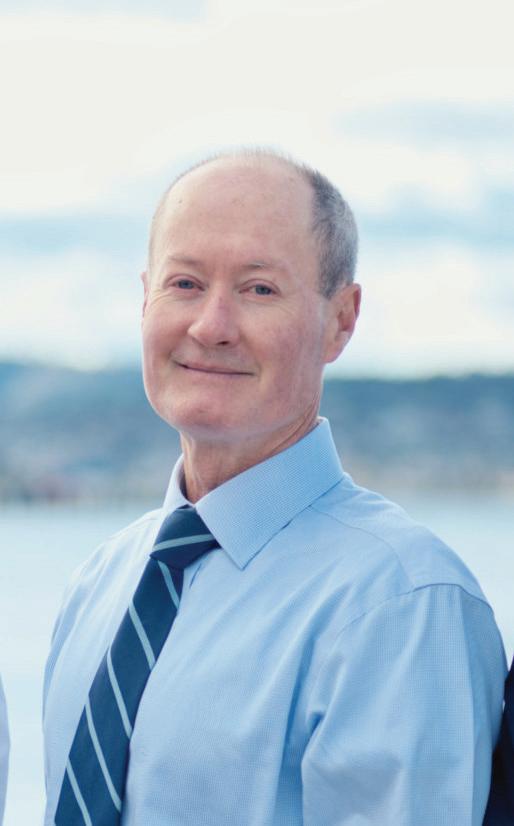
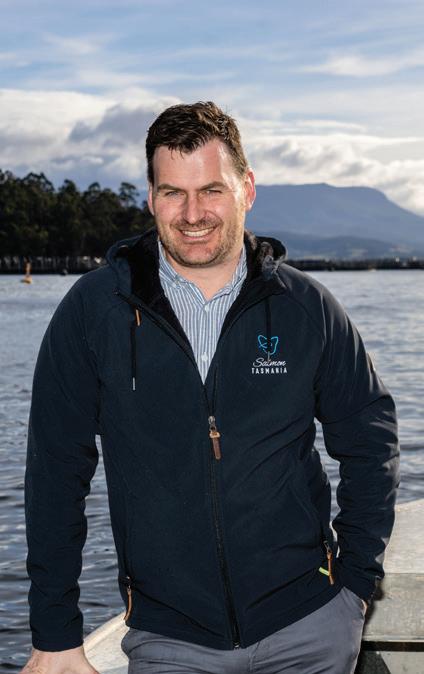
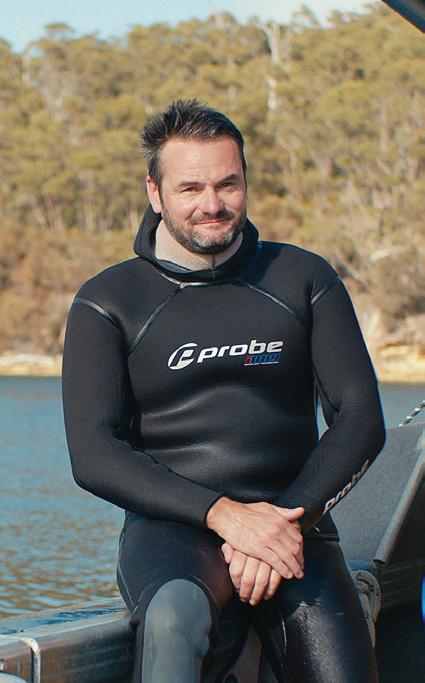
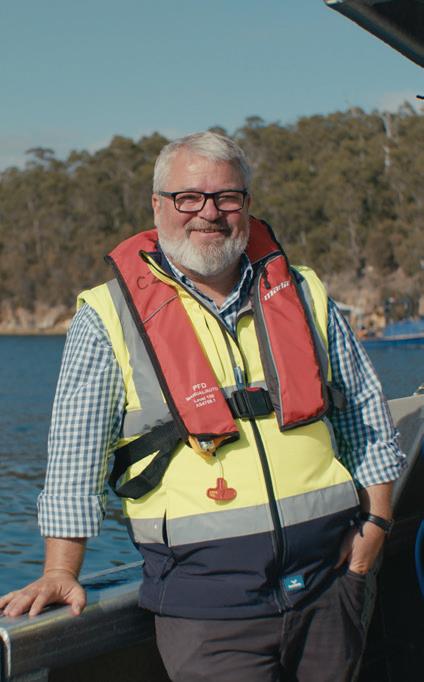

Welcome Jess
At Salmon Tasmania we have recently welcomed Jess Hyland to the team as Environmental Specialist.
After finishing her degree in Antarctic Science at UTAS, Jess started her career in the aquaculture industry in 2013 working in the Tassal Salmon Shop.
She then moved into varied roles within different areas of Tassal including animal health, environmental compliance and project approvals. These varied roles meant she was able to experience many aspects of the industry including working on the water with ROVs, gaining development approvals for new marine farms and even collecting blood samples from smolt at the hatcheries in the dead of winter.
In 2019, Jess moved into the electrical industry and worked in environmental approvals and planning for a major transmission project with TasNetworks.
She is excited to be returning to her aquaculture journey with Salmon Tasmania.
Please join with us in welcoming Jess to the Salmon Tasmania Team.


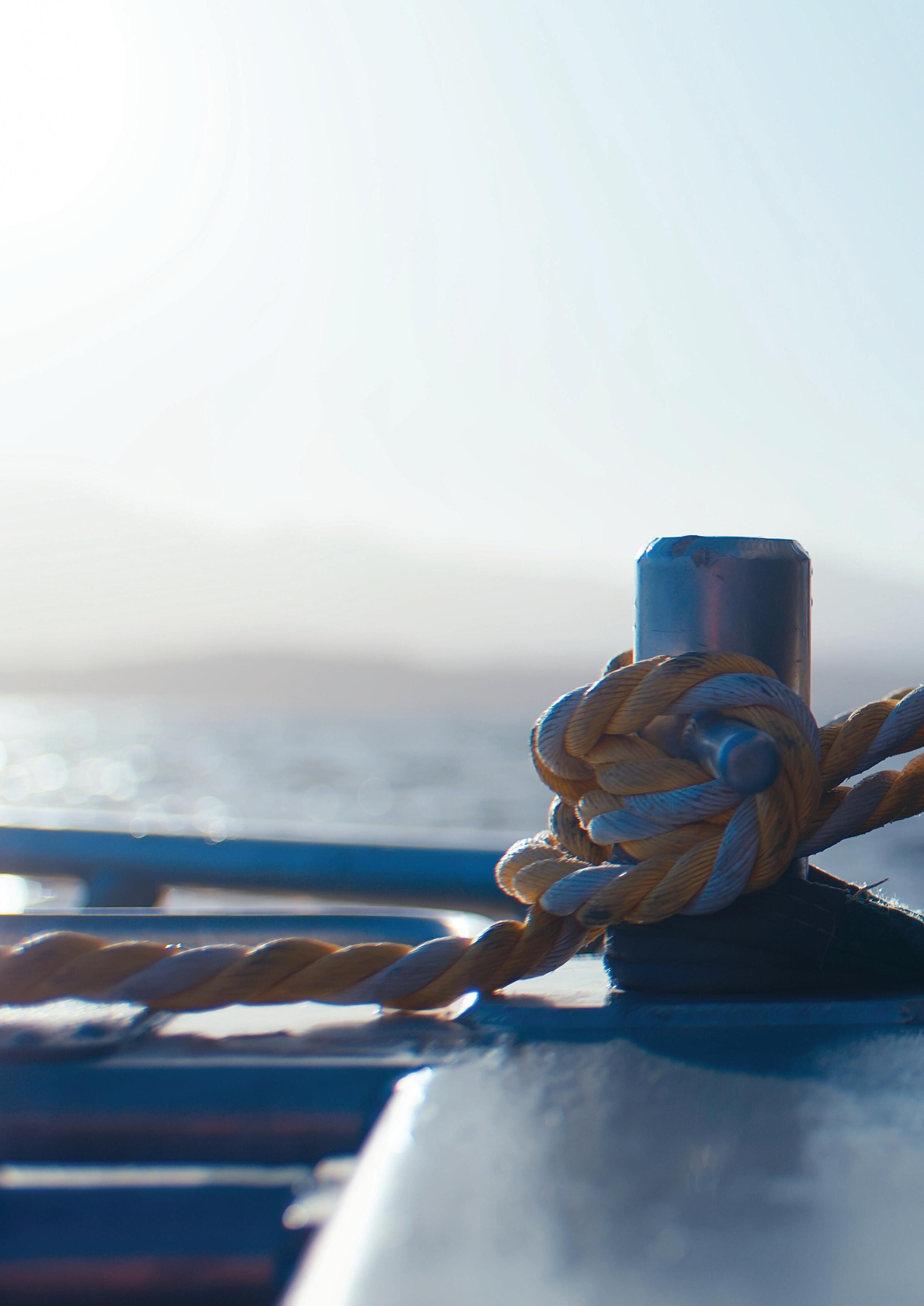
Pheroze Jungawalla guided many of the early successes of the salmon farming industry in Tasmania.
He was a trailblazer at a time when little was known about the industry’s potential. Serving in a variety of scientific, operational, and managerial roles over a period of some 35 years, his pioneering efforts give him a unique perspective on today’s success.
Pheroze likens four decades of development in the Tasmania salmon industry as going from ‘Neolithic to space age’!
Delivering feed in the 1970s, he says, is a good example: ‘In those days, feed pellets were supplied in 50kg hessian bags which had come on a truck.
“Off the back we’d manhandle them onto a platform on a silo,
imagine that! All feeding was scooped by hand.
Born in Bombay, India, Pheroze came to Australia in 1968 via Europe and the UK, from university in Melbourne with degrees in zoology and agricultural economics, about as close as you could get to fisheries in the day, he says.
It’s not hard for Pheroze to hark back to a much less sophisticated time when rough and rugged individuals were a part of farming.
As a scientist, he recalls a time when any adaptation would do, like the day he decided to order 50,000 ping-pong balls from China via a Sydney importer, to act as biofilter medium in a tank at the Taroona Laboratory. ‘Following up by phone after a prolonged lack of response, I was told by the importer that they
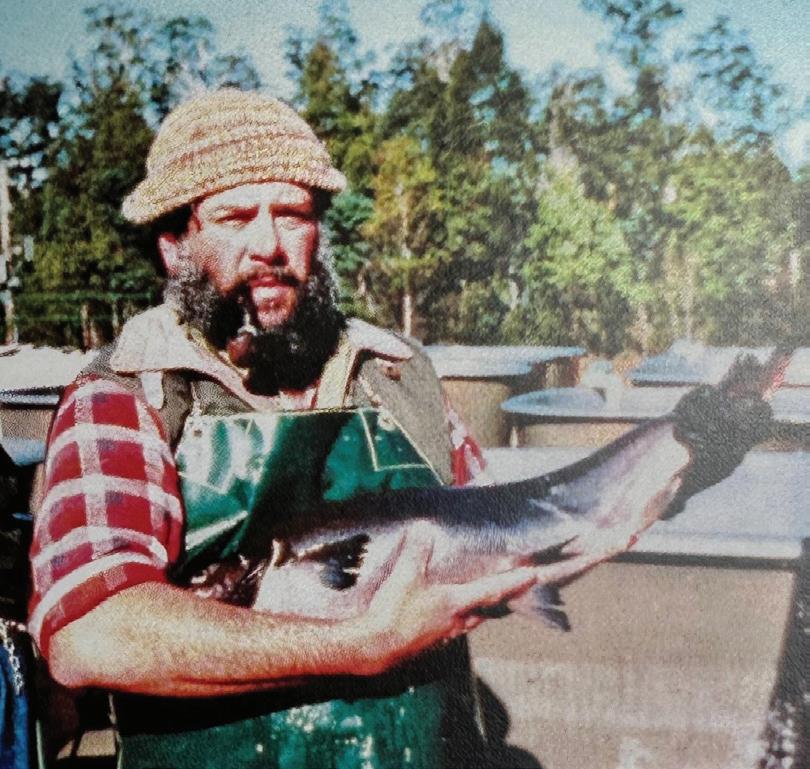
assumed I had been kidding – someone called Jungawalla from Tasmania wanting to order 50,000 ping-pong balls had to be a joke!’
Would he do it all again if he was a young man fresh out of university? “Frankly I’ve had a ball first time around, so yes I would.”
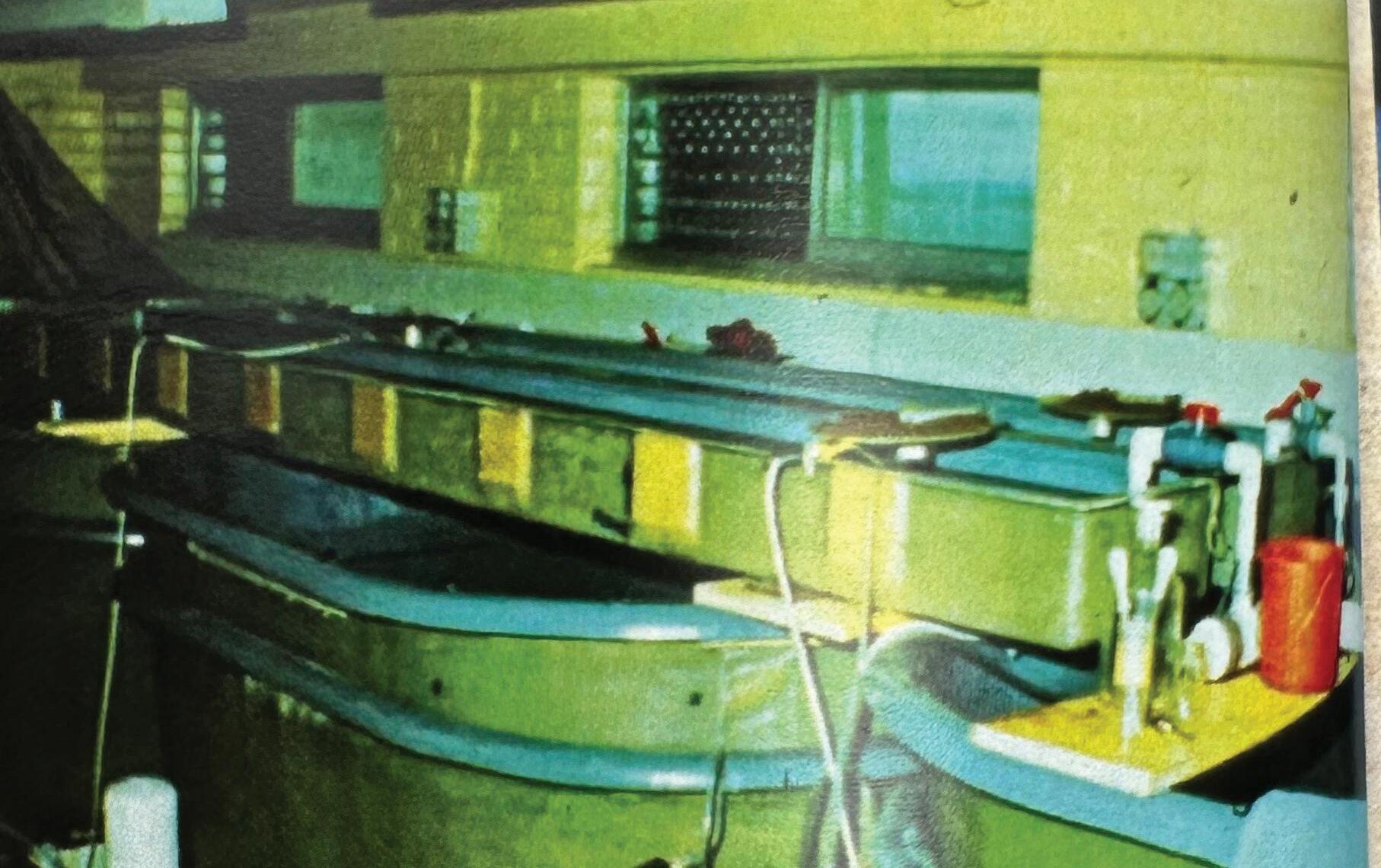
Following a ‘goanna track for success’ landed young vet Craig Foster in Dover in 1985.
Early on, struggling growers often sought his advice on building ‘mortality pits’. But fish nutritionists like Craig helped guide the industry through some setbacks to be a major player in Australia’s fisheries sector.
Queenslander Craig Foster can recall Dover in the ‘80s, well before the salmon industry grew to be its biggest employer. It was 1985, and the veterinarian and his wife had just relocated to Australia’s Deep South to work for Salmon Enterprises of Tasmania (Saltas), managing R&D and feeds.
He soon realised how remote the fishing town was and blending in would take time. Craig recalls it was a different place, one that few outsiders would ever visit: ‘Now Dover has had a whole influx of new people coming as part of the industry, but before it was a very isolat-
ed place and a lot of the people you spoke to were quite restricted in their vision.’
A lot of nutritional research to improve fish growth and promote health was adapted from research overseas, including foods for ‘warmer water’ farming. Recruiting specialised staff was also a key, and expanding interstate to supply other aquaculture sectors followed, including building a barramundi farm in the Northern Territory.
Craig says the whole industry has diversified enormously since his arrival in the mid-‘80s with R&D, feed logistics, pen manufacture, and others growing through the supply chain.
‘A colleague of mine once said to me if you can’t sleep at night and divorce yourself from all the problems, then don’t become a fish farmer because there are going to be problems and heartbreak.’ It’s the raw excitement which has kept several Tasmanian pioneers hanging on
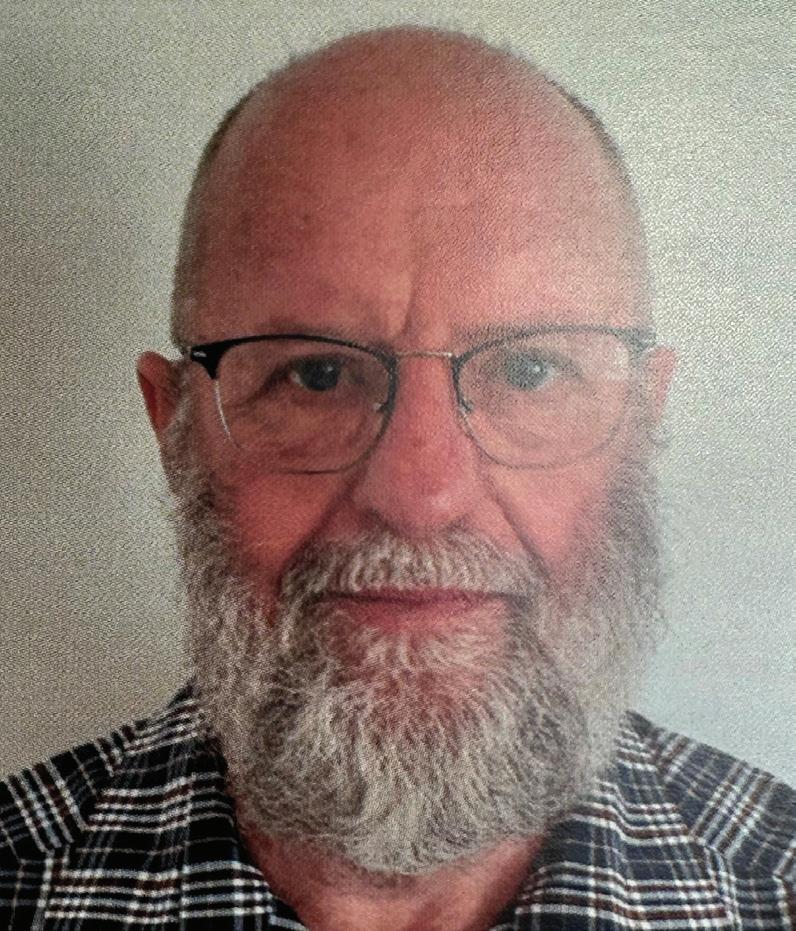
through the peaks and troughs, he asserts: ‘Today you can be on a high, tomorrow your fish are dying and you are down on a low, but can change that quickly if you can work out what the problem is.
“I don’t think I have met anyone who has been part of it who hasn’t said that it was a buzz.”
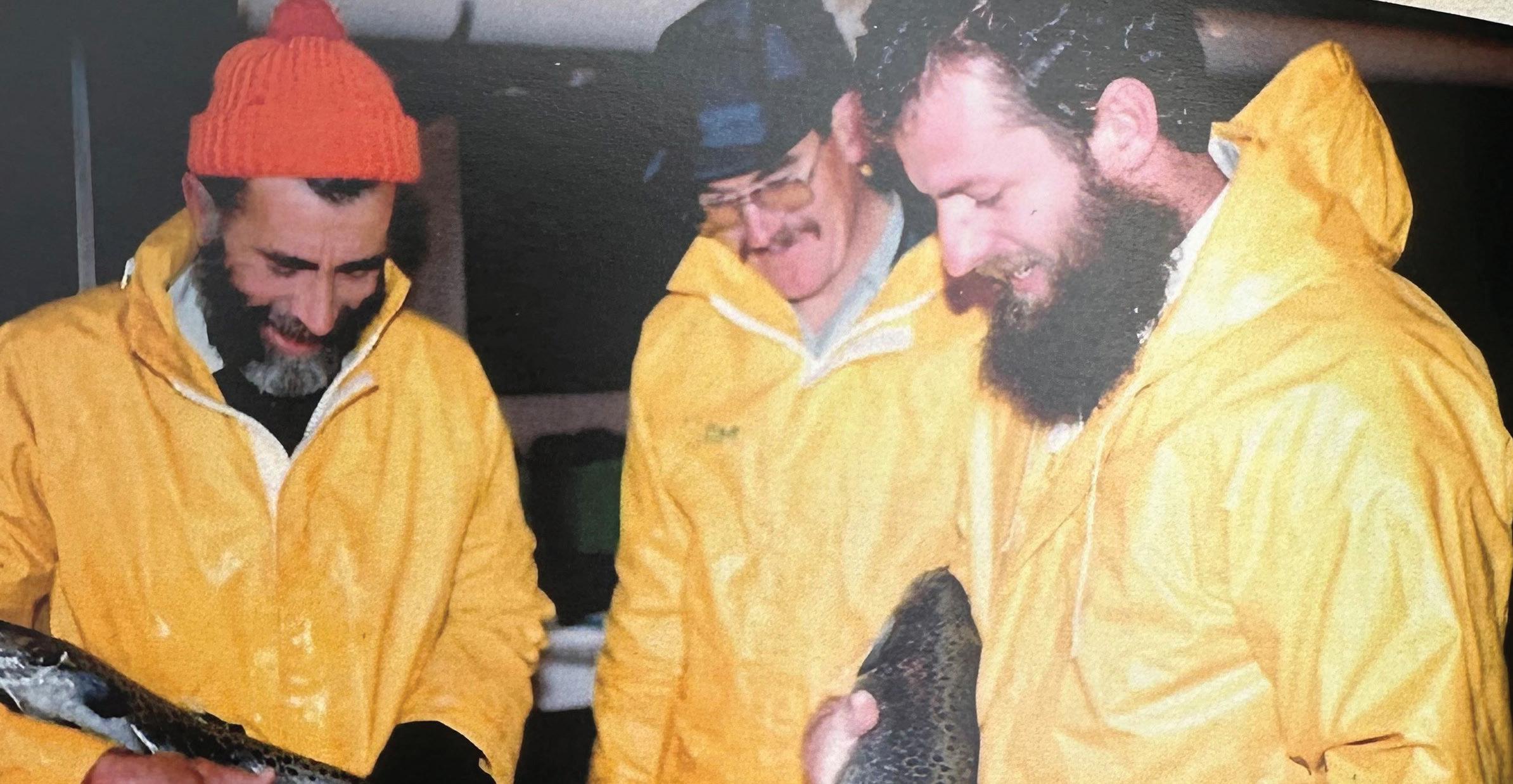
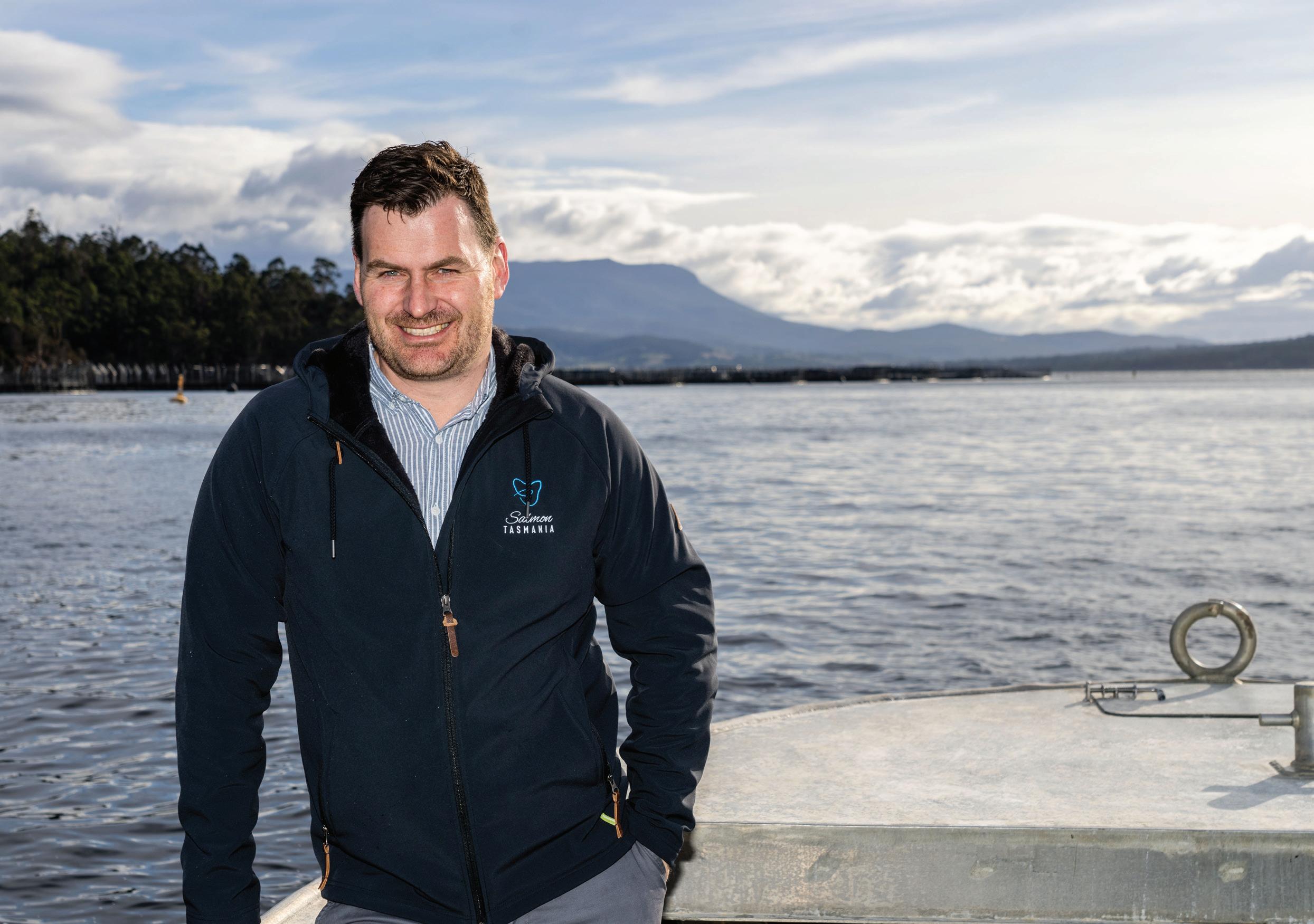
Salmon Tasmania has publicly released its submission to the Federal Government’s review of a 2012 decision on salmon farming in Macquarie Harbour.
The submission details clearly that there is no scientific evidence to demonstrate removing aquaculture from Macquarie Harbour will ensure the future of the Maugean Skate in its endemic habitat, and there is absolutely no legal justification for the Australian Government to reverse its 2012 decision on salmon farming in the harbour.
The submission also includes new scientific analysis demonstrating the minimal impact of aquaculture on oxygen levels in the natural environment for the skate.
Salmon Tasmania CEO, Luke Martin, said it was important for the Tasmanian community to have direct and immediate access to the industry’s response.
“Tasmania’s salmon industry is highly regulated, informed by some of the best marine scientists in the world, and uses the most advanced technology available,” Mr Martin said.
“We are committed to transparency with the Tasmanian community, and have released our submission so anyone who is interested in aquaculture, or is genuinely concerned about the skate, can see the facts for themselves, and have confidence that our industry’s presence in Macquarie Harbour is not a critical threat to this endangered species.
“We are confident our industry not only has a long-term future in Macquarie Harbour, but our industry’s presence on the West Coast means we can invest and have a genuinely positive impact on efforts to secure the skate.
Mr Martin said the submission injected balance and factual information into an increasingly misleading public debate.
“There is no doubt activist groups have cherry-picked conservation reports in their vexatious pursuit of lawfare through the EPBC legislation, purely to attack the reputation of our industry.
“This campaign is causing tremendous uncertainty and stress for the residents of Strahan and the broader West Coast community and it must now stop.”
Mr Martin said the industry submission demonstrated how compliance with a robust and independent regulatory framework had significantly changed the industry’s scale and impact within the harbour compared to 2012.
“Indeed, the decision made in 2012 that is now being reviewed by Minister Plibersek was to expand the industry from around 10,000 tonnes of production at the time, to over 20,000 tonnes per annum. This expansion was completely reversed, and production is now capped at no more than 9,500 tonnes in the harbour.
“In 2012 there was no independent EPA regulating the harbour. Today there is.
“The innovation and investment of the industry to reduce its nitrogen levels has dramatically advanced over the past decade. Put simply, the industry has changed significantly since 2012, and is being regulated and managed effectively for the harbour.
“The industry has always taken its role in the harbour very seriously, and we have looked closely at the impact we are having on dissolved oxygen levels in the harbour and opportunities to further strengthen our sustainability practices.
“Much of the research informing the sharpened focus on the Maugean Skate was initiated and funded by the salmon aquaculture industry.
“We have now committed to an unprecedented $7 million oxygenation project beginning in the harbour this month, offsetting the oxygen drawdown of our aquaculture.
“This is not just about offsetting our impact, but proving the effectiveness of this technology in the unique Macquarie Harbour system as a potential strategy to stimulate oxygen levels in warming weathers and to offset other industrial and natural influences.”
Mr Martin said the submission also included new and critical analysis into aquaculture’s impact on the harbour.
“New independent modelling by Dr Ian Wallis shows the minimal impact aquaculture is actually having on the oxygen levels in the harbour. It’s as little as four per cent in the top level of the water system, and 10 per cent at depth.
“This is the science, and the fact of the matter is aquaculture is absolutely not a major influence in the oxygen levels in the har-
bour, or the declining population levels of the skate”.
Mr Martin urged Minister Plibersek to proceed with a rapid decision on the review and end the uncertainty for the workers, families, businesses and communities of NorthWest Tasmania.
“You do not need to be a marine scientist to understand Macquarie Harbour is a complex environment and the Maugean Skate is a unique species vulnerable to a range of influences, including warming waters, introduced species and industrial legacies.
“It has always been disingenuous to focus the attention solely on salmon, and it’s time the Federal Minister ends this confusing EPBC process and lets the experts get on with the job of securing the future of the Maugean Skate.”

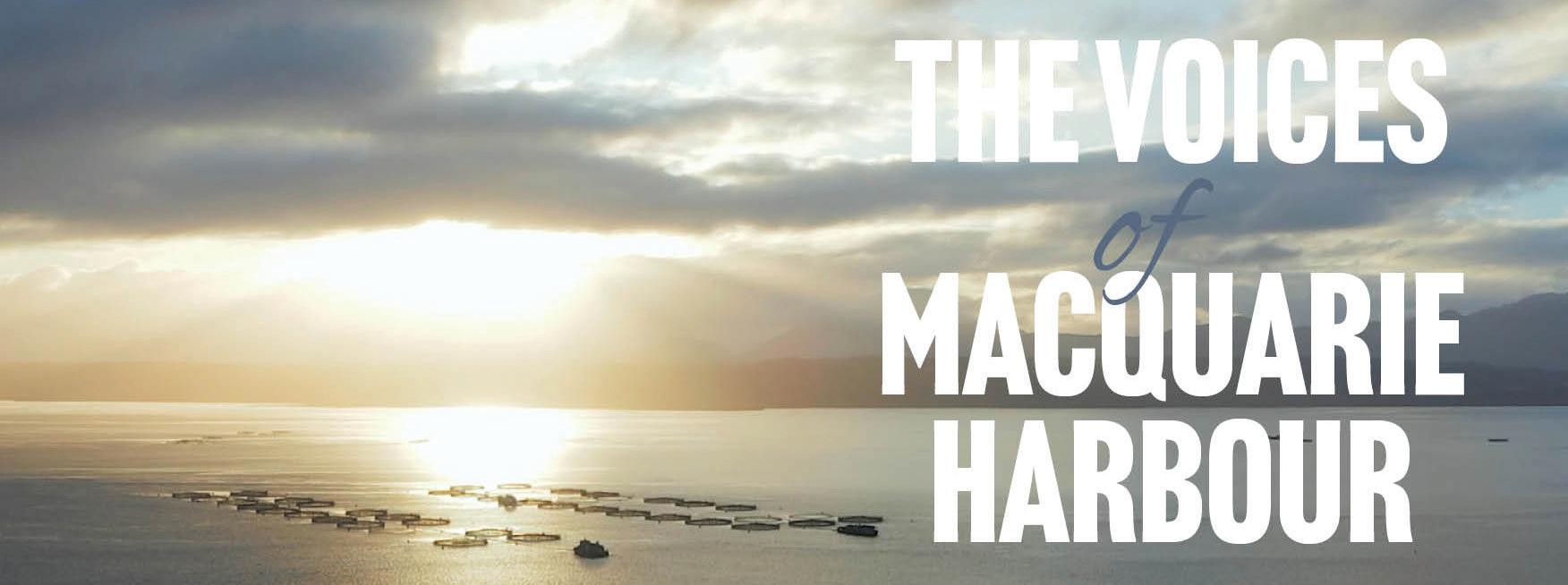


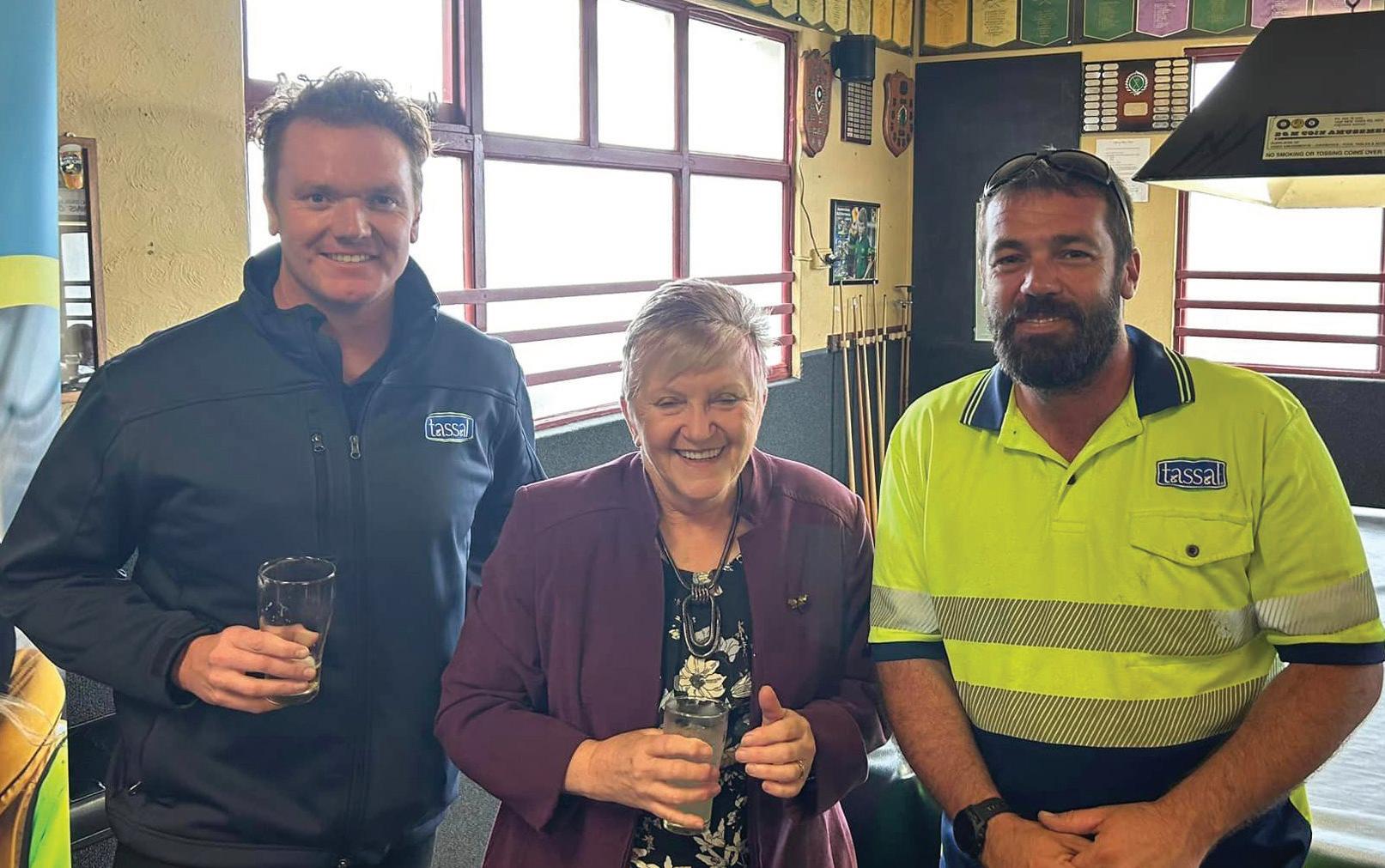

Salmon Tasmania hosts a program of monthly networking events “Ales & Salmon Tails”. These are free, casual get togethers for industry staff and stakeholders.
If you haven’t attended one yet be sure to keep an eye out for the next one in your area.
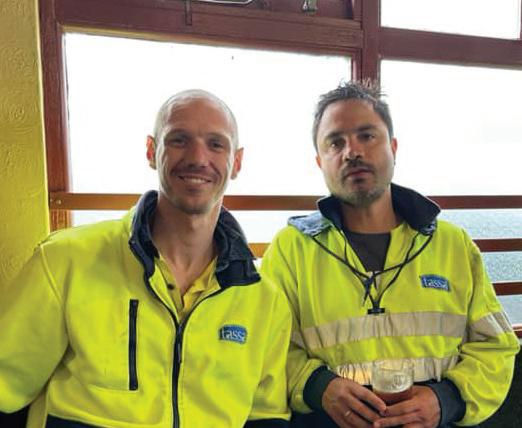
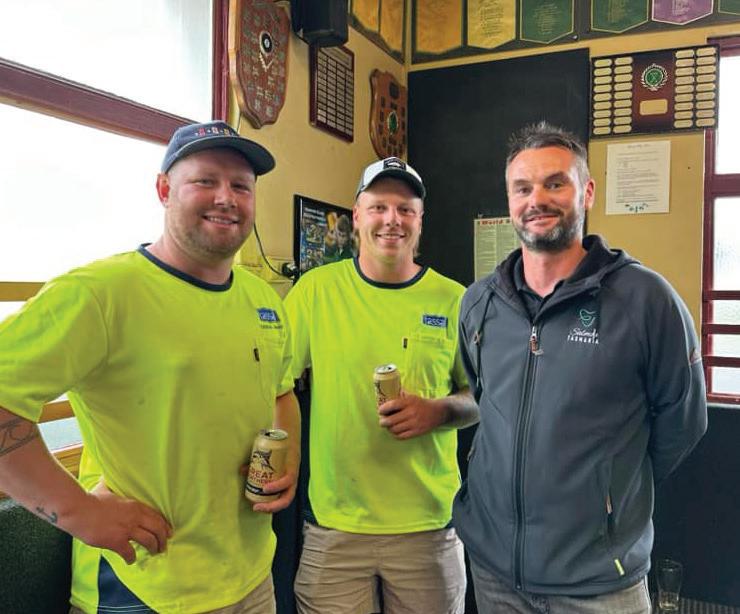
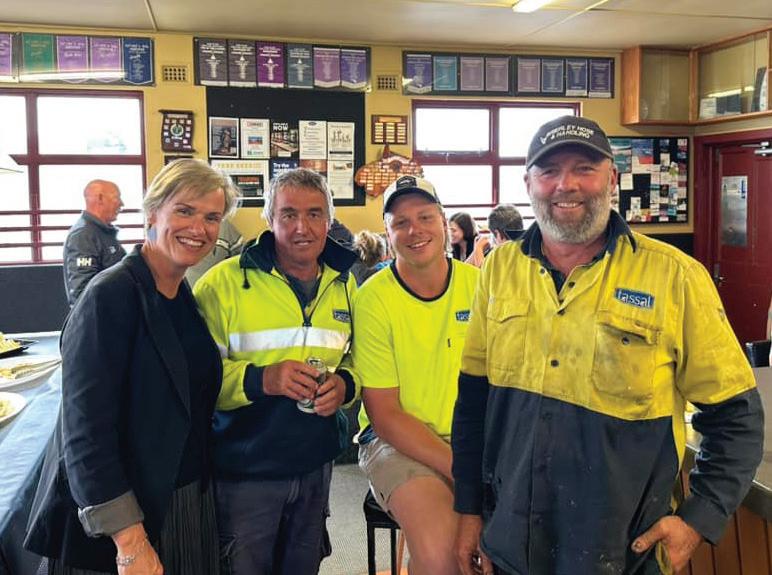
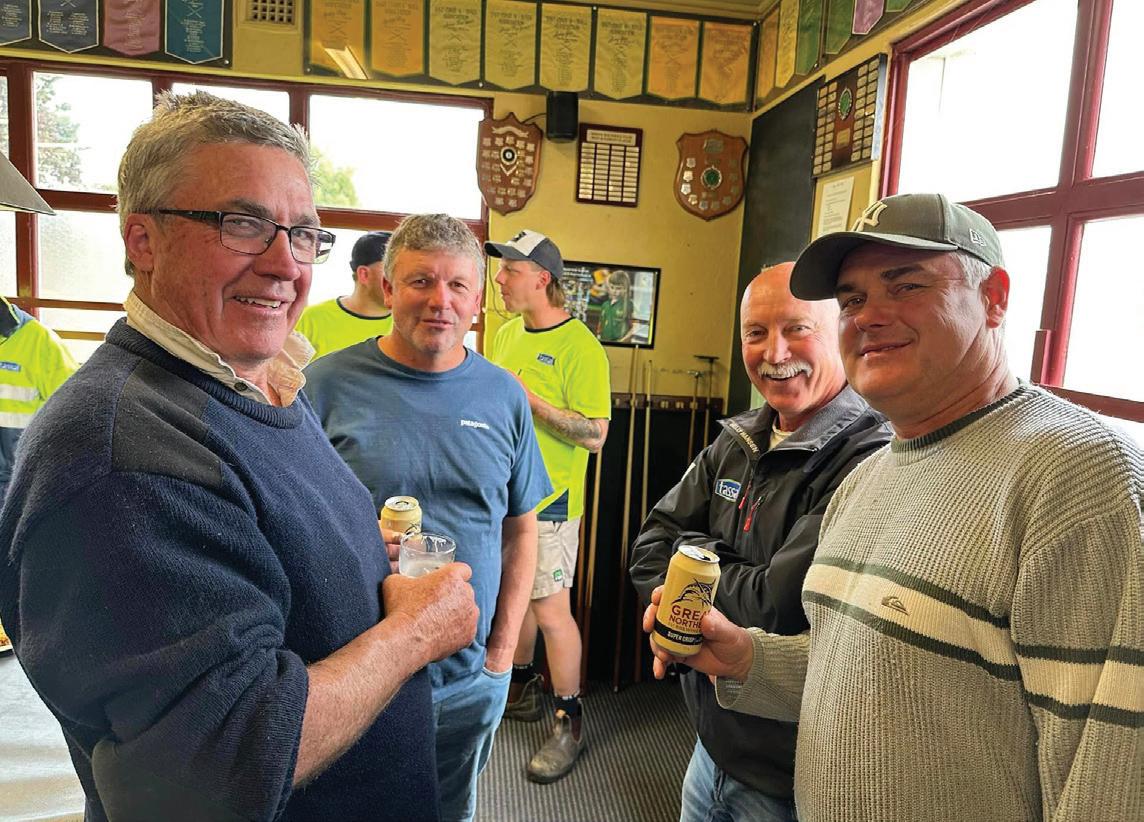
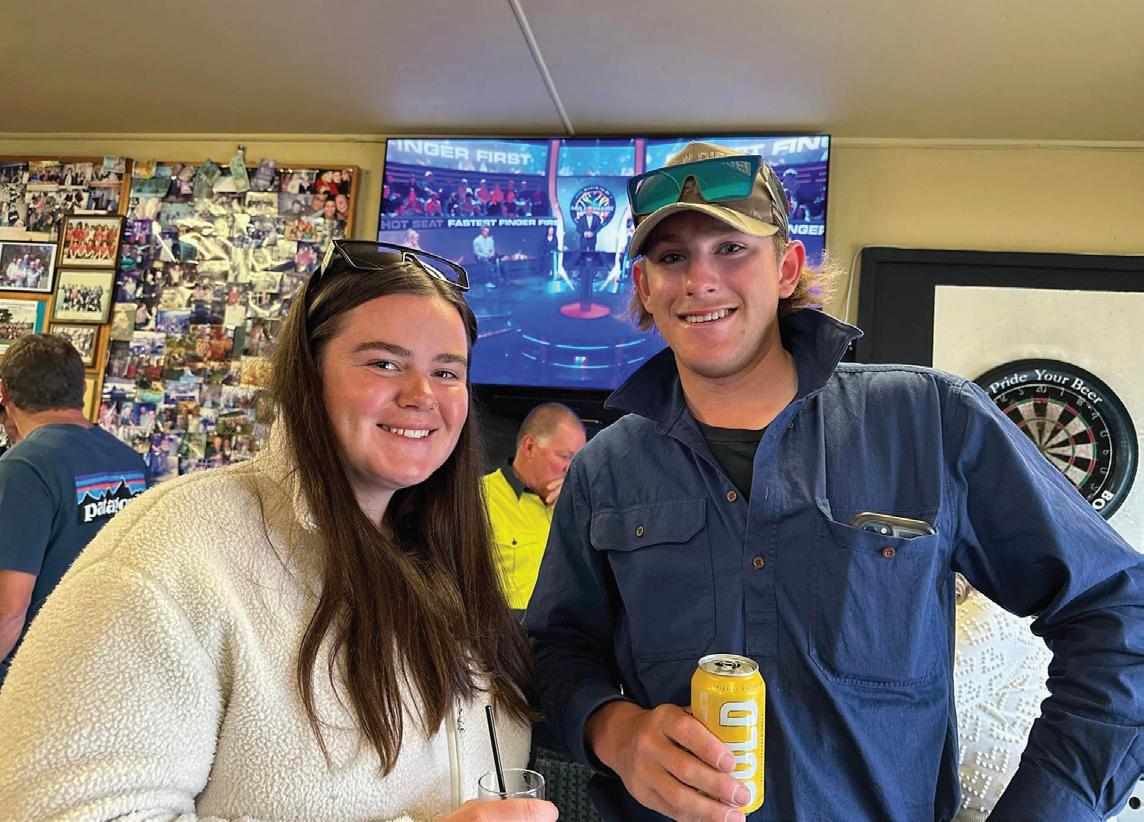
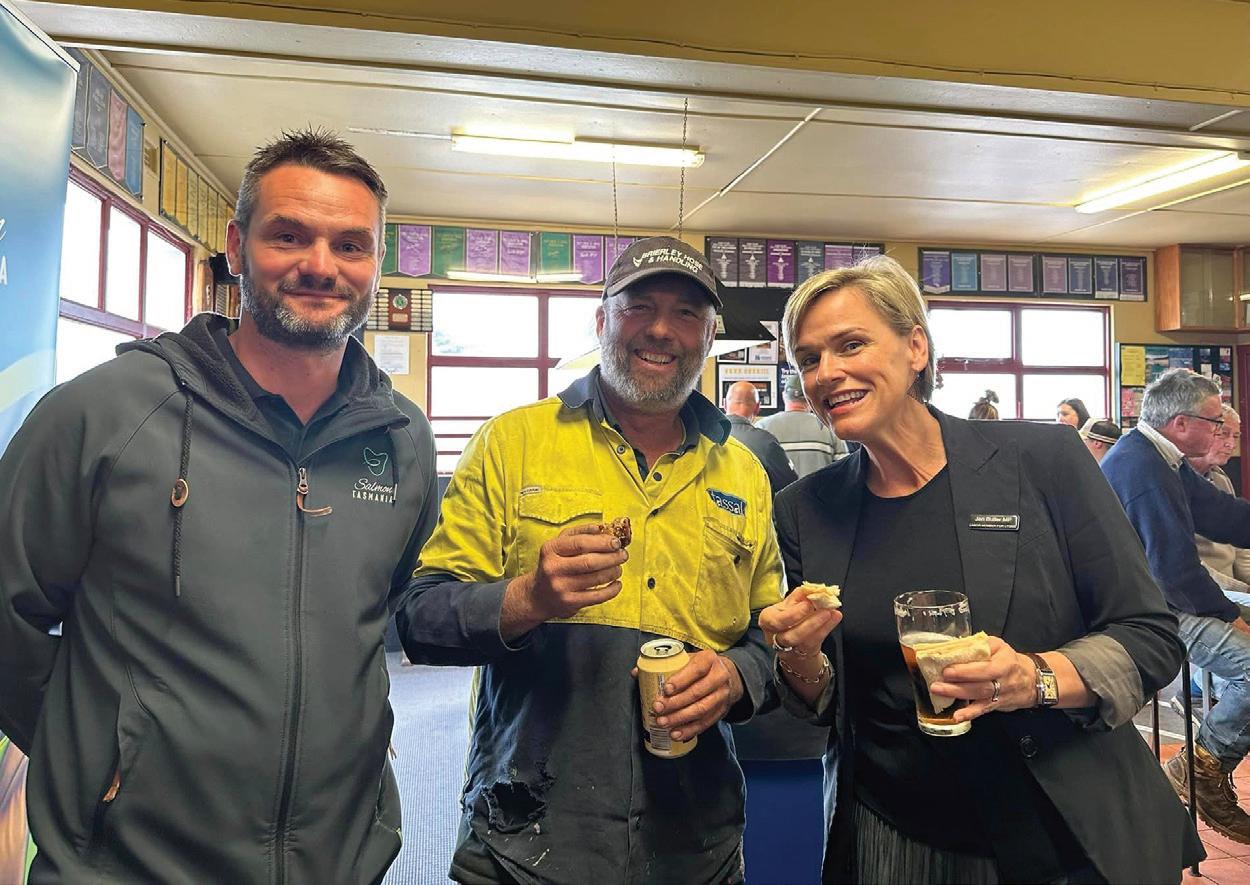
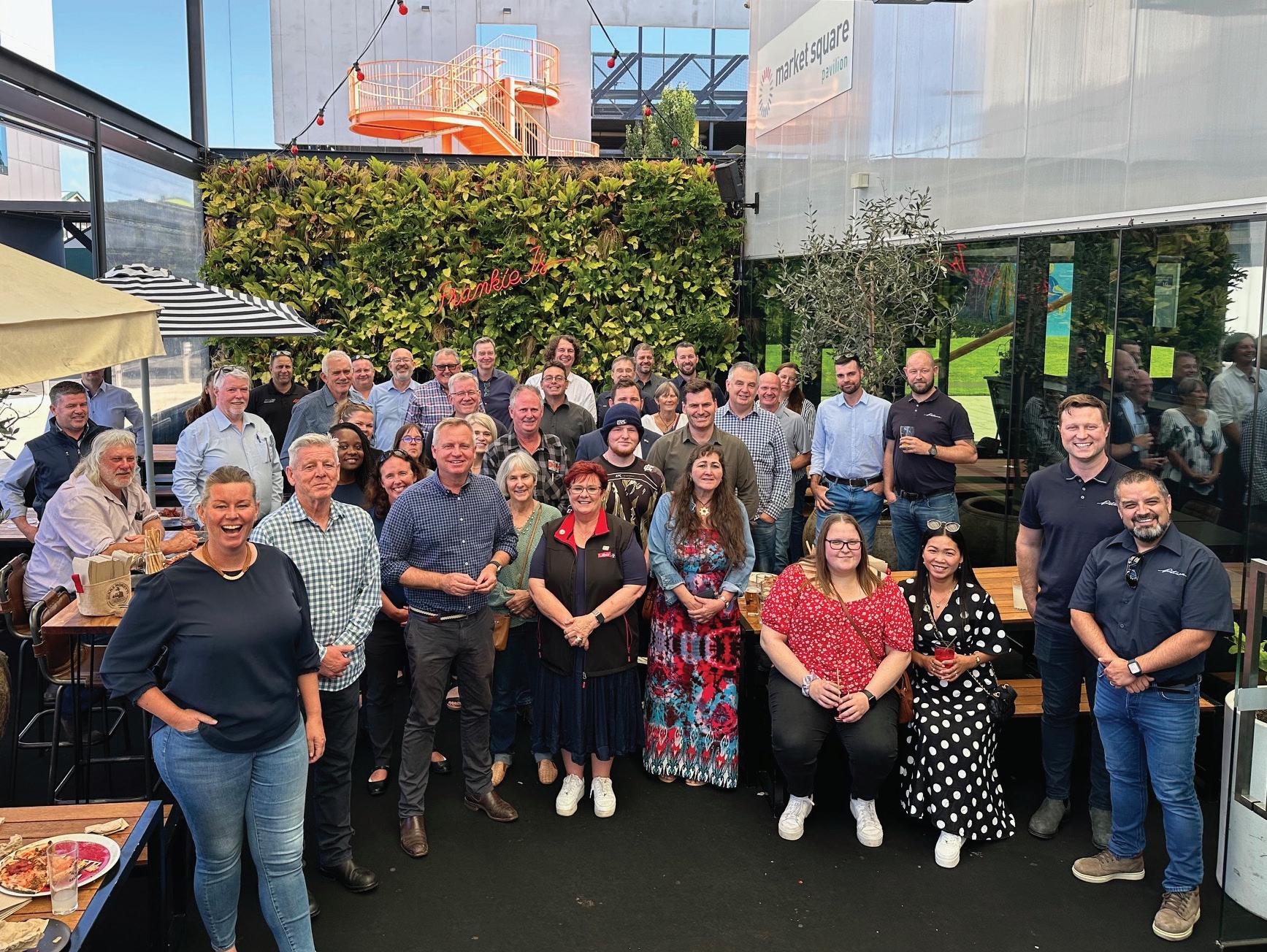
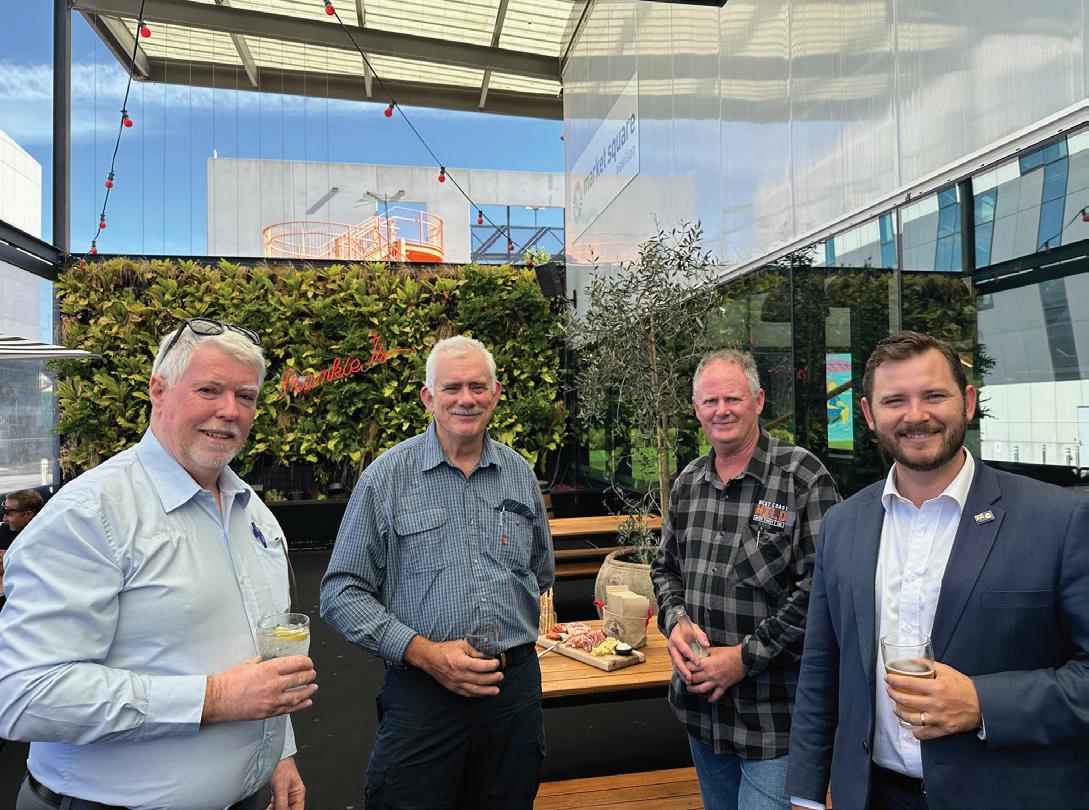
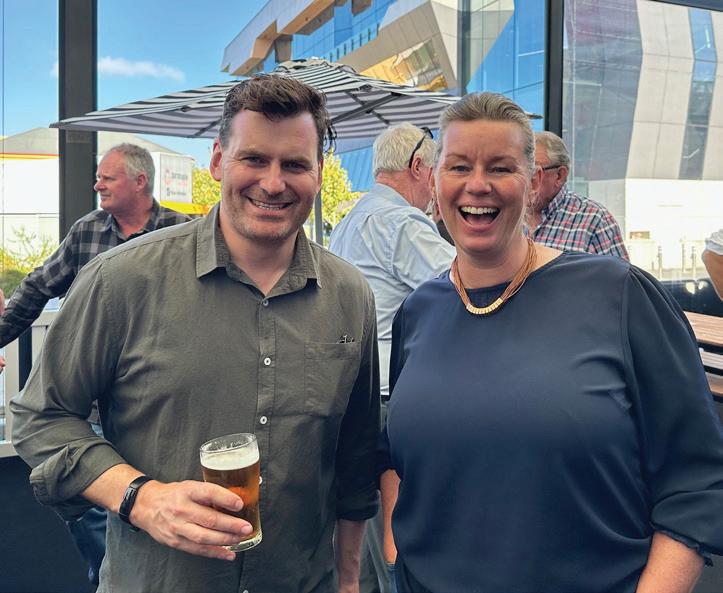
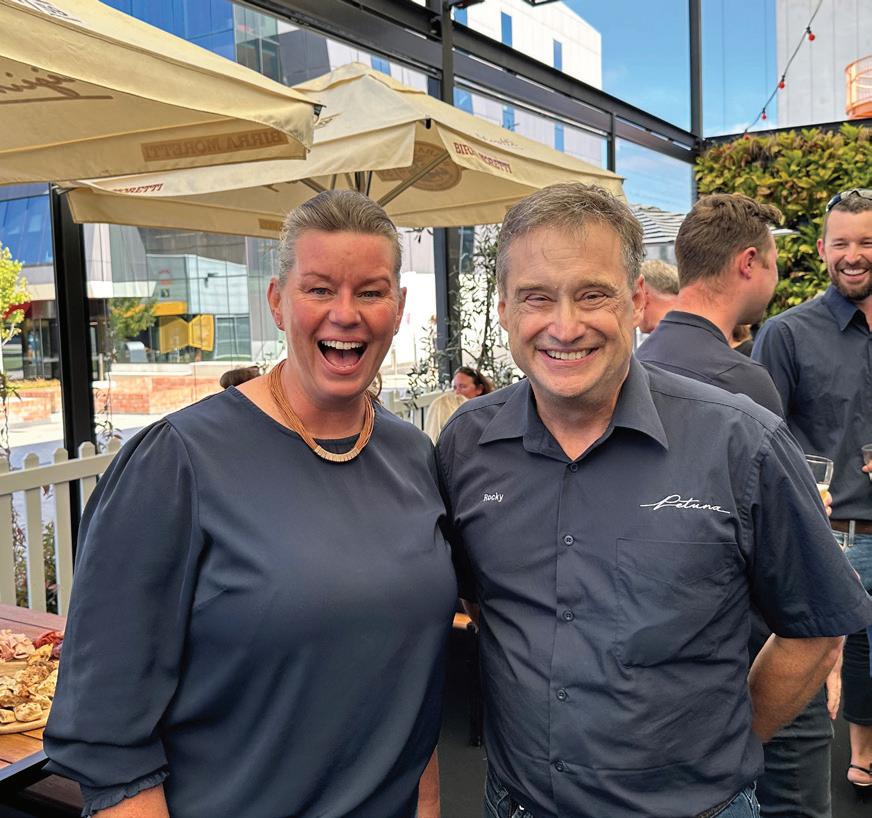
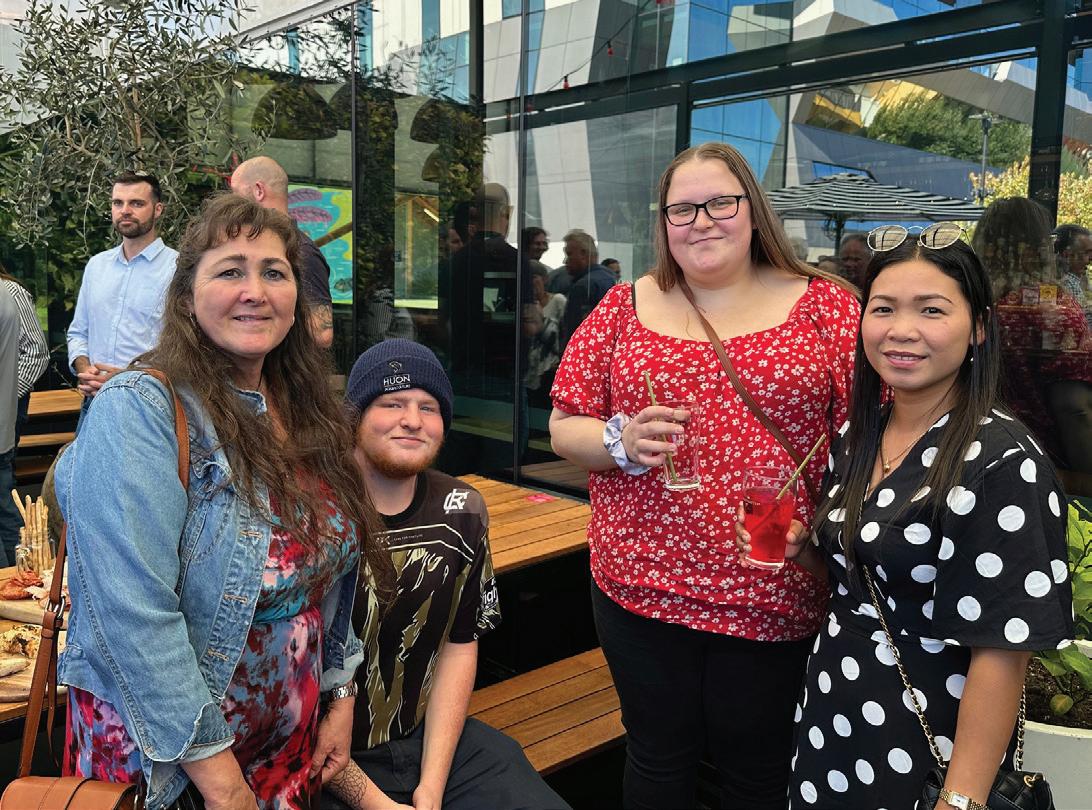
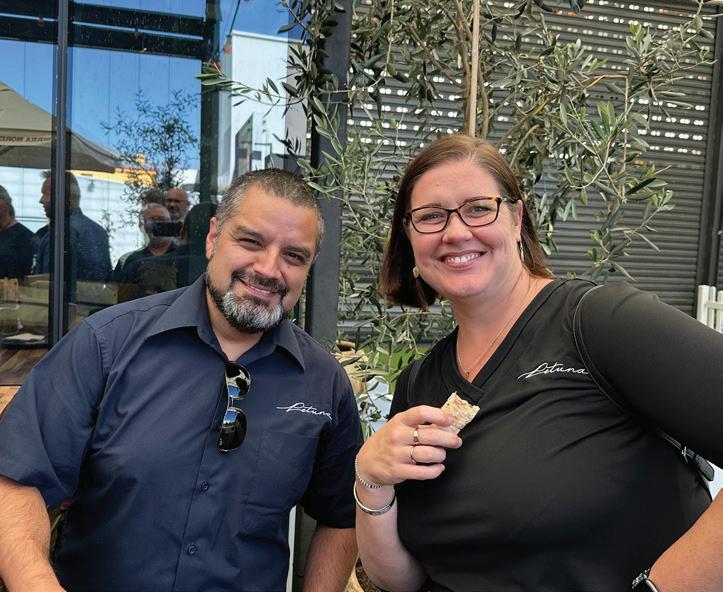
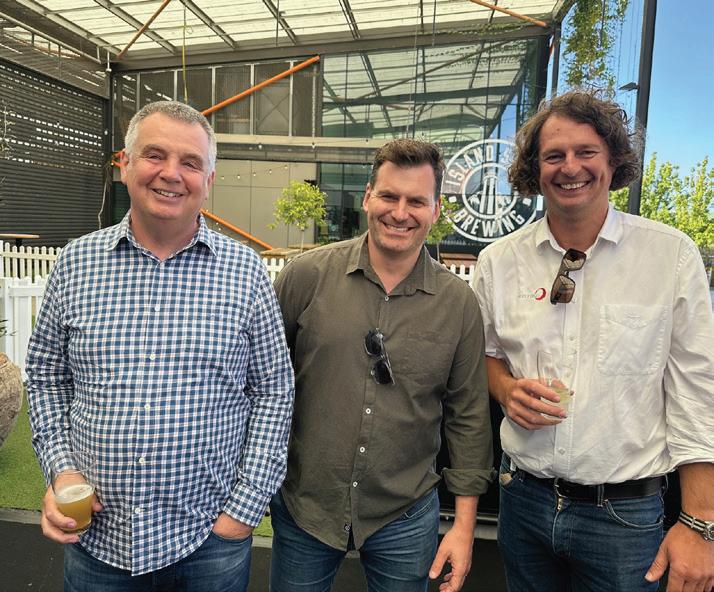
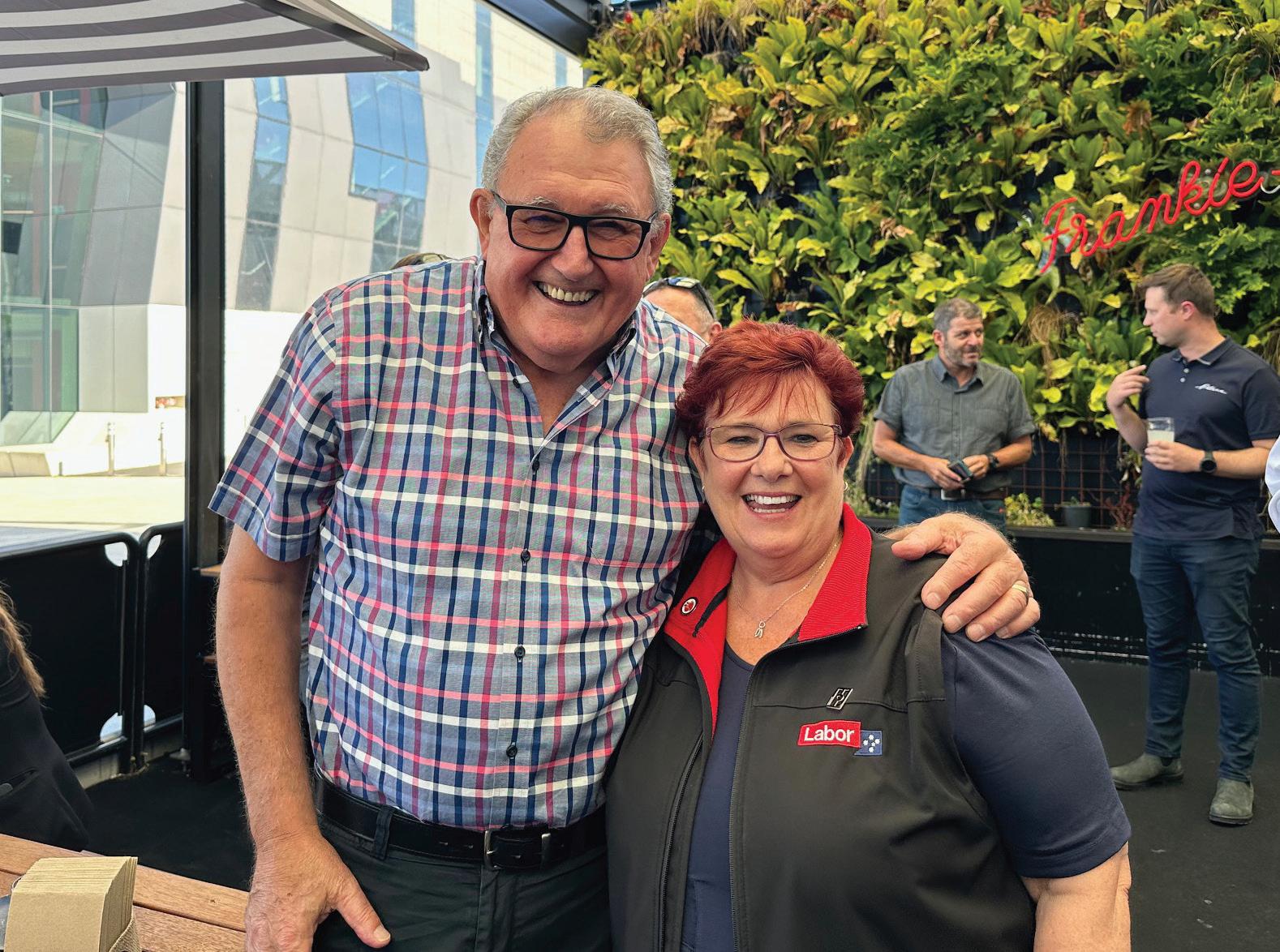


On Wednesday 17 January 2024, the Prime Minister, The Hon Anthony Albanese MP, Senator Anne Urquhart, Julie Collins MP and Brian Mitchell MP visited the workers of Tasmania’s salmon industry, to add their voice’s in support of the workers and communities of Tasmania. We thank them for their support!
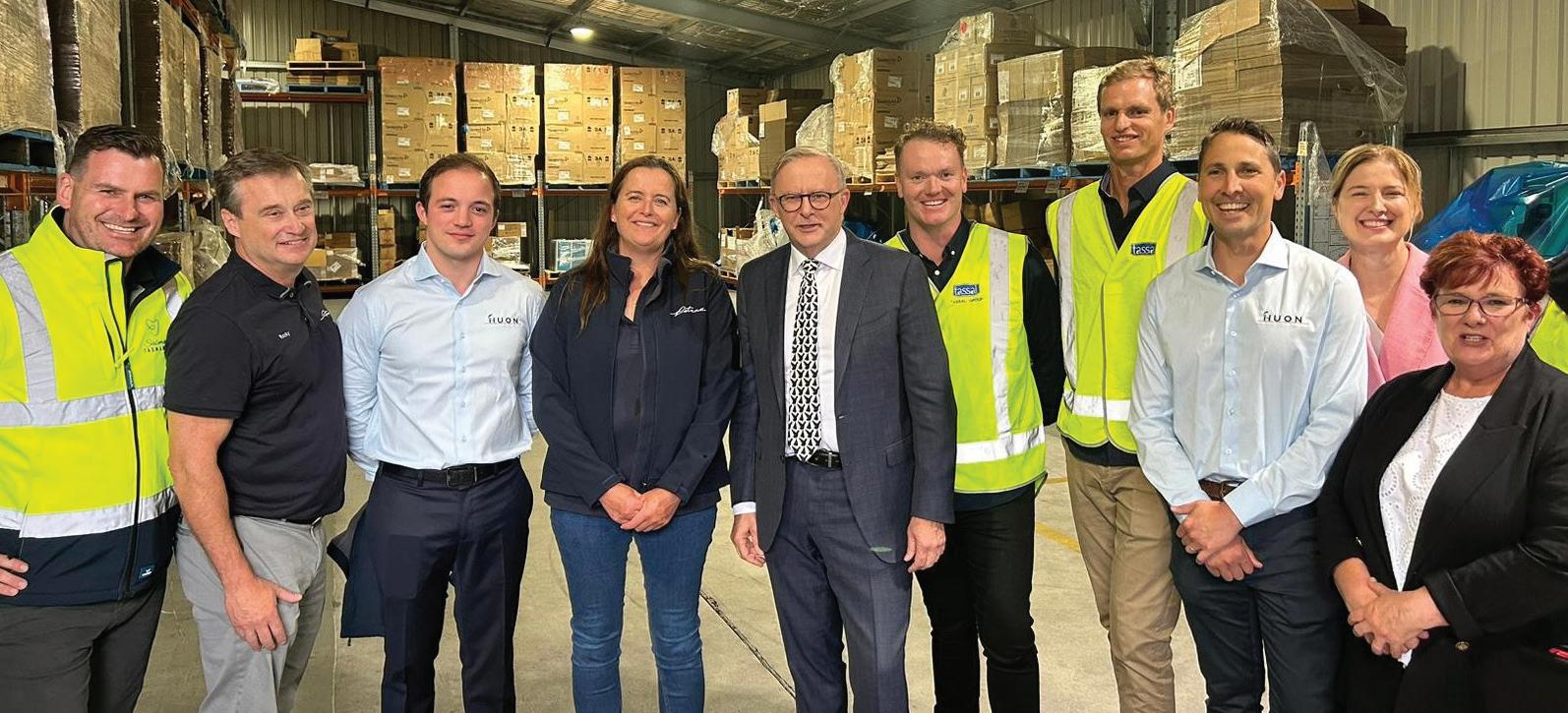
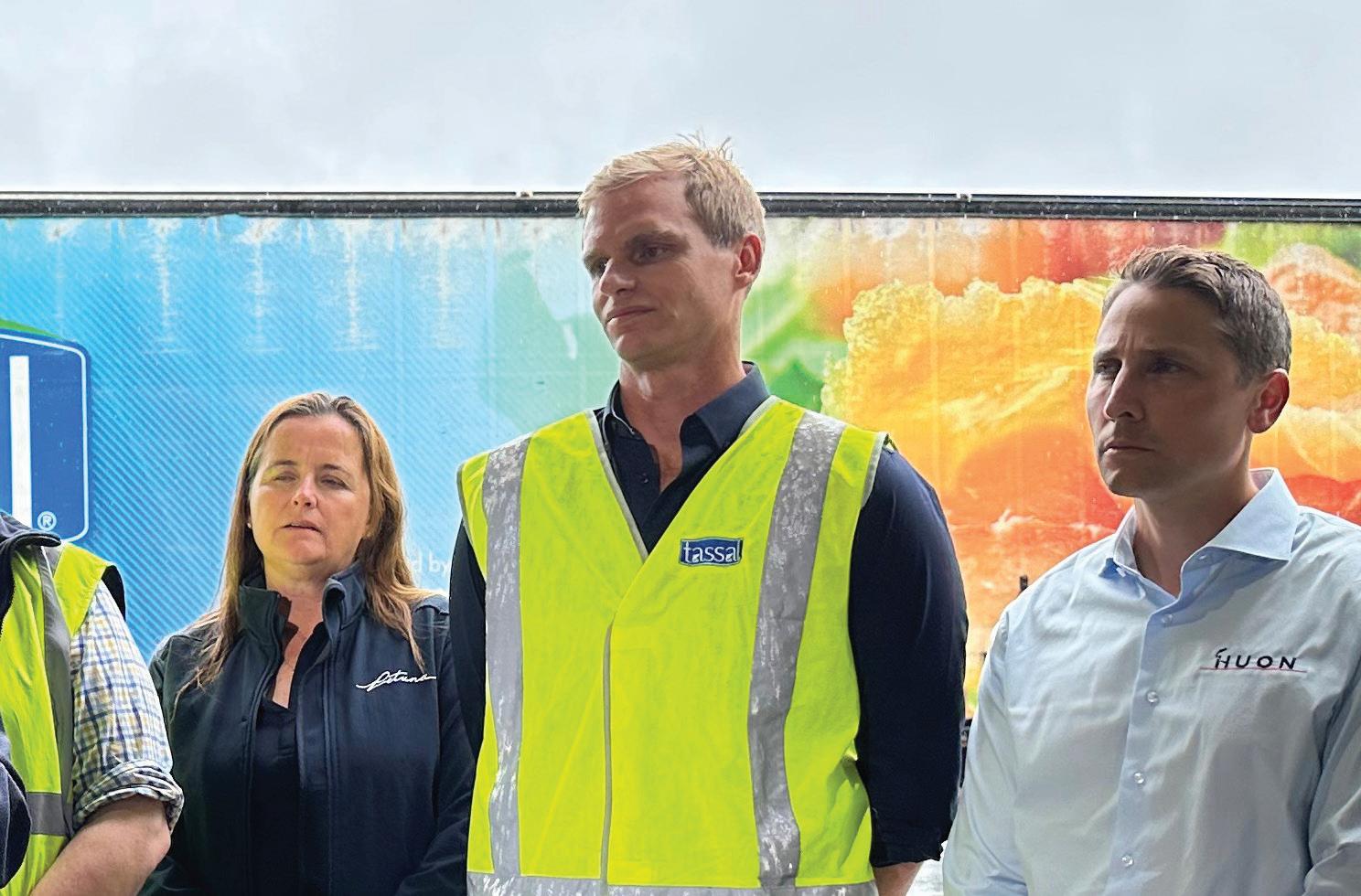
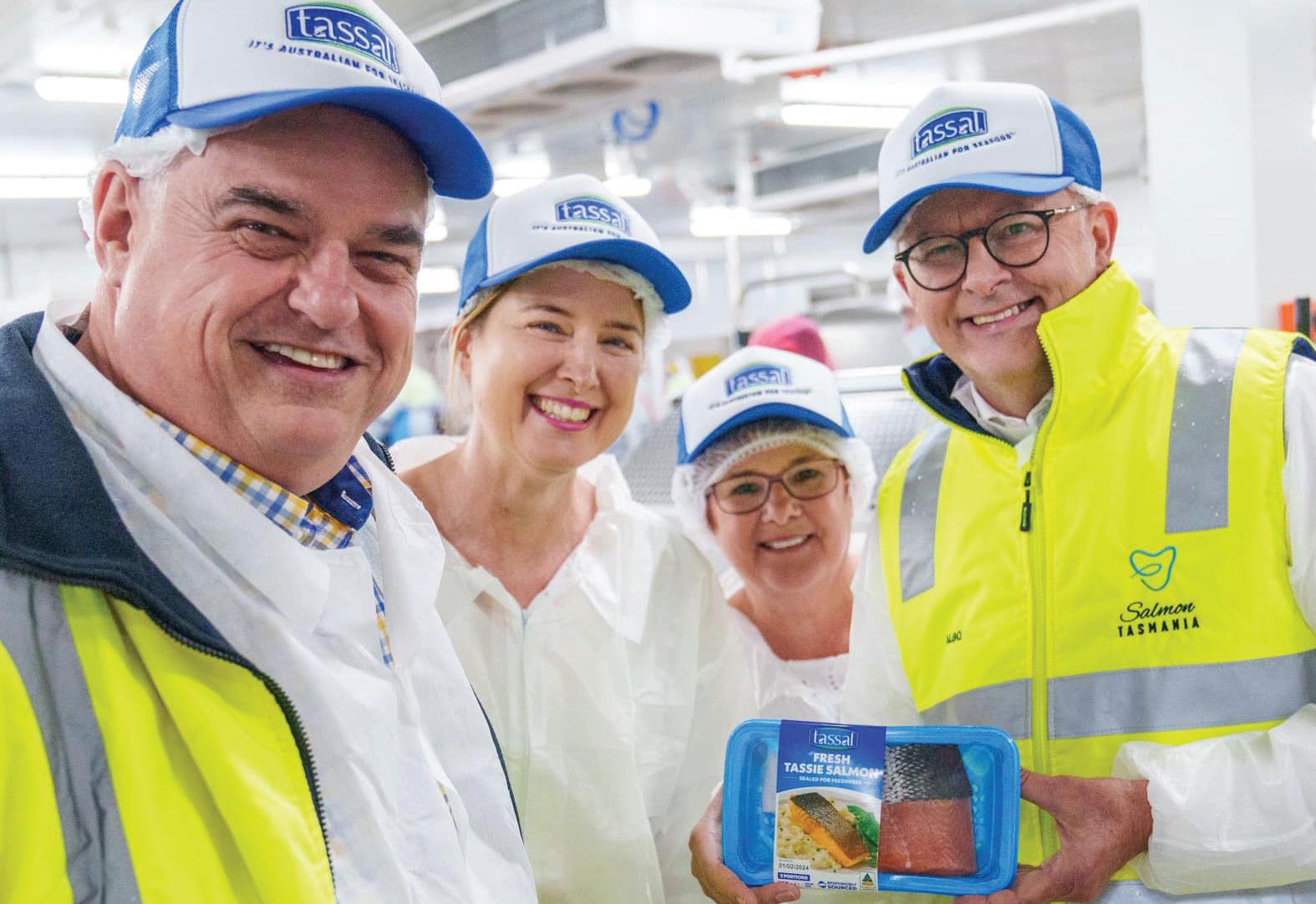

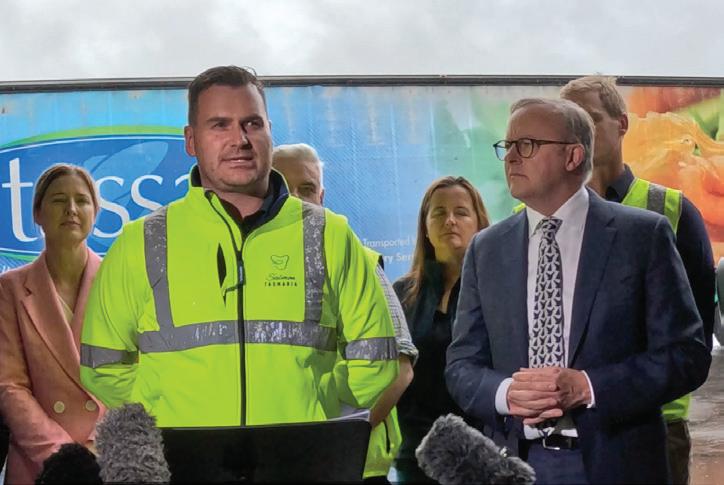
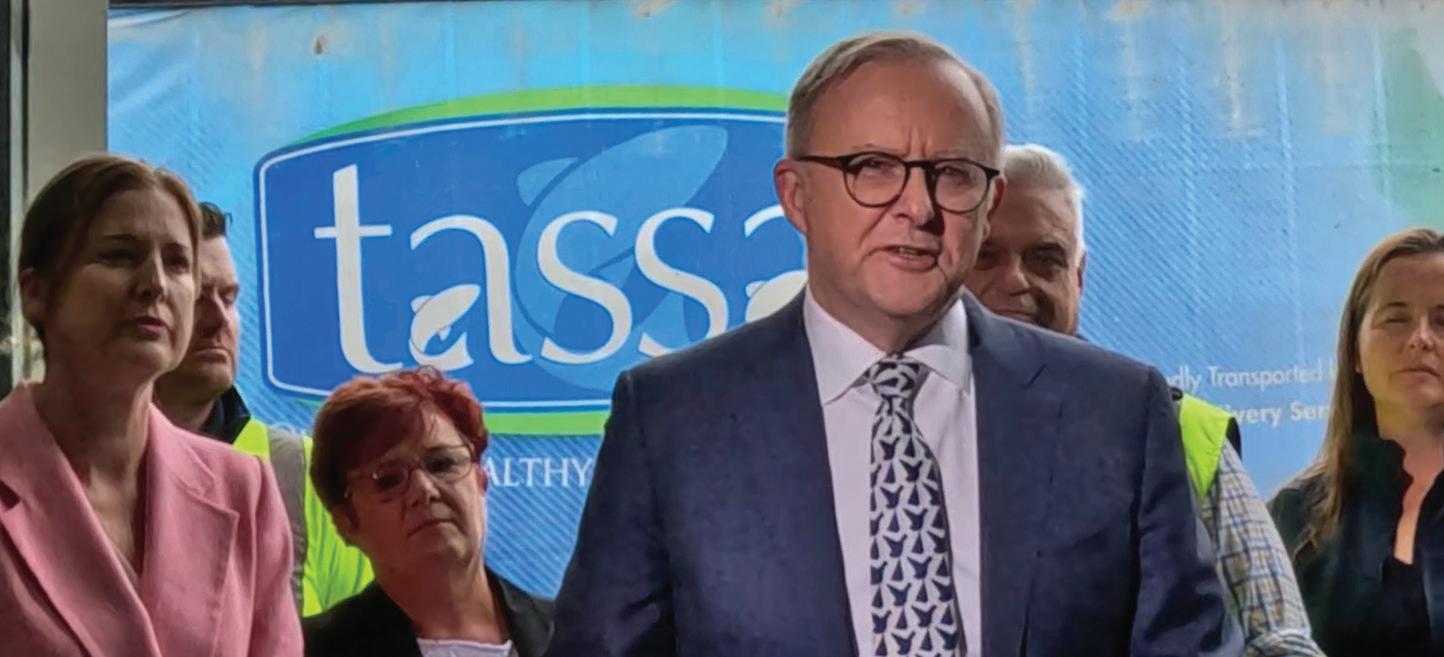


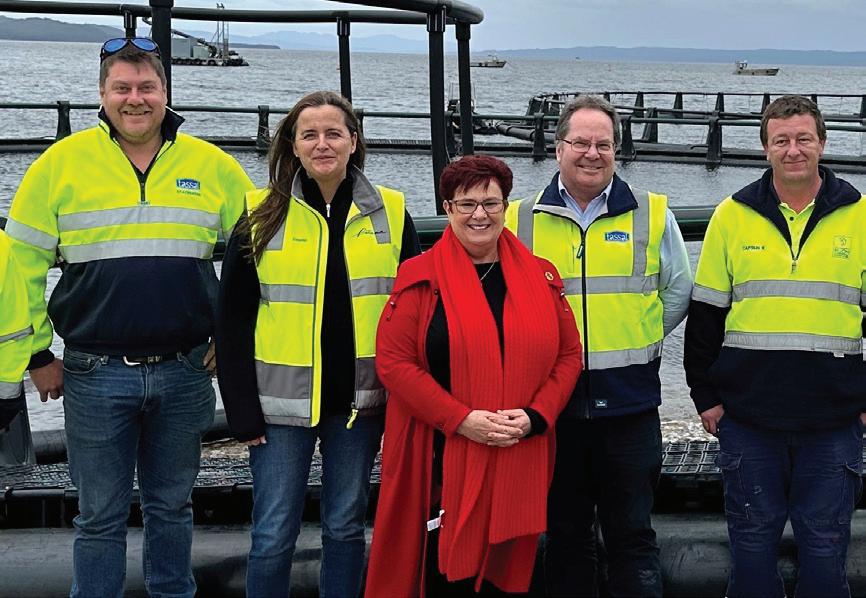
The salmon aquaculture industry provides good, secure and well-paid jobs for Tasmanians. It brings important income into households through wages, and into the State economy through export earnings.
The industry sustains local communities and supports upstream and downstream jobs in manufacturing, transport, processing and packaging – among others.
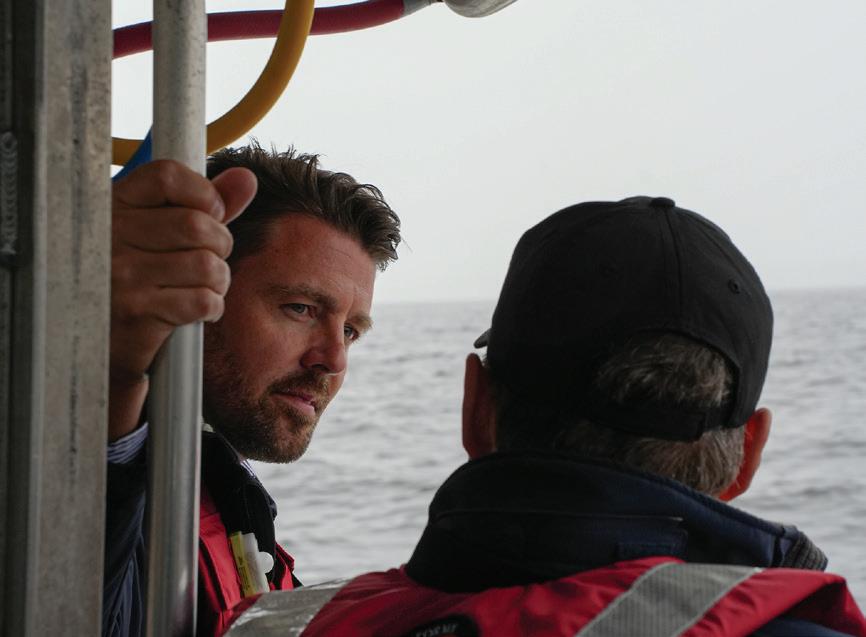
The salmon industry could not be more important for the social and economic fabric of Tasmania.
Local Liberal MPs all the way to our Prime Ministers and Opposition Leaders have long recognised the importance of the industry and the significant contribution the 5,000+ workers make, especially to our regional towns.
From Strahan to Devonport, Margate to Triabunna and everywhere in between, every single worker deserves to have a government that supports them and their am-
The long running campaign by activists to close salmon farming in Macquarie Harbour, if successful, would have serious and negative repercussions across the State.
Activists claim that closing down salmon aquaculture in Macquarie Harbour will deliver the immediate and full protection of the endangered Maugean Skate. This simply doesn’t take account of the multiple factors impacting on the Skate, including Macquarie Harbour’s complex estuarine environment, climate change, gillnet fishing, hydro damming, and historic mining sediment run off.
There are many factors which have not been accounted for in the claims made by activists, including the circumstances around the Skate’s disappearance from Bathurst Harbour, where there is no aquaculture.
I also support protection of the Skate, and believe it is possible to do so while also protecting the
bitions, not one that puts a cloud over their jobs.
As you all know, the future of the industry and those jobs has been placed under severe threat by a review Labor’s Tanya Plibersek is conducting that will consider shutting down salmon farming in Macquarie Harbour.
At each stage of the review, a process initiated by three parties including the Labor-funded Environmental Defenders Office (EDO), Liberals have stood by salmon workers and guaranteed that we would do everything in our power to protect their jobs.
This was reflected when we visited salmon worker families with Federal Leader Peter Dutton and Tasmanian Premier Jeremy Rockliff in Strahan in late January.
We heard the devastating impacts a potential shutdown could have on them and their community, and we heard even more than we already knew about the good the industry does for Strahan and the West Coast.
industry. Initiatives to boost oxygen levels in the Harbour and a Skate breeding program have already commenced, and more can be done. Everyone involved wants the uncertainty to end, and certainty will give us a firm foundation to build on this early work.
I am committed to a strong and sustainable salmon aquaculture industry in Macquarie Harbour. I am working hard to make sure the industry can continue to deliver jobs and livelihoods that sustain local communities. I have raised my concerns with the Prime Minister, the Minister for Agriculture, Fisheries and Forestry and the Minister for the Environment, and I have met regularly with workers, unions, and community and industry representatives.
A copy of my submission to the consultation on the future of Macquarie Harbour is available by contacting my office at: senator.urquhart@aph.gov.au
It crystallised our view that we won’t jeopardise salmon jobs and throw this industry into disarray. We’re committed to its future to ensure that the Maugean Skate and the industry can live in unison, rather than resorting to a kneejerk reaction to shut the industry down.
That’s why we committed to defund the EDO of the $8.3 million that Labor has provided to them.
We can’t have a government allocating millions to an organisation that seeks to block industries and projects that have already been approved under governmental processes. Labor gave the green light to salmon fishing in Macquarie Harbour in 2012 and now they’re funding one of the complainants to shut it down. It is madness.
The right decision for the Government is to back in the decision they made in 2012 to sustain the future of this industry.
There is so much at stake here. I just wish Tanya Plibersek and Anthony Albanese would visit these workers before they make any rash or misguided decision.
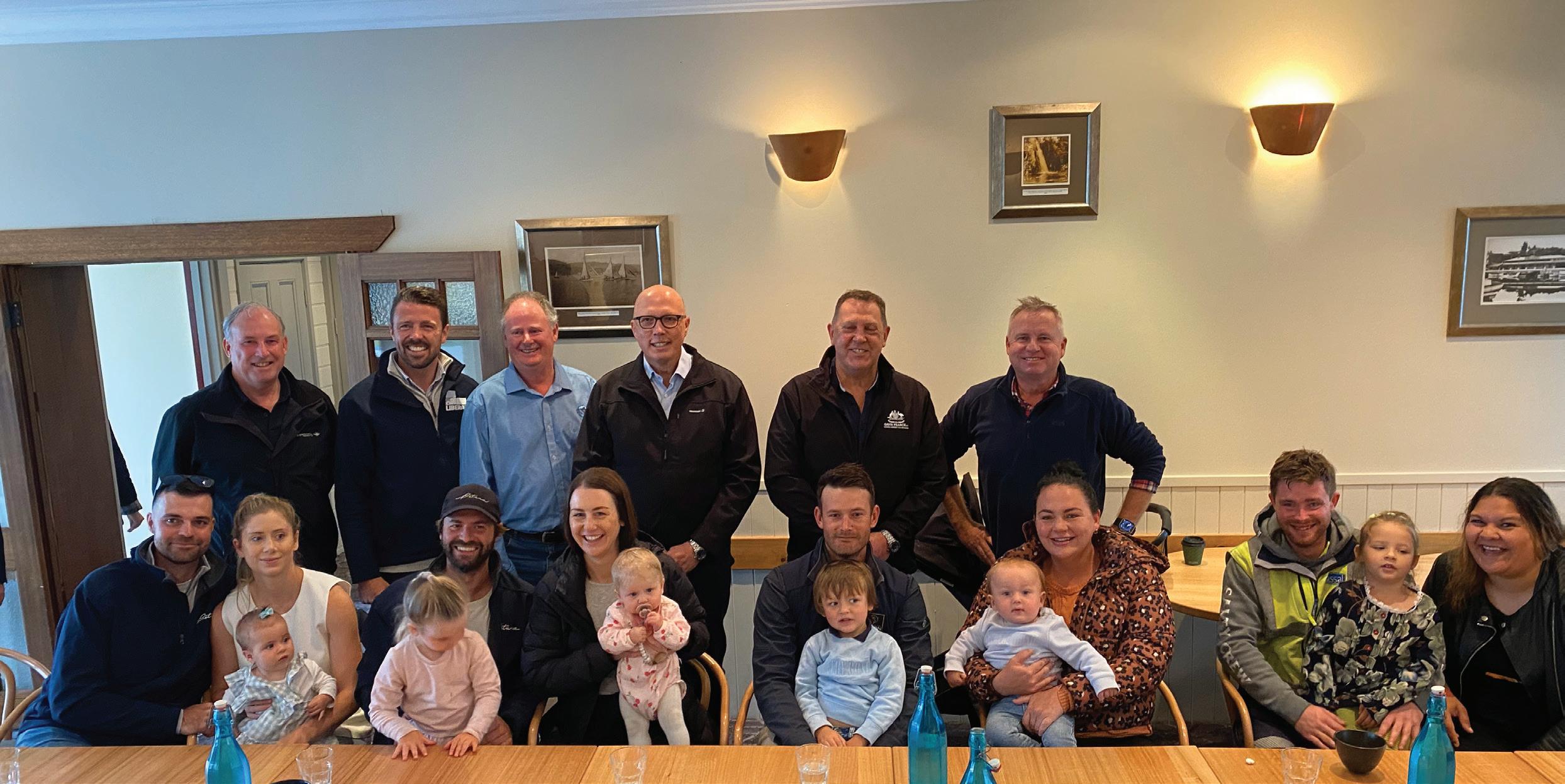
On Sunday 28 January we had the pleasure of welcoming Federal Opposition Leader, the Hon Peter Dutton MP and Premier Jeremy Rockliff MP to Strahan along with Gavin Pearce MP, Senator Jonno Duniam, and Senator Richard Colbeck.
Mr Dutton and the group toured a Macquarie Harbour aquaculture farm for the first time before sitting down with Strahan salmon workers and their families to hear first hand the importance of our industry to this community, along with their uncertainty about the review process initiated by the Australian Government.
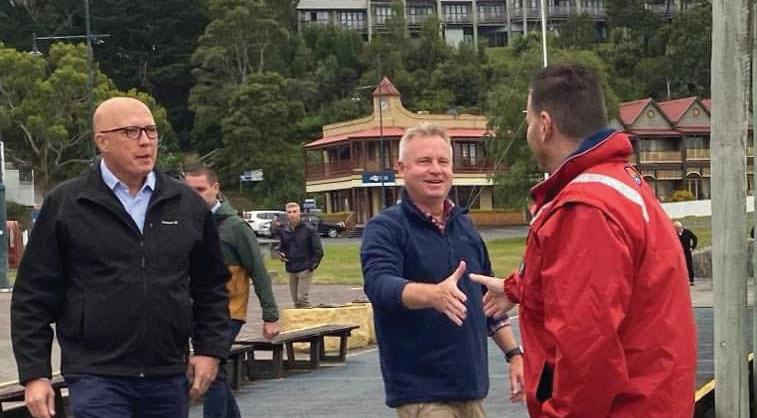
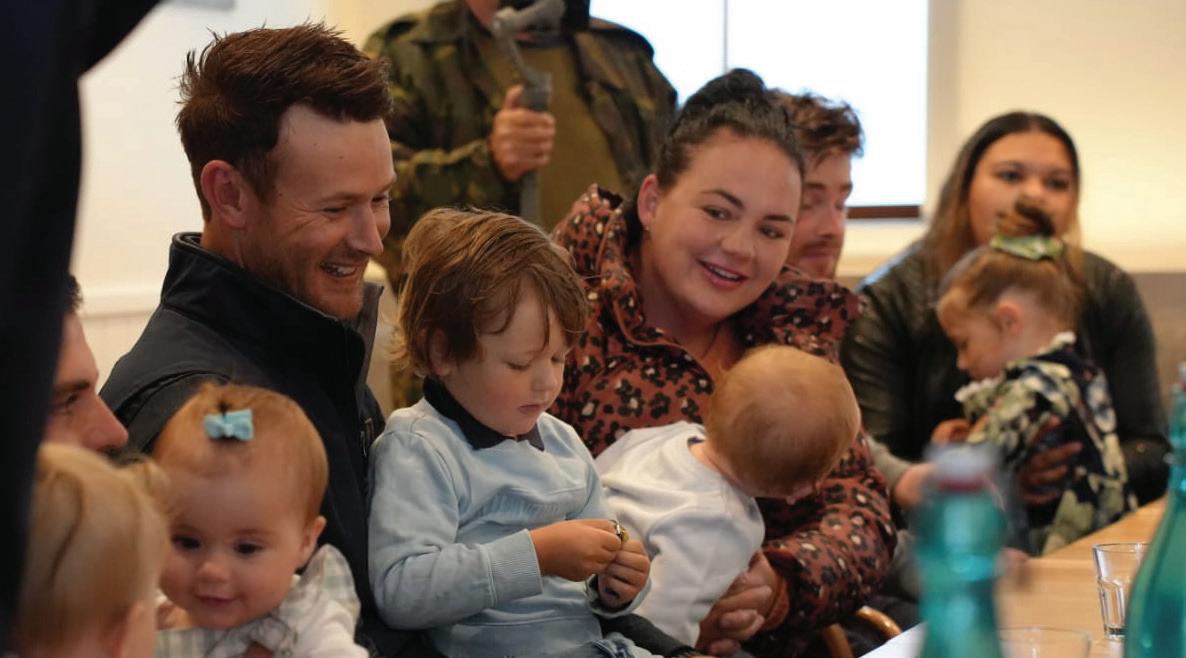
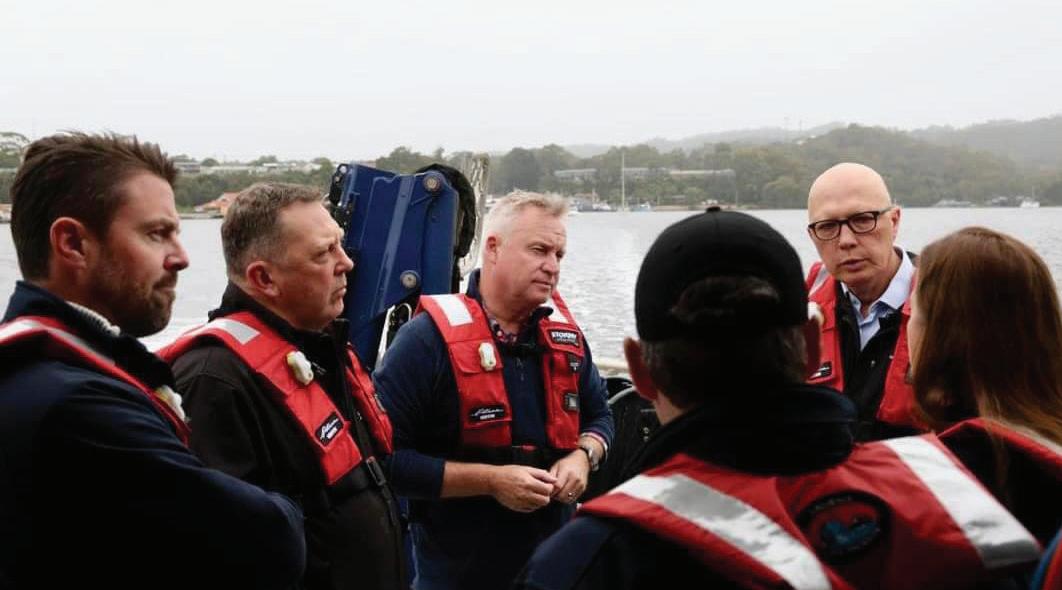
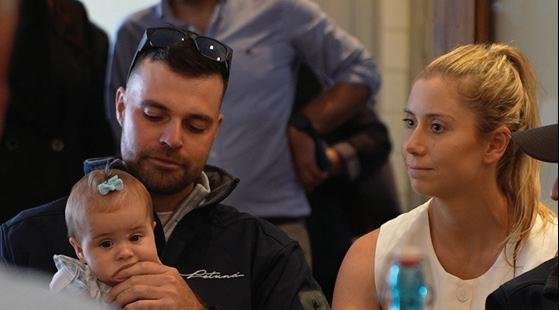


In June 2023, the Australian Government established a National Recovery Task Force made up of scientists and marine experts, representatives of all levels of government, and industries with a presence in Macquarie Harbour, including the salmon industry and Hydro, to determine a practical way forward in securing the future for the skate in its natural habitat.
One of the impacts on the harbour that is affecting the skate is low dissolved oxygen (DO) levels.
There are a range of factors influencing the DO levels in the harbour such as:
• High volume fresh water inputs from Hydro power generation.
• Treated wastewater from human activity.
• Rising oceanic water temperature.
• Mining runoff through river systems.
• Organic inputs from salmon farming.
For our part, the salmon industry has announced a partnership with the Australian Government’s Fisheries Research & Development Corporation (FRDC), in a major initiative beginning this summer to stimulate DO levels in Macquarie Harbour.
The Macquarie Harbour Oxygenation Project, or MHOP, will see an oxygenator positioned in the harbour, injecting very high concentrates of DO into depth (30-40m). The oxygen will be released through miniscule nano and micro bubbles meaning the oxygen is retained within the harbour system.
This technology is used in marine environments throughout the world, but this is the first time it will be used in Tasmania for environmental and conservation outcomes.
Our goal is to trial the technology for 18-months, commencing this 2023/24 summer, with three clear objectives:
1. Demonstrate the technology works in the unique Macquarie Harbour estuary.
2. Inject an equivalent amount of DO into the harbour to offset the oxygen drawdown of all aquaculture and establish a viable option for regulating oxygen levels in the harbour to deal with the long-term impact of climate change and warming waters.
IMAS will independently lead the scientific evaluation program, to assess and publicly report on the efficacy and environmental response to the oxygenation trials.
The industry has extended what is believed to be one of the largest private industry contributions to a wildlife conservation initiative ever in Tasmania to secure
the future of the Maugean Skate. MHOP represents a $7.6 million investment by the Tasmanian salmon industry and the Australian Government.
We have placed our submission to the EPBC process and have encouraged our industry and the businesses and communities we support to stand up for a responsible and science led aquaculture industry that is so critical to Tasmania’s economy and hundreds of Tasmanian families.
The one industry that is showing leadership in responding to the threats to the skate is the Tasmanian salmon industry.
Salmon Tasmania has publicly released its submission to the Federal Government’s review of a 2012 decision on salmon farming in Macquarie Harbour.
The Submission details clearly that there is no scientific evidence that demonstrates removing aquaculture from Macquarie Harbour will ensure the future of the Maugean skate in its endem-
ic habitat, and there is absolutely no legal justification for the Australian Government to reverse its 2012 decision on salmon farming in the harbour.
The submission also includes new scientific analysis demonstrating the minimal impact of aquaculture on oxygen levels in the natural environment for the Skate.

Environmental activists have triggered this EPBC review because they know it could end the salmon industry in Macquarie Harbour.
There are no guarantees removing salmon from Macquarie Harbour will save the Skate, but there is no doubt ending the industry on the West Coast would devastate Tasmanian families and these communities.
This is also a test case of environmental ‘lawfare’ that will inevitably be used against other industries with existing EPBC approvals across Tasmania, including mining, forestry, renewable energy, tourism, and aquaculture.




More than 1000 families in southern Tasmania enjoyed salmon on their Christmas menus, thanks to a major donation from leading aquaculture company, Huon.
Charities grappling with growing demand for support over the Christmas period, have welcomed the support, as the cost of living crisis hit home for many families in Kingborough and the Huon Valley.
Ros Edwards, Salvation Army Officer for the Kingborough and Huon Area, said Huon’s donation came at a critical time.
“It was a really challenging season, the social economics of the world do not discriminate, and we are encountering families from all demographics.
We found particularly last year that the need for our services was far greater than ever,” Ms Edwards said.
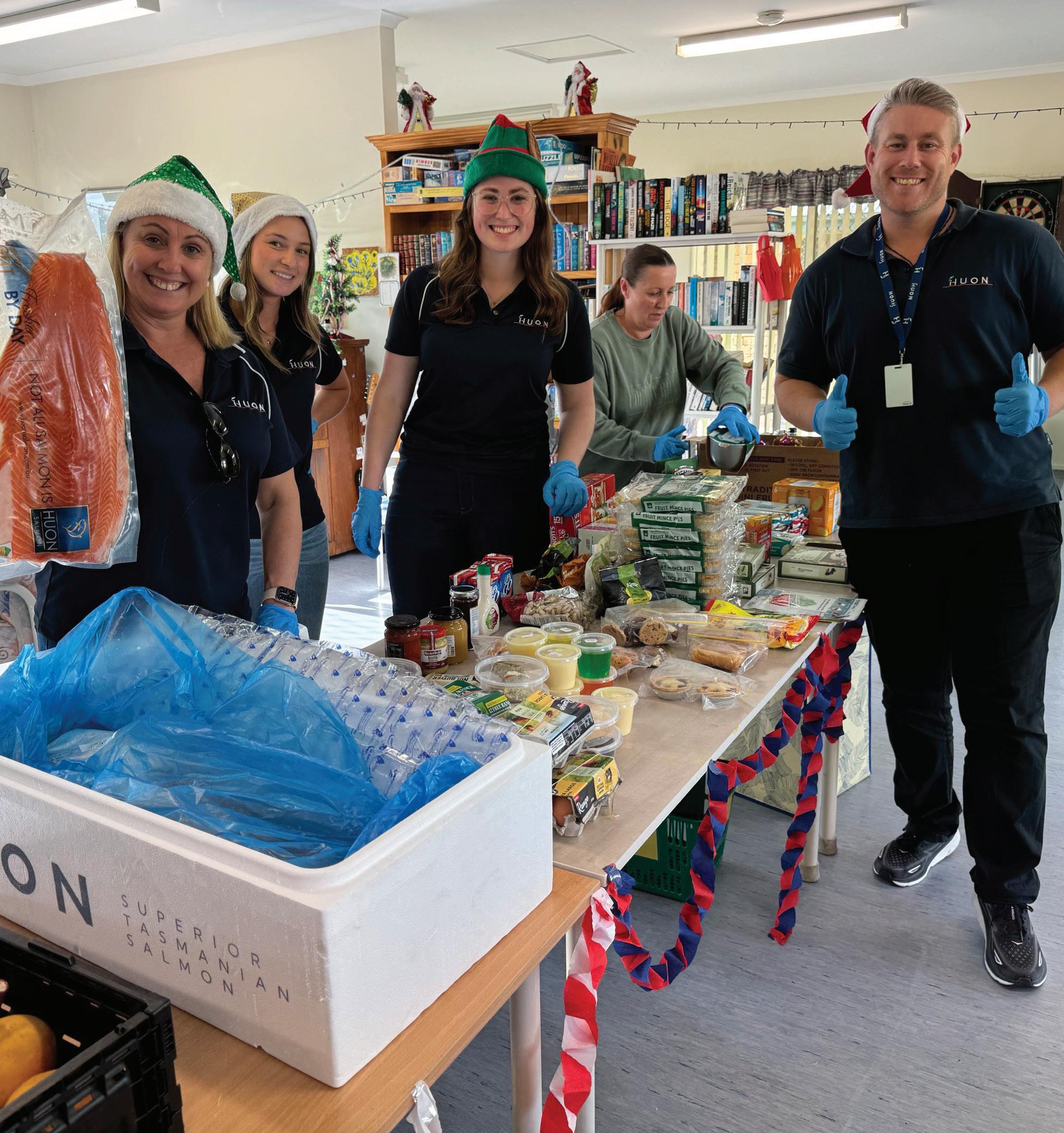
“The generosity to give people such a large fillet of salmon is like giving them gold, something people doing it tough could otherwise not afford.
“Thanks to organisations like Huon Aquaculture partnering with us, we’re able to lift people up at challenging times of the year.”
Nine local charities received a total of 300kg of salmon as part of the Christmas donation.
Community Engagement Coordinator Sammy Kluga said Huon was proud to be part of the local community and support people doing it tough.
“We know Christmas can be a challenging time for a lot of people and it’s just good to be able to help put food on the table for local families and know that’s going to make real difference.”
The recipients of Huon’s donation run included:
• Jireh House Kingston
• Kingston Neighbourhood House
• Kingborough Helping Hands
• Salvation Army Doorways Program
• Kingborough Family Church
• Salvation Army Huonville
• Uniting Church Cygnet
• Geeveston Community Centre
• Huon Anglican Church.
Each organisation plays a vital role in supporting families and individuals facing challenges, and Huon is proud to stand alongside them in their efforts.
Huon’s donations have extended past the festive season, as part of a quarterly donation program to continue assisting local families in need all year round.
Petuna’s new Managing Director Rocky Boschman moved to Tasmania from Canada, where he has spent his whole career in the salmon industry across management, production and sales.
Rocky has worked for several seafood companies in Canada including Marine Harvest (Mowi) and most recently as MD at Grieg Seafood in British Columbia.
His values and ethics align strongly with Petuna’s, focused on people, sustainability and industry collaboration.
In addition to extensive salmon knowledge and leadership experience, Rocky has a Bachelor’s Degree in Marine Biology and Biological Oceanography, and a Masters of Business Administration.
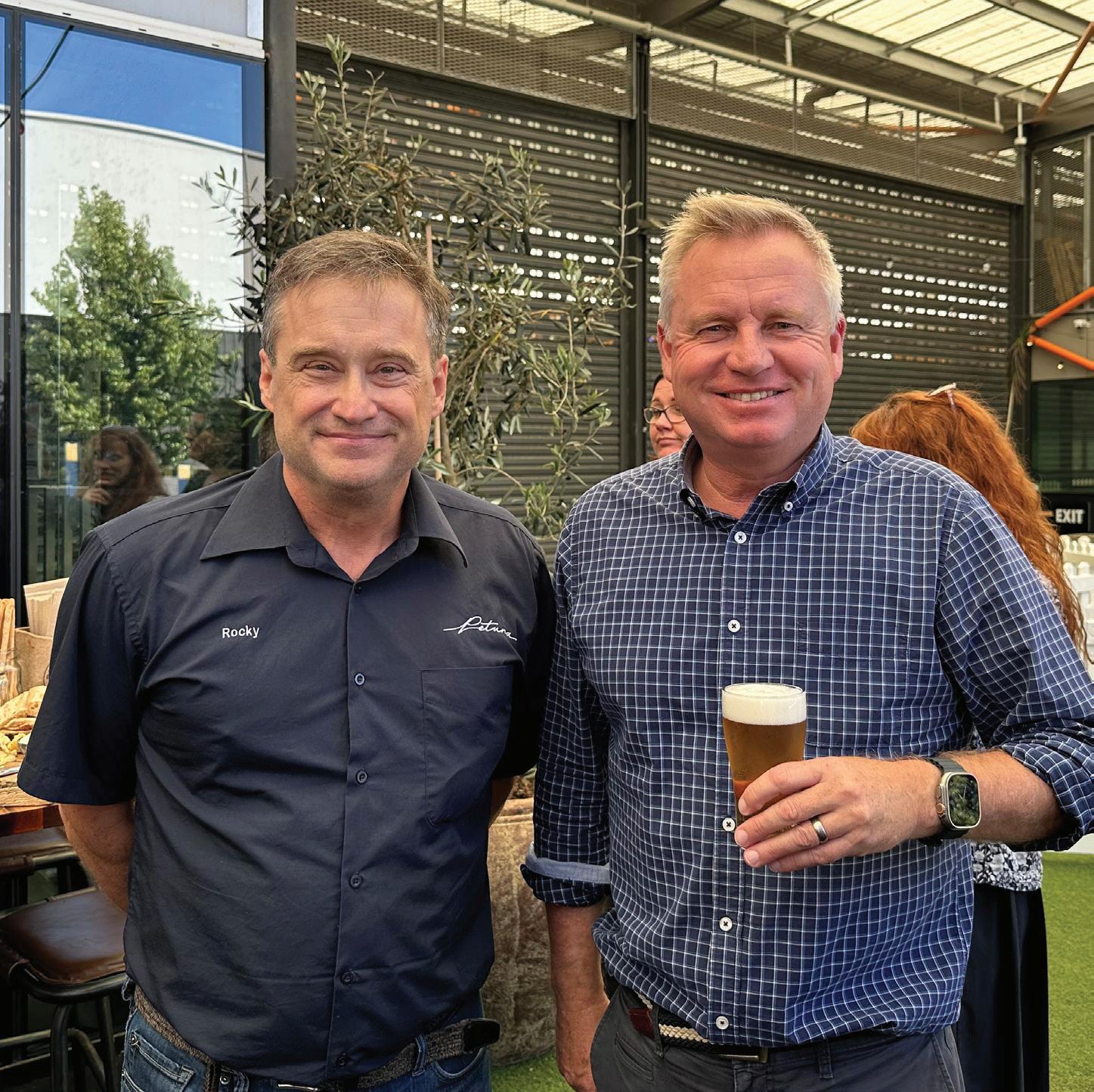
Petuna Aquaculture is helping tackle food insecurity in Tasmania through regular donations of salmon to statewide emergency food provider, Loaves and Fishes.
Loaves and Fishes distributes emergency food relief through 300 community partners across Tasmania. The organisation also offers pathways to employment in areas such as hospitality, cooking, warehousing and logistics, through to schoolbased and adult apprenticeships.
Petuna Managing Director Rocky Boschman said the company was proud to be contributing to such a worthy community cause.
“Food insecurity is a rapidly growing problem, with a recent University of Tasmania study revealing more than half Tasmanian households

experienced food insecurity over the previous month –ranging from having to reduce the quality and variety of food, to extreme measures such as regularly skipping meals,” Mr Boschman said.
“Tackling food insecurity aligns with our central purpose of producing sustainable, healthy and plentiful protein.
“The research shows that when people are facing food insecurity, fresh protein is one of the first things they sacrifice.”
Loaves and Fishes General Manager Aaron Kropf
said Petuna’s regular donations of salmon would help Tasmanian families put nutritious food on the table.
“In 2022 Loaves and Fishes delivered more than 255,000kg of emergency food relief to Tasmanians in need across the state,” Mr Kropf said.
“We could not do that if it wasn’t for the generous donations from the community and our corporate partners like Petuna.
“It is great to have a proud North West company stepping up to help its community.”
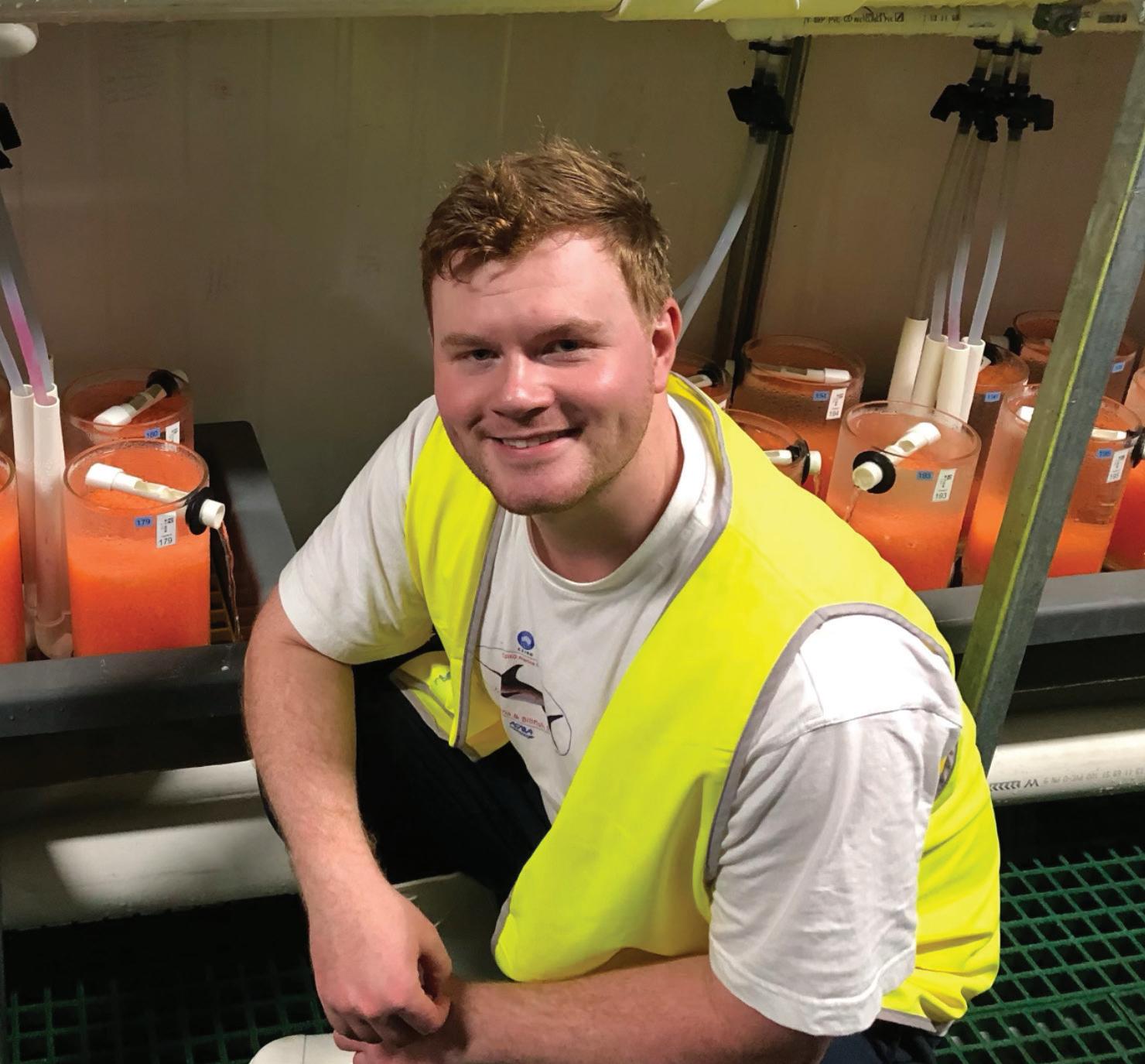
As Tasmania faces the challenges of climate change, including the increasing likelihood of warming waters, Salmon Enterprises of Tasmania (SALTAS) is leading the charge in developing innovative strategies to enhance the resilience of the Tasmanian salmon industry.
At the forefront of these efforts is a collaborative partnership with the Blue Economy Cooperative Research Centre, supported by the Institute for Marine and Antarctic Studies (IMAS), the University of Tasmania (UTAS), and the Sustainable Marine Research Collaboration Agreement.
The Selective Breeding Program at SALTAS, traditionally focused on traits like growth rate and disease resistance, has broadened its scope in the past five years to include summer growth, achieving significant progress. This forward-thinking approach is now directly confronting the challenges posed by climate change.
In a significant collaboration with Blue Economy CRC partners; UTAS/IMAS, Skretting, Tassal, and Huon Aquaculture, SALTAS undertook a pivotal trial at state-of-theart experimental facilities. This trial, part of a Blue Economy CRC initiative, assessed the adaptability of different salmon genetic lines to simulated future climate conditions, marking a crucial step in understanding and preparing for the impacts of a warming climate on Tasmanian aquaculture.
During this innovative trial, salmon from various genetic
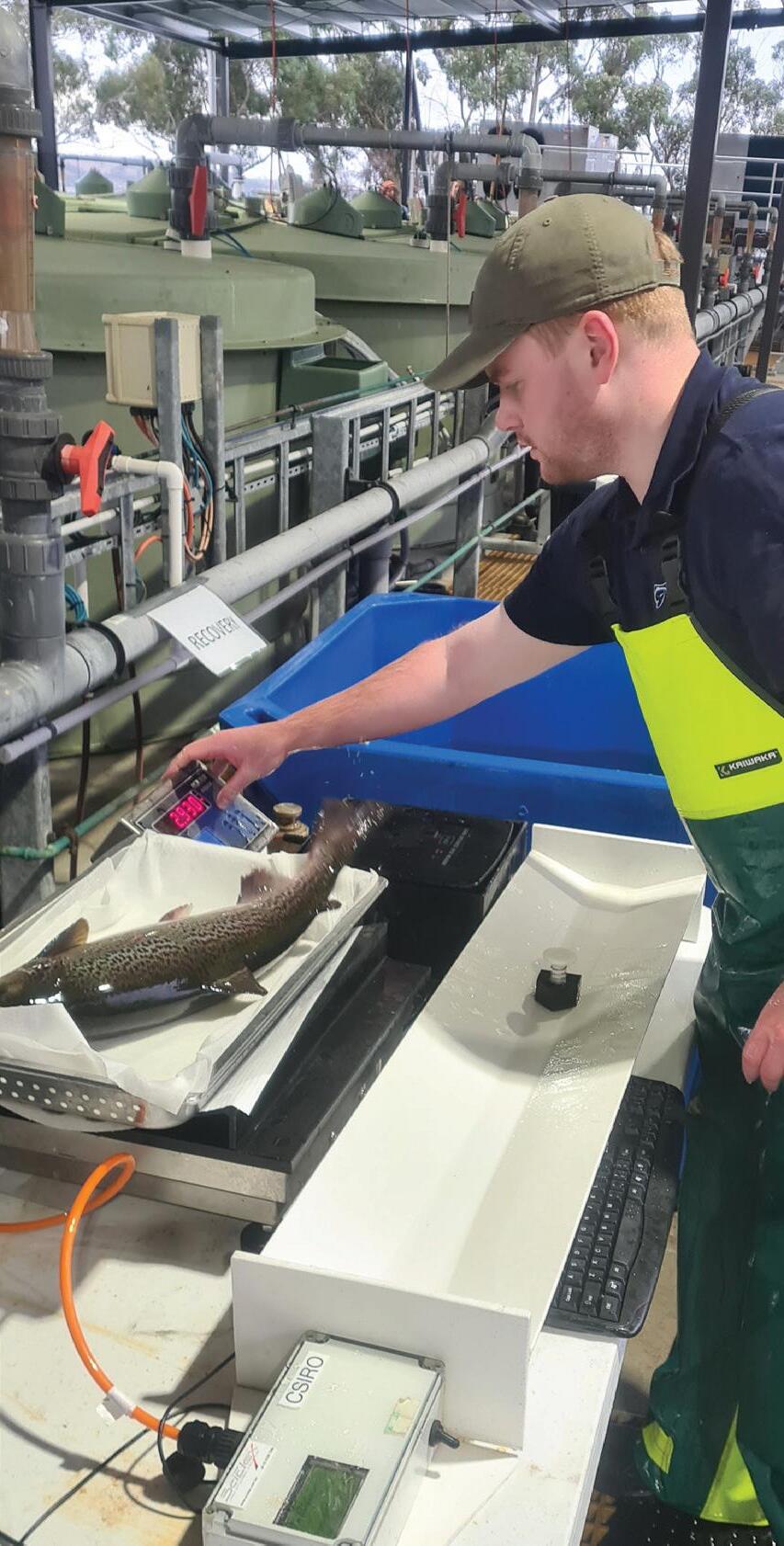
lines were exposed to increased water temperatures at IMAS’s advanced facilities.
An in-depth understanding of thermal response in these fish was attained through precise measurement of growth and health indicators across different lines.
Impressively, certain genetic lines demonstrated exceptional resilience, maintaining robust growth rates and health despite warmer conditions. This outcome highlights the potential of selective breeding in adapting to Tasmania’s changing aquatic environments and confirms that the current breeding strategy for summer growth is effectively preparing salmon for future climate scenarios.
The success of this trial holds significant implications for SALTAS and the broader Tasmanian aquaculture industry. Identifying strains capable of thriving in higher temperatures is a critical step toward securing the industry’s sustainability and resilience through environmental changes. This initiative exemplifies SALTAS’s commitment to proactive strategies and innovative thinking in salmon breeding, aligning with the industry’s vision for a sustainable and prosperous future.
Looking ahead, the Blue Economy CRC will consider future research focusing on enhancing efficiency and sustainability. This futurefocused direction underscores the ongoing commitment to innovation, which is essential in addressing the challenges posed by climate change and setting a precedent for the future of aquaculture in Tasmania.
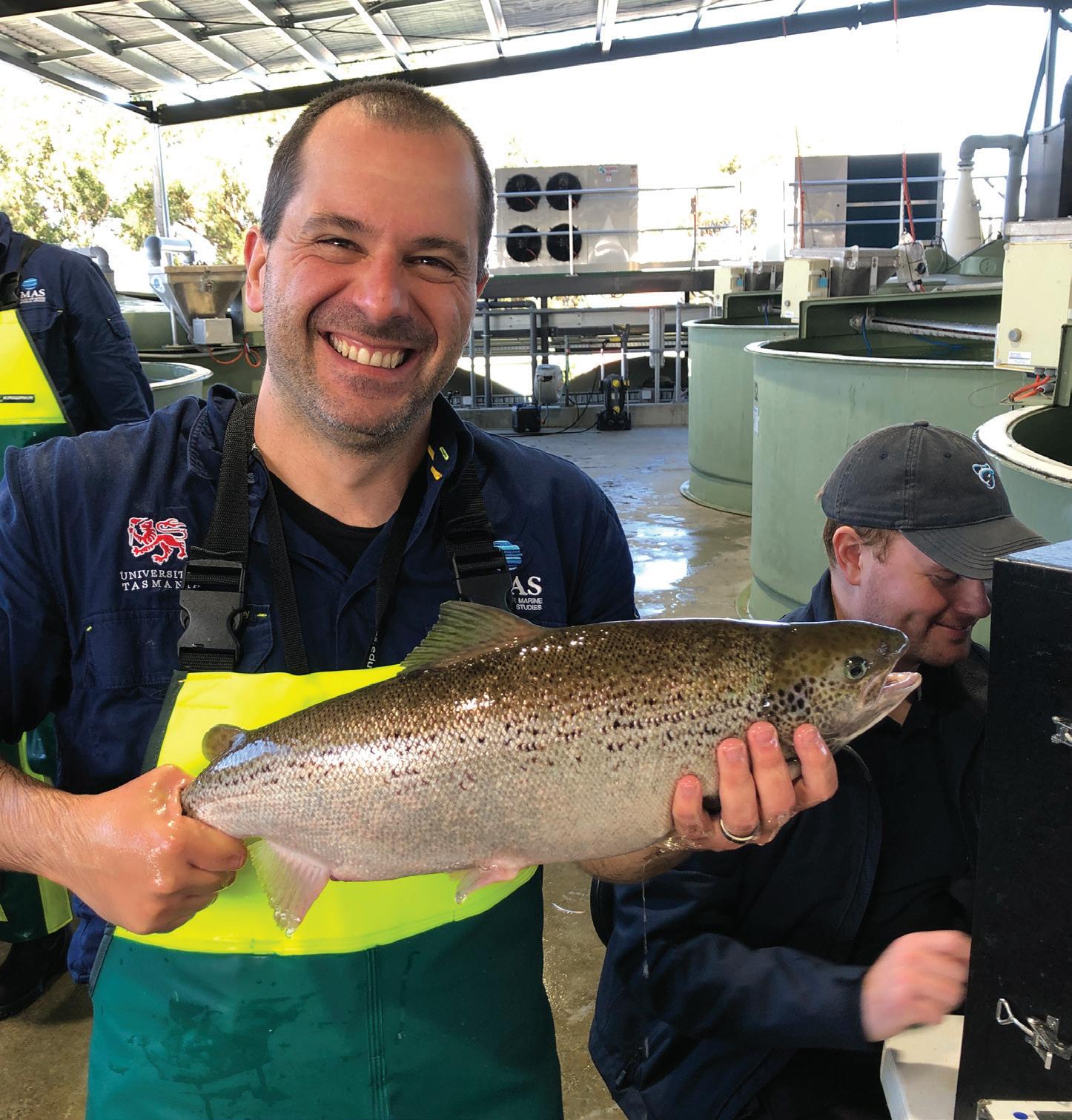
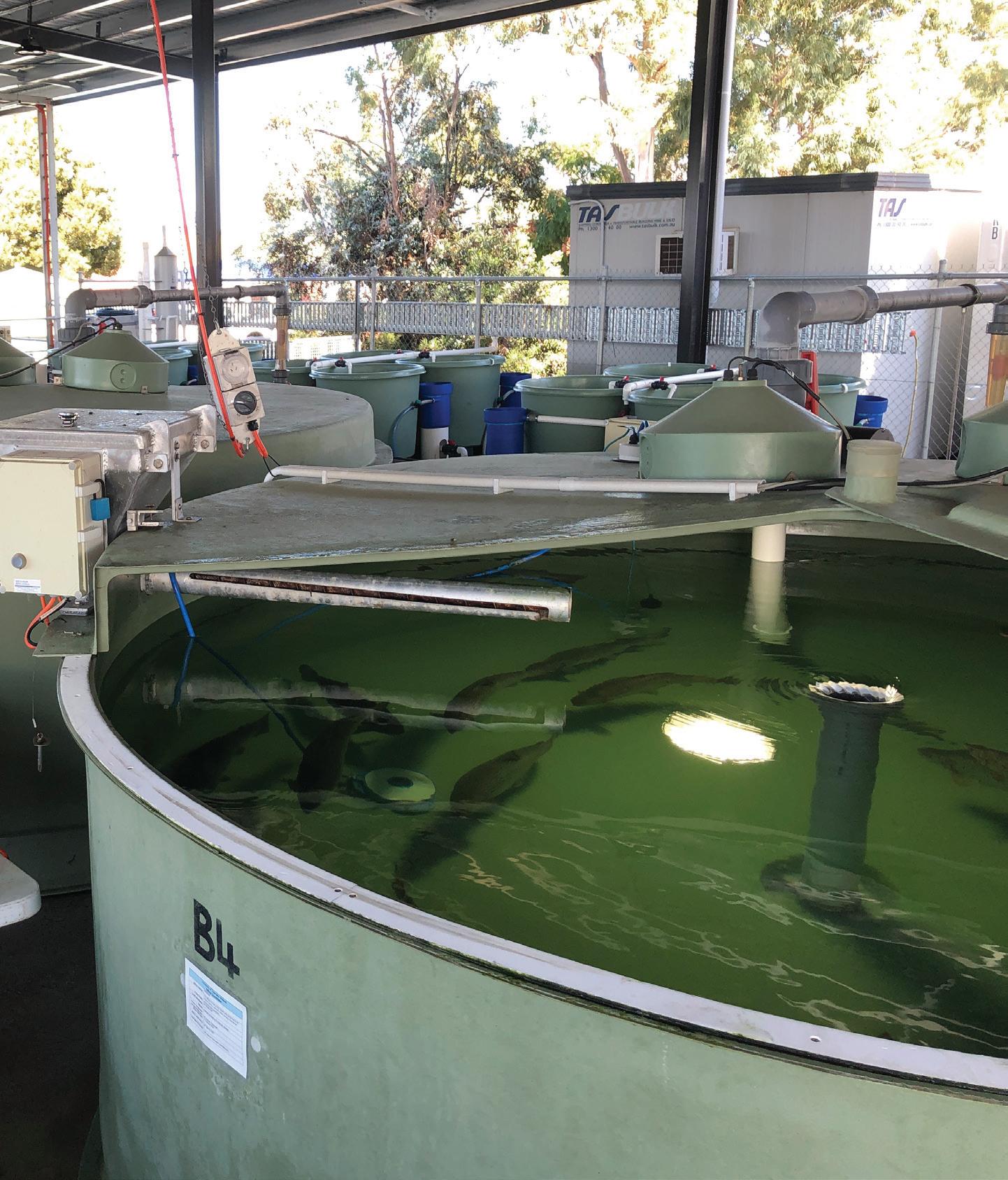
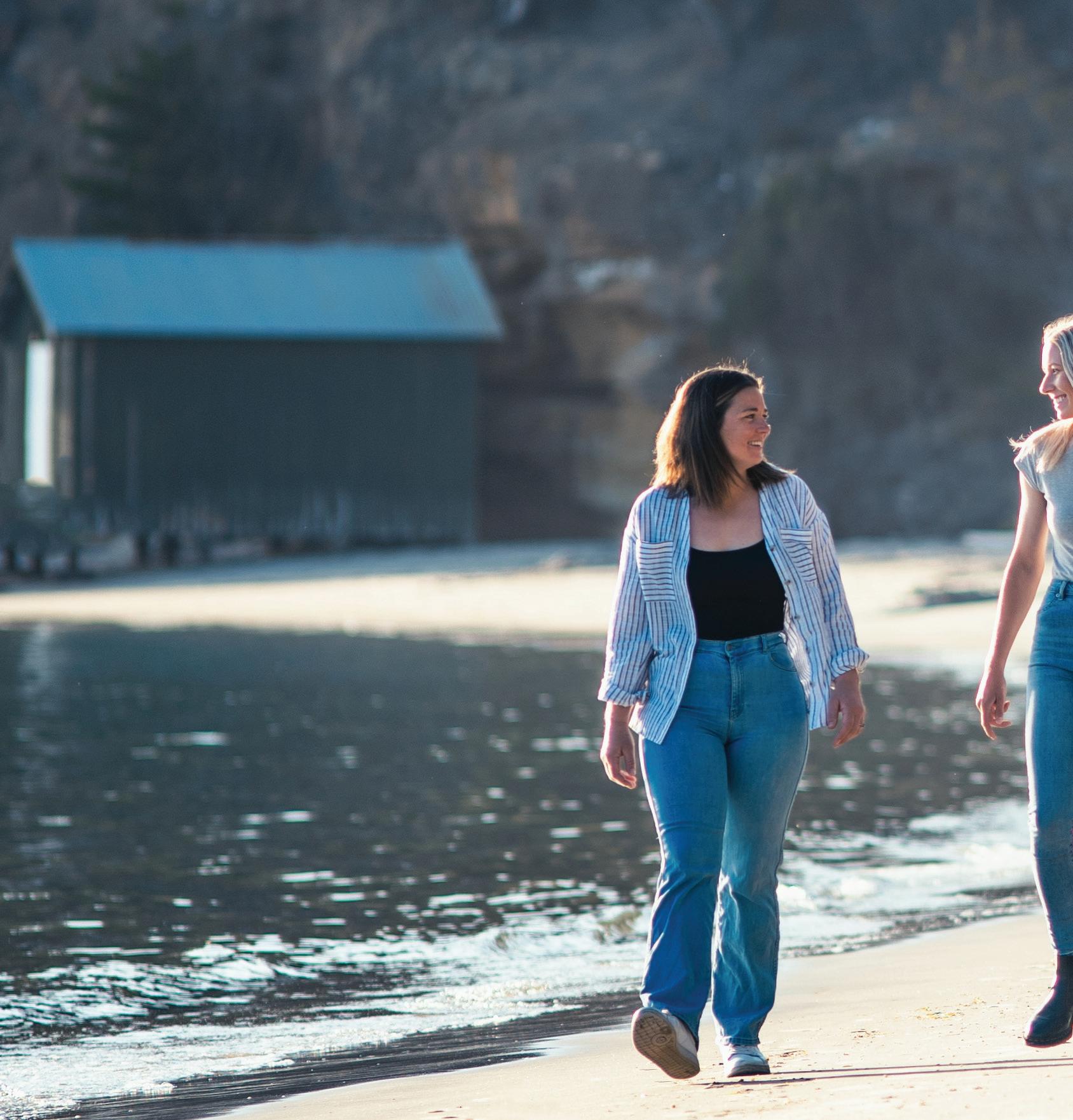
In the picturesque landscapes of Tasmania, a group of dedicated women are paving the way for future generations of females in what has traditionally been a male-dominated industry - aquaculture.
As the industry continues to evolve, these women are leading the way in research, innovation and sustainable seafood farming.
One such trailblazer is Maddison Little, an aged care worker turned Wildlife Officer for Tassal, who has taken to aquaculture like a fish to water.
Maddie’s journey began with a fascination for marine life, a desire to keep workers and the wildlife in and around the farms safe, led by a determination to also make a positive impact on the environment.
Maddie’s commitment to sustainability is echoed by other women in the industry, such as Zoey Ngui, who started with Petuna while studying her Masters of Marine Environment at the University of Tasmania.
Zoey has been instrumental in the development of Petuna’s selective breeding program, implementing innovative research and modern practices to minimise the environmen-
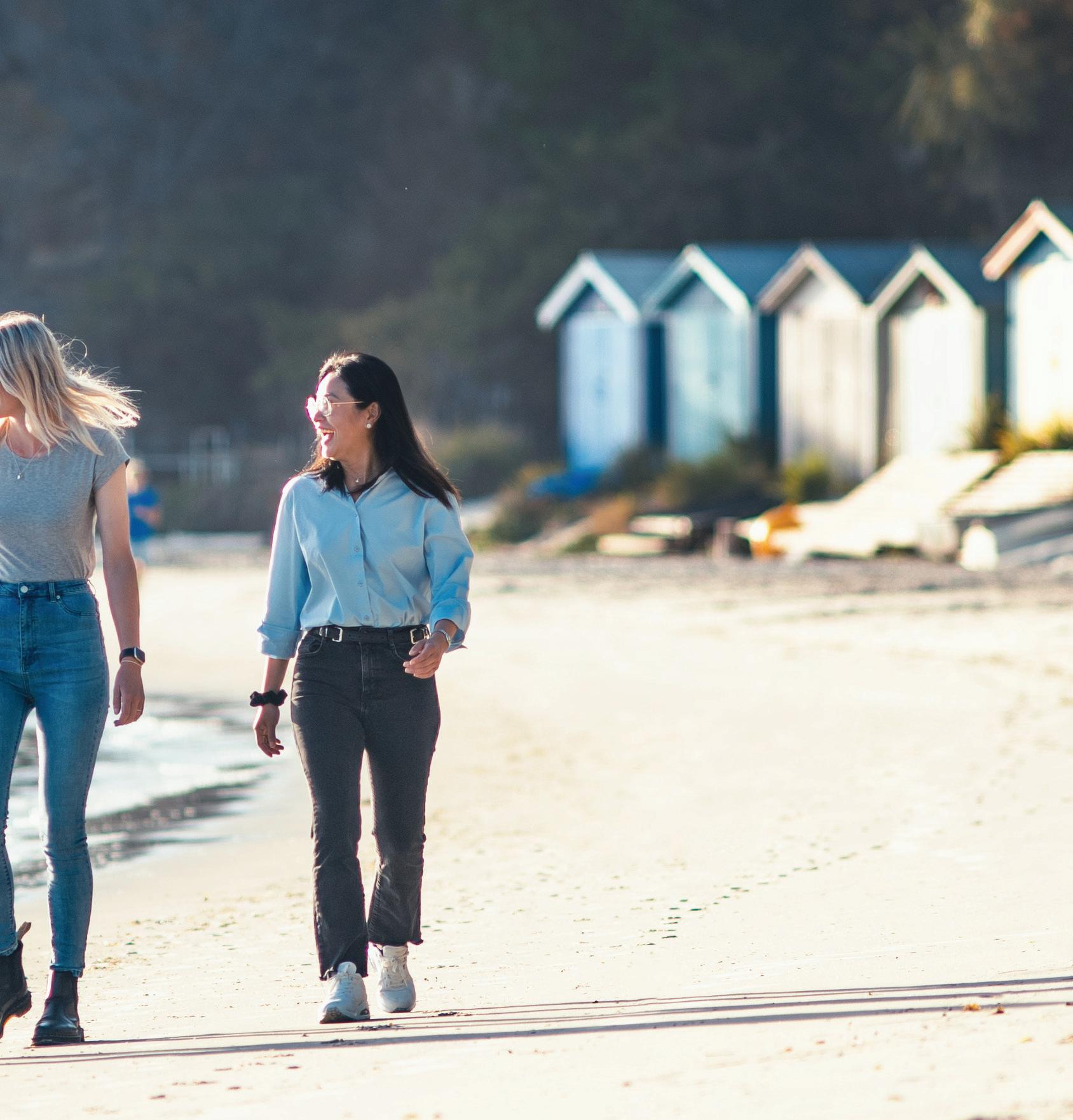
tal footprint of fish farming through maximising efficiency.
Huon’s Maddy McBride, moved to Tasmania from South Australia during her final year of study, passionate about developing her career in aquaculture.
Maddy’s desire to push herself while doing something she was passionate about saw her advance from Hatchery Technician
to Fish Performance Manager - a role that sees her leading a team responsible for maximising fish health and product quality.
“The misconception that aquaculture harms the environment is slowly changing,” says Maddy. “We are constantly researching and implementing new technologies to ensure that our practices are as eco-friendly as possible.”
These three women are not only challenging gender stereotypes but are also inspiring a new generation of girls to consider careers in aquaculture.
Through their drive and professional success they are encouraging other young women to explore the exciting opportunities within the aquaculture industry.
These are their stories.
As the Wildlife Officer in Tassal’s Channel Zone, I find there are no two days that are the same.
From days that consist of conducting rigging checks on our pens to ensuring they meet the minimum requirements under the wildlife framework, to managing teams to collect marine debris along the shorelines of Bruny Island and down the Channel. I love the variety my job has to offer.
Being the Wildlife Officer for the site, it’s my responsibility to ensure the correct procedures are in place for wildlife breach prevention, mitigation, control, and reporting. This part of my role is very important to keep our people and the wildlife in and around the farms safe.
When I first started at Tassal I had little experience and not much knowledge in the industry, only recreational boating experience having grown up in a passionate fishing family.
Being with Tassal for five years I have learnt so much and I have gained a lot of experience on boats and around farming equipment, and a lot of knowledge about salmon and the industry.
In 2020, I completed my certificate III in Aquaculture as part of training to gain relevant tickets and qualifications, and in 2022 I received the ASC Young Person in Aquaculture Award through the Sustainable Seafood Awards Australia.
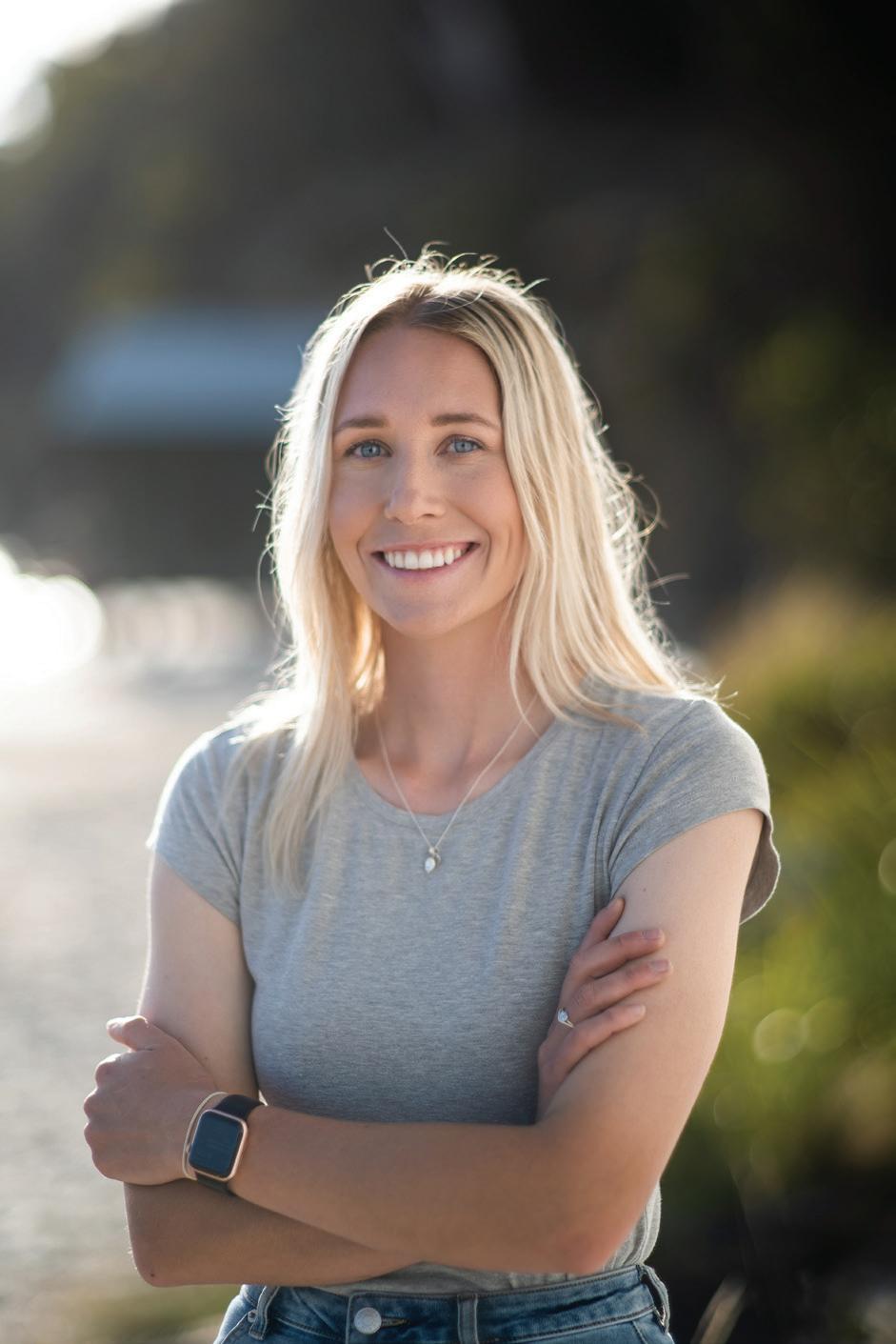
I’m not sure where I think my career will take me, but I’m excited to see what will come for me in the future.
I have developed a professional skillset that should hold me in good stead, whatever path I choose to pursue within our industry.
I never really considered a job in the aquaculture industry growing up, but after college I worked in Aged Care for a few years and from there I wanted a career change.
I was interested in something outdoors and hands-on, and I was ready for a new adventure.
In December 2018, I was successful in obtaining a job as a Wildlife Assistant at Tassal’s Channel Zone.
I then worked as a Farm Attendant for about a year, before moving into the Wildlife Officer position, and have been in the role since.
During my time working here, I believe the aquaculture industry and especially Tassal really do embrace gender equality and have always provided equal opportunity.
Tassal is always looking for ways to improve and to cater for everyone, which is great to see. Dayto-day in our operations, women are proving that we can do anything we apply ourselves to in the industry, and Tassal is supportive of this.
I do believe the industry should get more school students out on the farms and show them what goes on and let them see what we do.
I don’t believe that the industry has been great at showcasing what we do and how we do it, and there is a good news story here that is potentially wasted.
School-age kids hear sentiments that are anti-industry often enough, but probably aren’t afforded the opportunity to hear about the great things we do. Our detractors are few, but vocal.
Young women are not always exposed to the work that we do, yet there are plenty of young women who share my passion for the water and being outdoors, and aquaculture
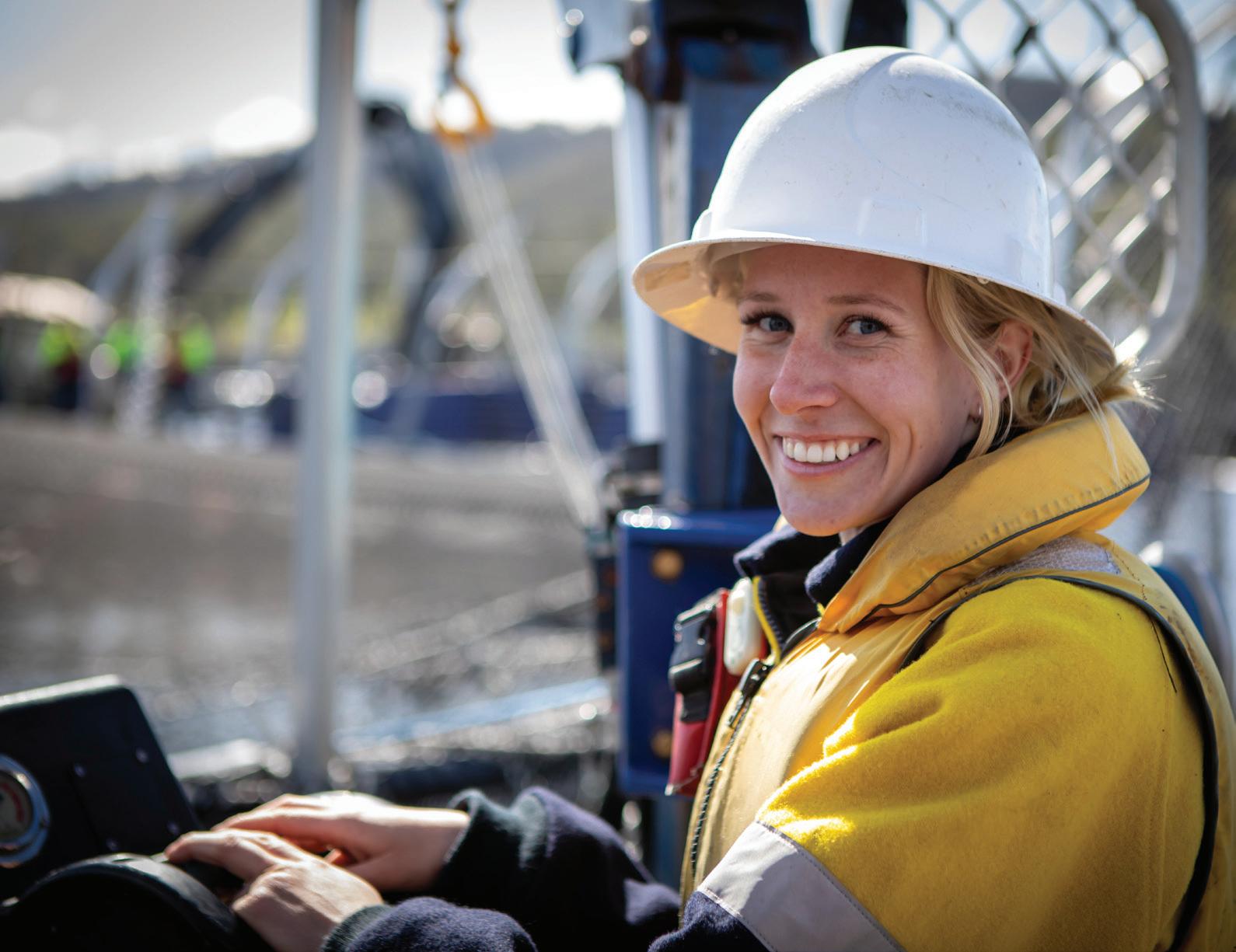
may be an unconsidered industry for a lot of these women. This was certainly the case during my schooling.
I believe women in the industry have just as much opportunity as men to progress; it will take you as far as you want to go if you put in the work and show your passion for what you do.
Tassal affords diversity and opportunity in all departments of our business, including Environmental, Responsible Business & Communities, People & Culture, The Executive, Legal, Centralised Feed Operations, and Marine Services & Logistics.
Women are occupying many positions across these depart-
ments and doing some great things.
What advice would you have for any women thinking of working in aquaculture?
Don’t be afraid to give it a go, if you think you may be interested in the aquaculture industry take the next step and apply. There are so many different roles within the industry and there is plenty of opportunity to grow.
There are great training programs like our award-winning Accelerate Program that Tassal has for new employees to prepare them for their new roles, and School Based Apprenticeships which may be of interest to young women to get their careers started.
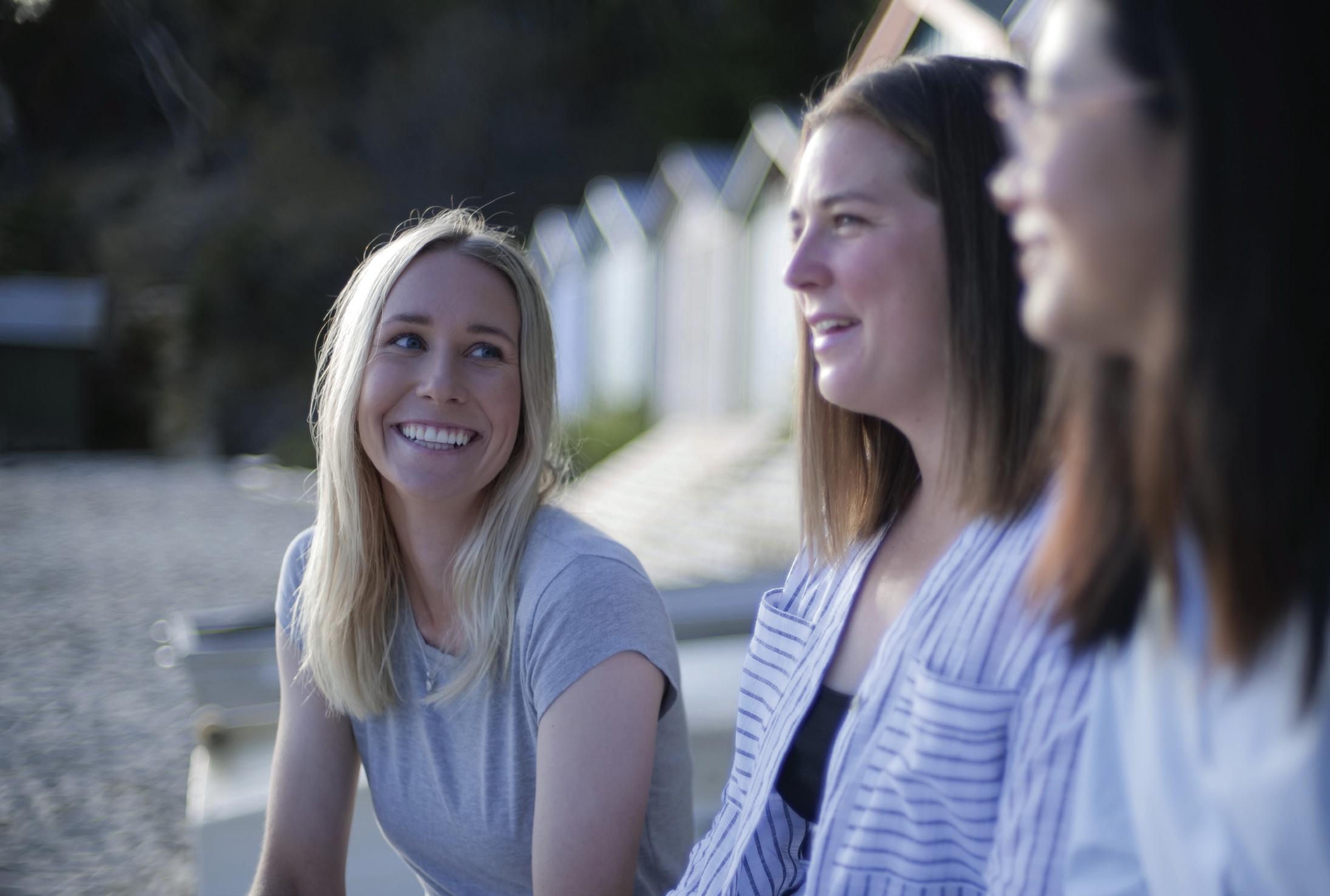 Zoey Ngui
Zoey Ngui
I organise and coordinate operations that are critical for the Breeding Program.
Leading up to the annual spawning season, there are multiple key events such as broodstock tagging, sea site summer sampling and harvest assessments where there is only one chance during that specific period to collect DNA samples and other relevant information.
As these events involve many people from different sites, it’s my duty to ensure these operations are planned months in advanced so they can run smoothly.
I also need to coordinate operations with external companies. For example, in preparation for our spawning season, I need to ensure that our DNA samples are shipped off in a timely manner and the genotyping results are received by certain deadlines from our lab partners overseas.
Additionally, I also organise the milt cryopreservation service from our service provider in Canada.
I review these operations and DNA information daily since there could be unexpected events that could impact them. It’s vital for me to be flexible to any possible changes but also try to stick to timelines. I also assess the DNA and the respective parameters routinely as it is essential this information stays accurate for the Breeding Program.

I first got involved in Petuna’s spawning season in 2018 during work experience while I was still doing my Masters course at UTAS and have been heavily engaged with the development of Petuna’s breeding program ever since.
I took over the main responsibility as the Breeding Program Coordinator in 2021, managing the operations and coordination with various parties within and outside the company. I want to see the genetic gains from the program translating to the entire production, which is currently facing numerous environmental challenges and further contribute to the growth of the company and hopefully even the industry.
I think compared to five years ago when I first started in the industry, there is definitely some major improvement in gender equality.
I clearly remember stories that were told to me by female colleagues about their mistreatment back in the days purely based on their gender. However, I have never experienced it myself and have always felt supported by the management team to speak up if any-


thing happens. I also feel that I’m always given the same opportunity as my peers which further cements my view that aquaculture has started to embrace gender equality compared to ten years ago.
Since aquaculture is mainly viewed as a male-dominated industry and the general public doesn’t have a deep understanding of its day-to-day operations, more promotion can be done on the diversity of job opportunities for women as well.
There are now countless major technical advancements in aquaculture in Australia.
A lot of the traditional labour-intensive operations have been replaced, opening up new pathways for women to enter the workforce and develop good career progression.
What advice would you have for any women thinking of working in aquaculture?
Don’t be afraid to follow your dreams. Times have changed for women who want to work in aquaculture and I’m definitely seeing a trend of more and more women coming into the industry and you will never be alone.
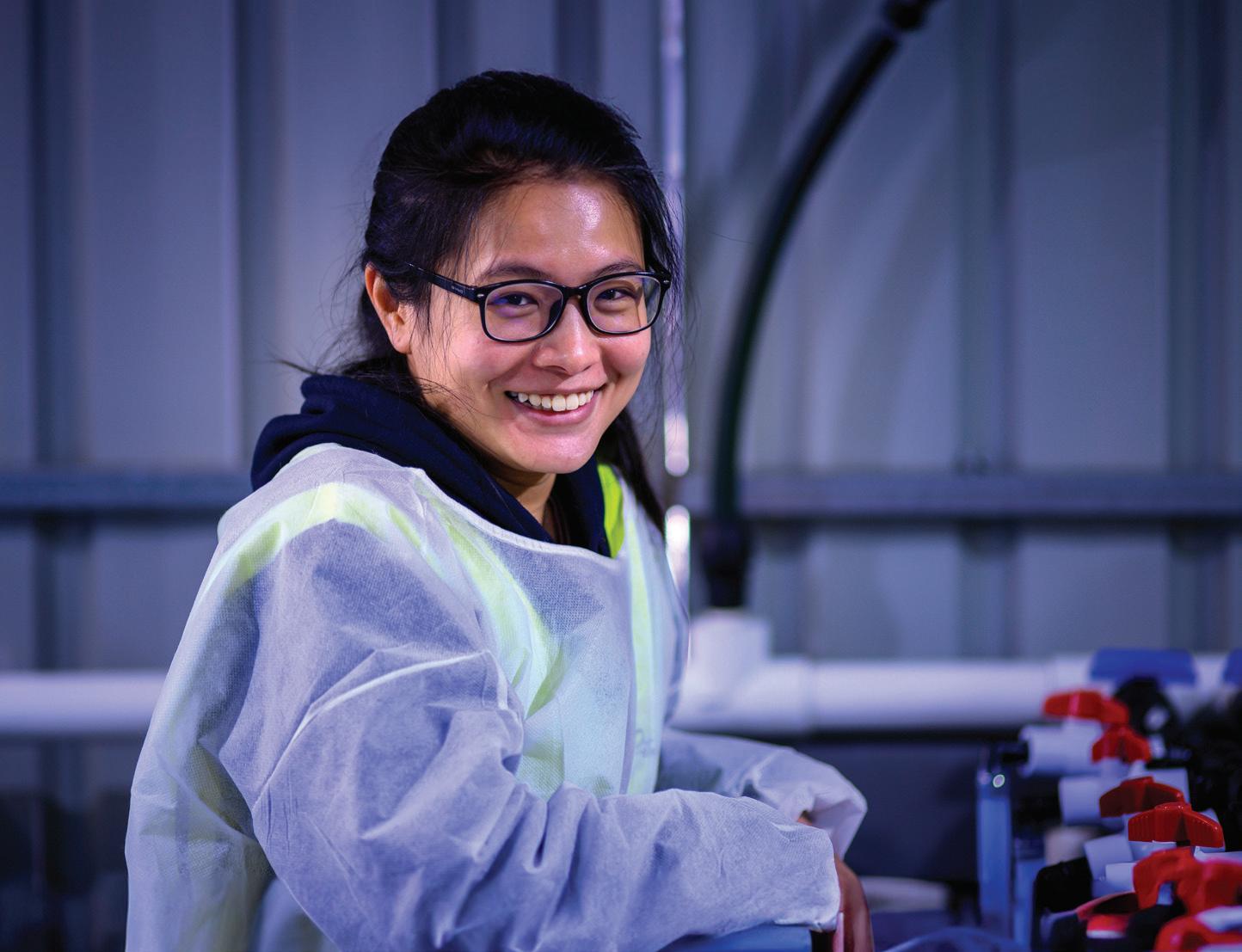
On any given day I will be reviewing how the fish performed the previous days compared to our KPIs and if they were not met, adjusting our feed strategy to maximise growth potential for the following days.
We have four feed barges that service our leases at Storm Bay, so I am often reviewing feed, and fluid levels on board to ensure we have enough and that the feed barges are sitting level.
I will place feed orders with our internal department, planning for any change in feed type due to fish size or season and managing feed deliveries around a high energy site. I have a team of technicians that service our feed equipment in an on-site workshop and farm attendants that tend to any on-water issues relating to the feed equipment.
I started my career in aquaculture at a Yellowtail Kingfish hatchery in South Australia where I worked on a casual basis while completing my studies.
In my final year of study, I wanted to gain experience with other species and it was suggested I try the salmon industry in Tasmania.
I applied for a two week student placement program that Huon offered and was successful. In those two weeks I got to assist with jobs around the southern hatcheries, as well as get out on water with harvest fish.
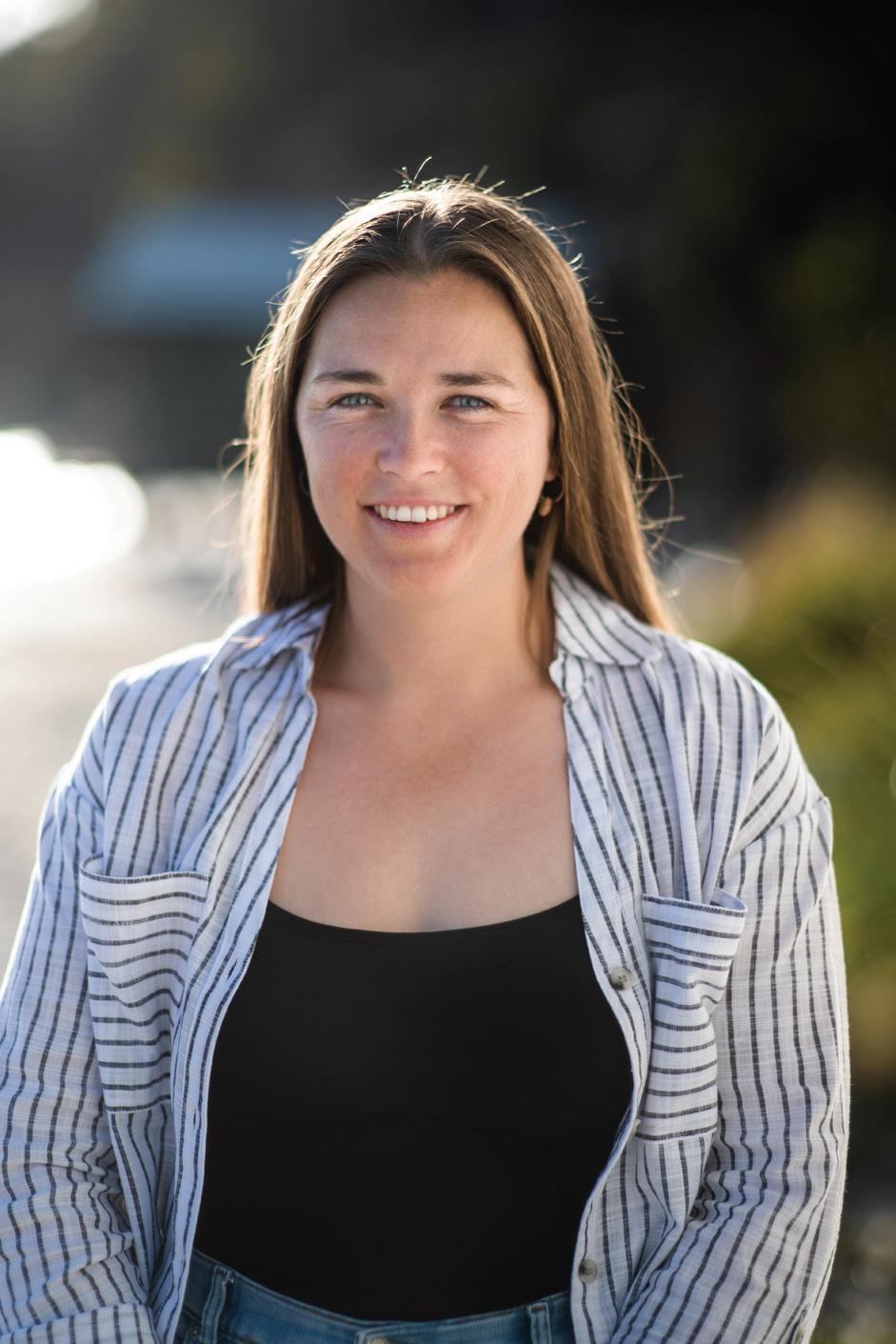
It was my first trip to Tasmania, and it didn’t disappoint - I was eager to get back.
Not long after, there was an opening for a hatchery technician at Forest Home Hatchery which I promptly applied for and was successful. I loved my time working at the hatcheries, being involved in the whole process from stripping the eggs to hatching and first feed, to managing water quality, vaccinating, and sending smolt off to sea.
I always like leading and being busy, so naturally I was on the eye for something new or more challenging, so when a job on the feed trials opened, it piqued my interest at what else I could do in the marine operations field.
At feed trials I was introduced to all the processes involved in marine production, just in a smaller-scale, from input, to bathing, to net cleaning, gill checking
and harvesting. I also got to use some analytical skills from my bachelor’s degree when reporting on the results at the end of each trial.
After this, I was keen to use these skills in large scale farm production and took up the position of assistant fish performance manager in the growout Channel Zone, looking after Zuipool North and South leases. It was a challenge as I was now in a role where I had people reporting to me, who were very experienced and knowledgeable. I was lucky enough to have a great mentor, who allowed me to learn much of the fish performance manager role, which prepared me for my current position as Fish Performance Manager in our Storm Bay region.
I am not sure I ever envisaged ending up in my current position, but I did know that I wanted to do something I am passionate about and something that challenged me.
I think the aquaculture industry has come a long way in a relatively short period of time. Big technological advancements have not only made the work we do safer and more efficient, but there is less emphasis on hiring people who can lift heavy things and more emphasis on having the right equipment and training for the job. In some areas, gender equality is still struggling, but I think that has much to do with people’s perceptions of the industry and attracting women to those stereotypical male roles. Whilst in other areas of the
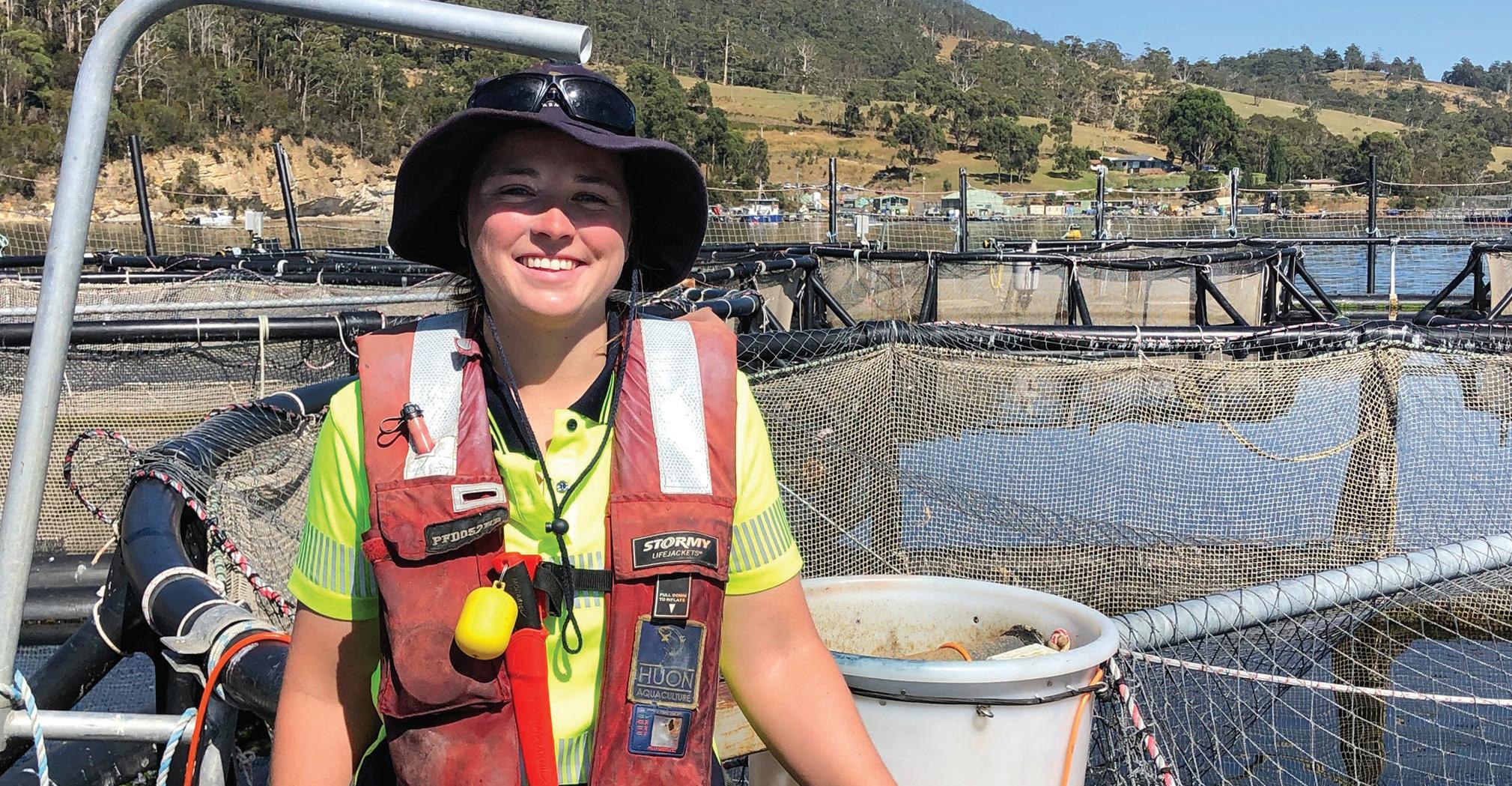
industry such as people and culture, planning, finance, and sales we are kicking goals.
I think we could be better at educating girls and women about the opportunities available in the industry at a younger age.
There are some great school vocational programs in the marine science space, so tailoring more to the aquaculture sector and not only the marine side, but also introducing other key areas like freshwater, processing
and environmental monitoring, could be just the thing to get more girls interested.
Personally, I didn’t know much about the industry before I jumped in headfirst, so it may pay to have more advertising on social media to inform people.
There are lots of opportunities in all areas of the industry. The best thing about the industry is how vertically and horizontally integrated it is. There are not many food production industries where you have control over everything from the breeding stock to the young, what you

feed them, how we keep them healthy all the way through to harvest and processing the product for sale.
There are many qualifications you can earn on the job to progress up the ranks or into completely different areas of the business.
What advice would you have for any women thinking of working in aquaculture?
I would say if you are interested give it a go, and if you are sitting on the fence I would recommend applying for work experience to get a taste for what area of the company you may be interested in.
If you have any queries, there are plenty of friendly faces (including myself) who would be happy to answer questions.
There are lots of opportunities to upskill and gain some handy qualifications, so being a keen and hard worker will go a long way.
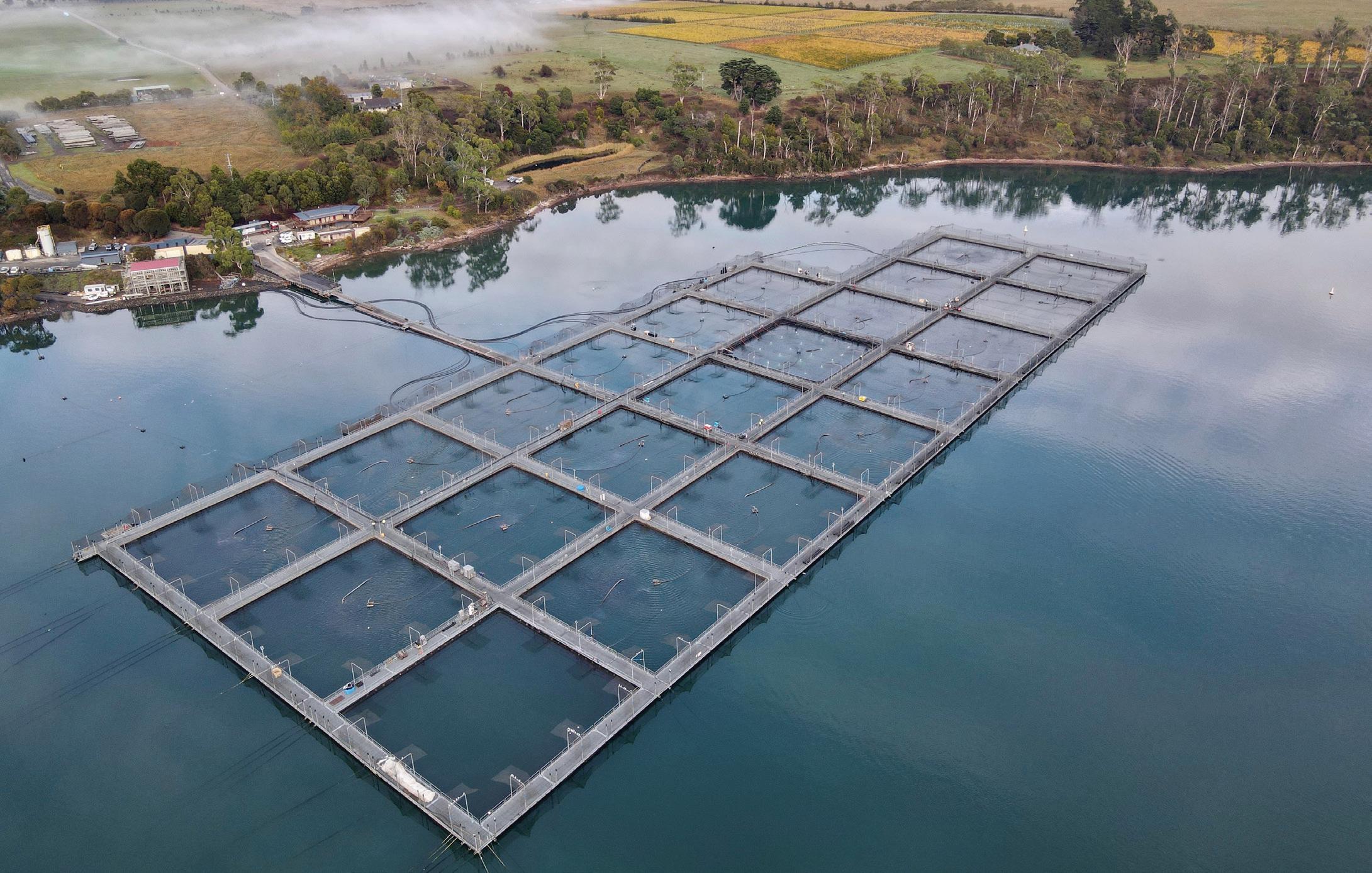
Petuna Aquaculture has invested $18 million over the past four years towards a major enhancement project to improve fish health and wellbeing as well as environmental sustainability at its Rowella salmon farm in the state’s north.
The investment follows the success of a jointly funded project with the Federal Government, which saw the construction of seven stateof-the-art marine pens in an innovative new system, increasing available pen space to provide better environmental and fish performance outcomes.
The Government contributed $850,000 towards the project under the Regional Jobs and Investment Packages, which aim to help diversify regional economies, stimulate economic growth and deliver sustainable employment.
Petuna General Manager Strategy and Technical, Depha Miedecke, said the advanced infrastructure had all been provided by Tasmanian companies, showcasing the high quality of aquaculture manufacturing and technology available right here on our doorstep.
“We commissioned our nets from SeaAqua, our pen structures from Crisp Bros and Haywards and the floats that support the system farm pens from Mitchell Plastic Welding – all proud Tasmanian businesses,” Ms Miedecke said.
“The new farm configuration at Rowella places Petuna at the forefront of international environmental stewardship, improving water flow throughout the site to provide increased oxygen exchange and fish stock protection.
“Improvements to the farm infrastructure will not only allow us to achieve efficiency in production but will also ensure superior fish performance and sustainability of the farm.
“The enhancement includes the installation of new hightech feed cameras, which can be manoeuvred throughout the water column to provide better vision, enabling Petuna to improve feed delivery and feed conversion ratio.
“We are very proud to be highlighting some of the best aquaculture innovation in the world, right here in Rowella – not only through our own operations, but through the whole supply chain, from our locally commissioned equipment to our locally sourced feed.”

Huon is proud to be a partner of Variety, the Children’s Charity in Tasmania. The partnership will see the company sponsor and support their events to help them continue the amazing work they do.
The Stakeholder & Government Relations team attended Variety’s Carols by Candlelight event in late December and ran a Huon stall.
They sold dozens of Huon salmon picnic packs - which were a hit -with all profits going back to Variety.
Huon is also looking forward to participating in the upcoming Variety of Gins event in late February.
Huon recently played host to one of their longest standing export customers – Blue Link.
Blue link is Huon’s distributor in Japan and are regular visitors to the state. The team visited Huon sites with their Japanese highend retailers Maruyoshi (from Western Japan) and Yamazawa (from Northern Japan).
Site visits included Forest Home / Whale Point, a visit to Storm Bay (replete with a pod of dolphins on the way home!) and a factory tour of PMC. As a special insight into all things related to Huon Salmon in Japan.
Blue Link director Nobu also gave a presentation on the Japanese market to staff in the Hobart office and at PMC.
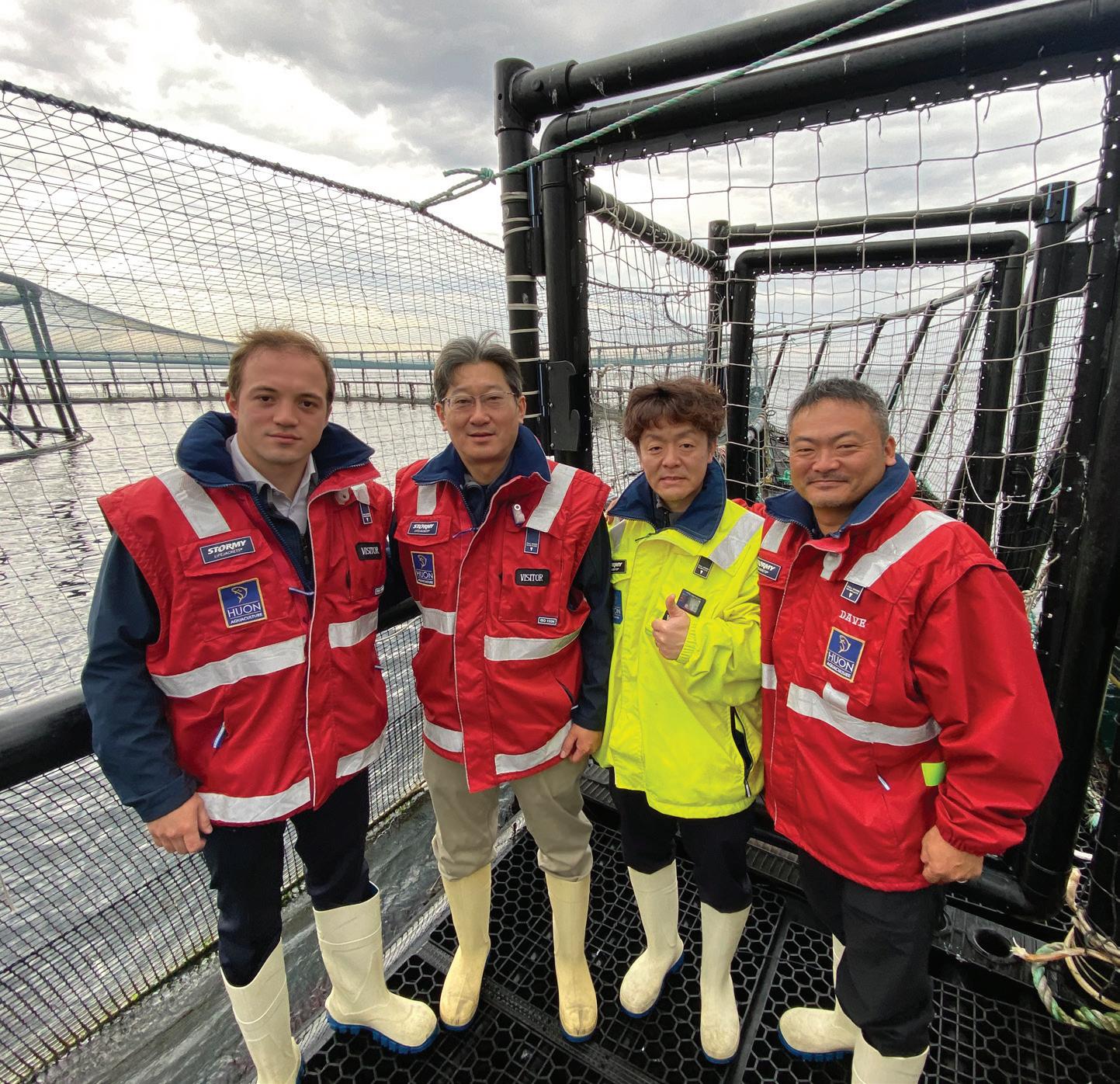
Skretting launches Cosmos, a new premium diet for barramundi.
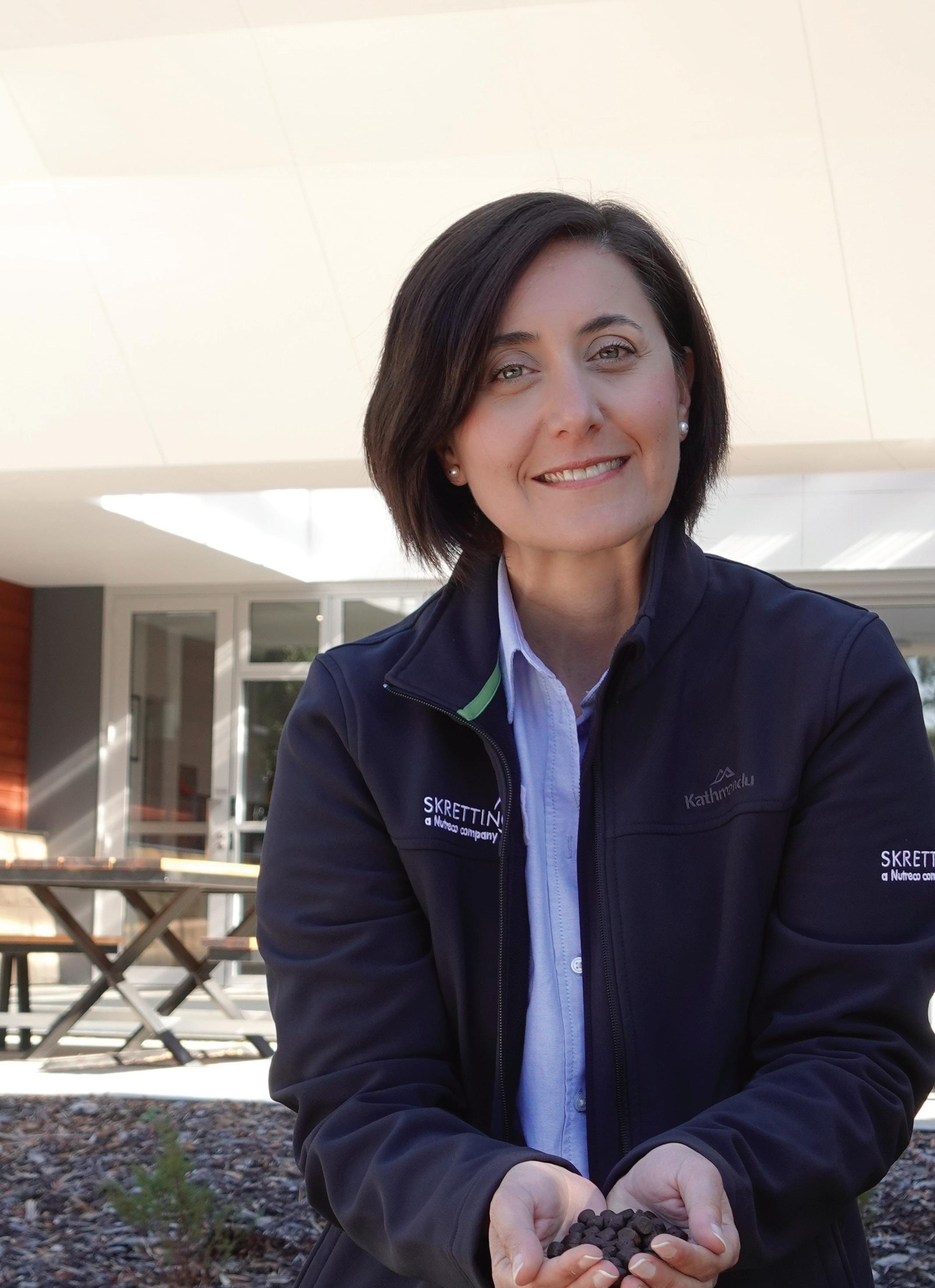
As the list of Tasmanian businesses exporting their expertise and products to other parts of Australia and the world continues to expand, Skretting’s new barramundi solution optimises farm performance and market value whilst relying on Tasmanian knowhow.
Barramundi is rapidly gaining popularity in a growing number of seafood markets around the world, and to meet the rising demand for this high-quality

white fish, many producers are scaling up their operations and harvests.
To help them make the most of this significant opportunity, Skretting is launching Cosmos, its new premium grower feed tailor-made for farmed barramundi and made right here in their Tasmanian manufacturing facillities.
Utilising Skretting’s extensive knowledge of the specific nutritional requirements and digestive capabilities of the
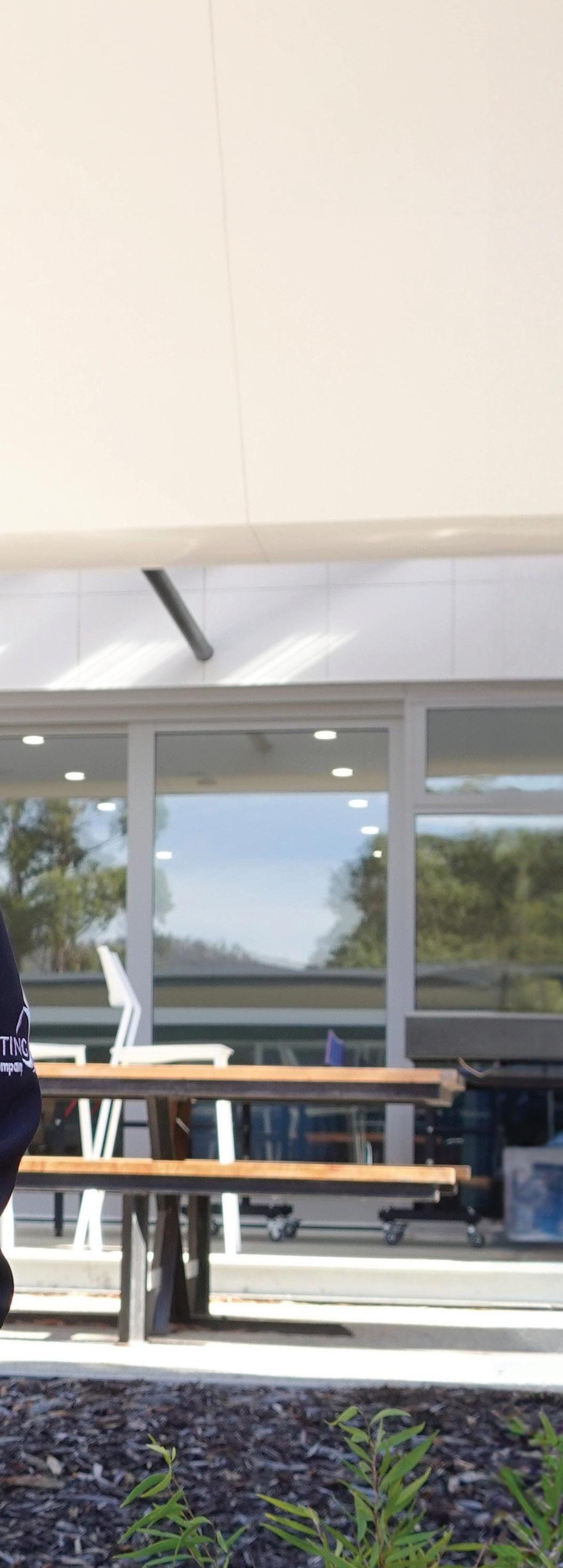
Leiner Lache, Global Marketing Manager – Warm Water Species at Skretting said a recent series of trials verified that Cosmos can outperform other products in the market in terms of both growth and feed conversion.
“These are very exciting times for the barramundi sector and Cosmos is a feed solution that will not only support producers looking to scale-up their operations cost-effectively, but it will also help them maximise the value of their fish,” Leiner said.

past three years. It is aimed at enabling producers of premium-quality barramundi to achieve optimal levels of fish performance and farm efficiency, like has been acheived with salmon, including higher growth rates at lower feed conversion levels.
To help achieve these goals, the diet’s formulation offers precisely balanced digestible protein, energy, and phosphorous levels.
“Cosmos is a global product that is first being made available to barramundi farmers in the world-leading producer nations, Australia and Vietnam, from February 2024.
“Being a native species to Australia, barramundi holds a special place in our hearts.
We take immense pride in introducing a high-premium product, Cosmos, tailored specifically for the barramundi
The Skretting Australia team, based here in Tasmania, has worked in close collaboration with Skretting AI, to pair global R&D competencies with our local excellence to create the best possible product to support barramundi performance in optimal conditions.
“We are incredibly proud to launch this bespoke diet for this iconic Australian fish,” said Pinar Demir Soker, Product
Manager – Warm Water Species at Skretting Australia.
“Our aim with Cosmos is simple yet ambitious—to empower our farmers to unlock the highest potential of their farms through a high-performing diet, ultimately supporting the sustainable development of the Australian barramundi industry.”
Skretting Australia has been trialing Cosmos in a commercial environment since 2022 and has seen consistent success in transferring the results from a R&D to on farm validation. One of the early adopters of Cosmos, Coral Coast Barramundi located in far north Queensland, has been impressed with the performance of fish fed with Cosmos.
Justin Forrester, General Manager – Coral Coast Barramundi and Spring Creek Barramundi said the company extensively used Cosmos on its farms and was very impressed with the significant improvements to fish performance.
“It’s clear the research that has gone into the product has taken Skretting’s understanding of barramundi nutrition to the next level. We feel Cosmos is the best performing barramundi feed available on the market today.”
As with all Skretting diets, the raw materials selected for Cosmos follow strict quality assurance criteria, as determined by the group’s global sustainability program. This ensures only approved feed ingredients and suppliers are used by Skretting companies, with regular audits conducted of these sources.
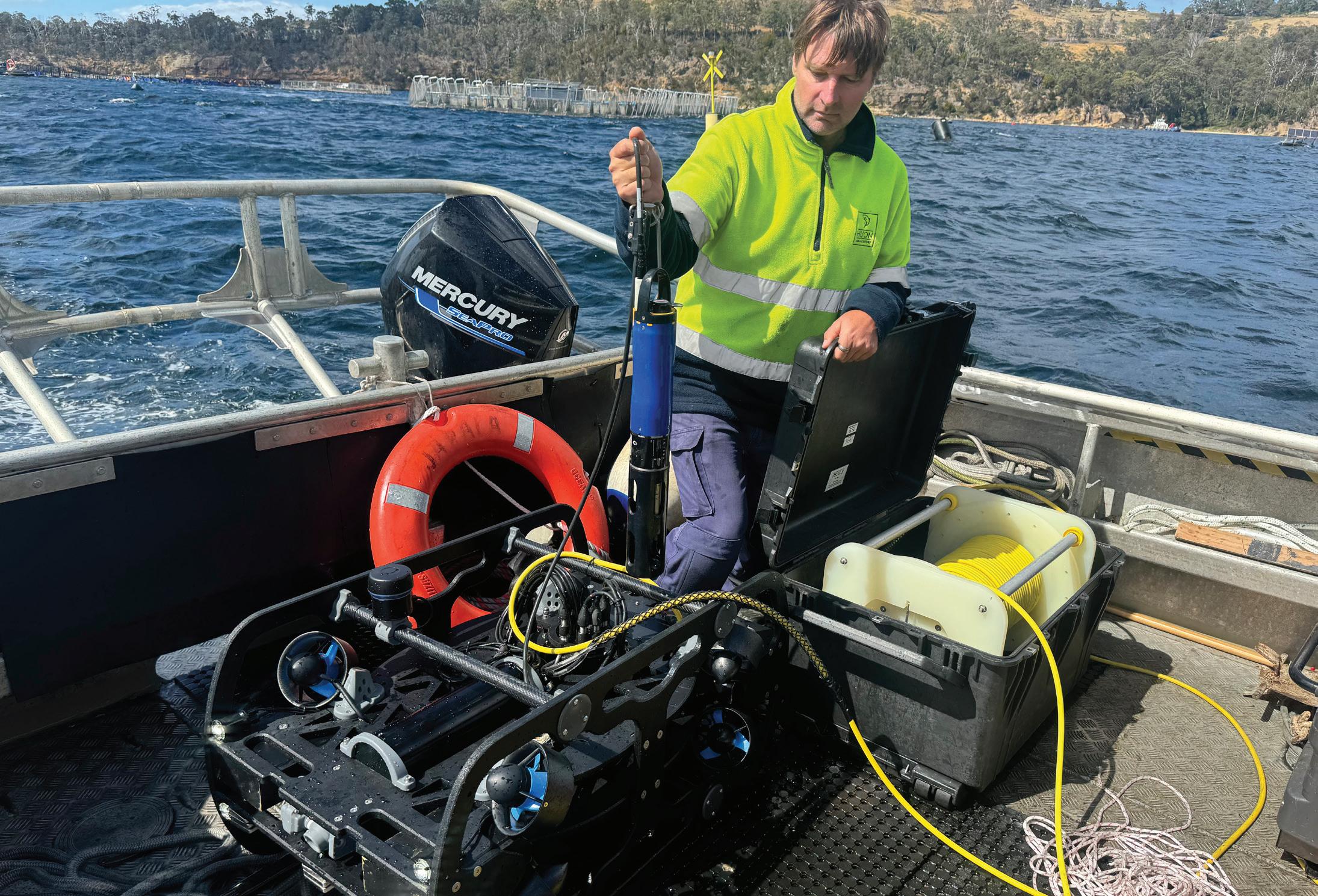
A combined Huon and Southern Ocean Subsea (SOSUB) team has successfully searched for and recovered a Sonde sensor from the seafloor at Hideaway Bay recently.
The Sonde is a small sensor maintained by the Feed Barge Technicians that provides environmental data in real-time to the control room.
The sensor was lost in poor weather and challenging bottom conditions and the workload around the bathing operations in the channel slowed Huon’s remote operated vehicle (ROV) team’s retrieval process.
Feed Barge technician Miles Cooney and SOSUB’s team (Kelsey Treloar and Andrew Ford) used a sonar equipped
Apama ROV to successfully locate and bring the sensor back to the surface in under two hours.
Now that is recovered the sensor can continue to provide Huon with real time data that informs on fish care.
Supporting local communities is so important to the team at Tassal and they have been thrilled to re-launch the Better Together Program at The Salmon Shop Salamanca for 2024.
The team at Tassal is urging Tasmanian community groups
and clubs to apply for their chance to feature on an in-store community jar at the Salamanca Shop.
Three groups will be selected each month, with store customers receiving a Tassal token every purchase to enable them to place their vote for
their preferred group to receive sponsorship from the Tassal Community Foundation.
We are so happy to give communities these opportunities as we continue to commit to being a responsible neighbour and having a positive impact.
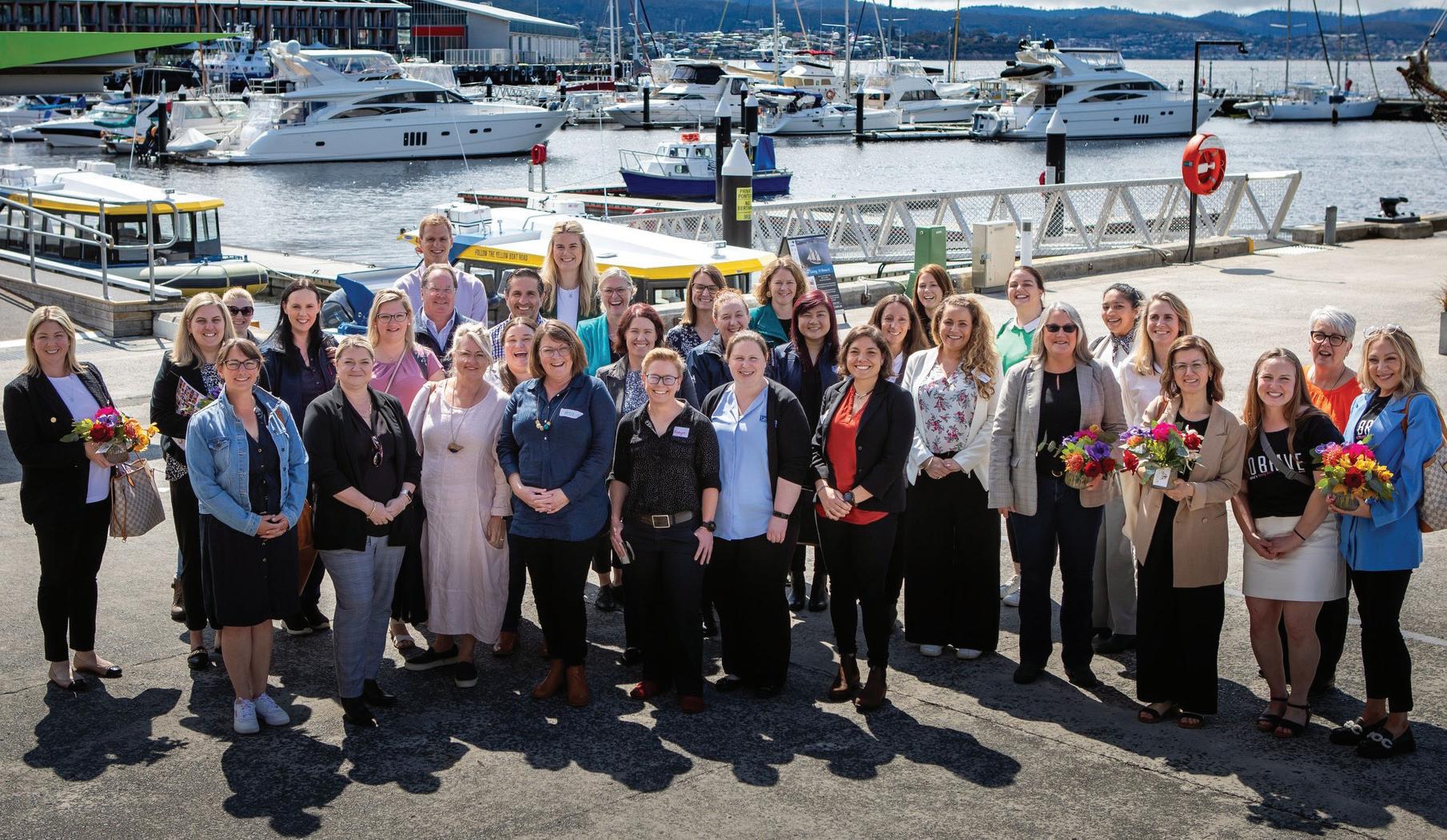
Tassal welcomed the opportunity for their LEAP cohort to come together before Christmas in Hobart for a fantastic session over breakfast, and via video link worldwide, where the group mingled, connected and listened to some inspiring women from So Brave - Australia’s Young Women’s Breast Cancer Charity and an insightful guest speaker Julie Richman. They also heard from their own people talking about the National Seafood Industry Leadership program alongside Program Leader Heidi Mumme.
Successful finalists last year were Brighton Community Food Hub, Dover Landcare Group and the Tasmanian Youth Orchestra.
Applications are now open and will be reviewed each month.
Click or scan to apply
LEAP (Leadership, Empowerment, Awesome People) was initiated by Tassal’s Diversity and Inclusion working group, who identified the need for the companies female leader cohort to have a ‘sisterhood’ and saw it as an opportunity for their growth and development.
Commencing in 2022 with 50 members, LEAP now has over 60 amazing female leaders and professionals in the business who come together on a regular basis. LEAP participants communicate frequently on


topics of interest and seek guidance from peers through several internal channels within the business, and all participants have access to other women in operations through the National Association of Women in Leadership (NAWL).
We are proud of the program and its impact so far, with so much to look forward to as we continue to sustainably feed tomorrow.

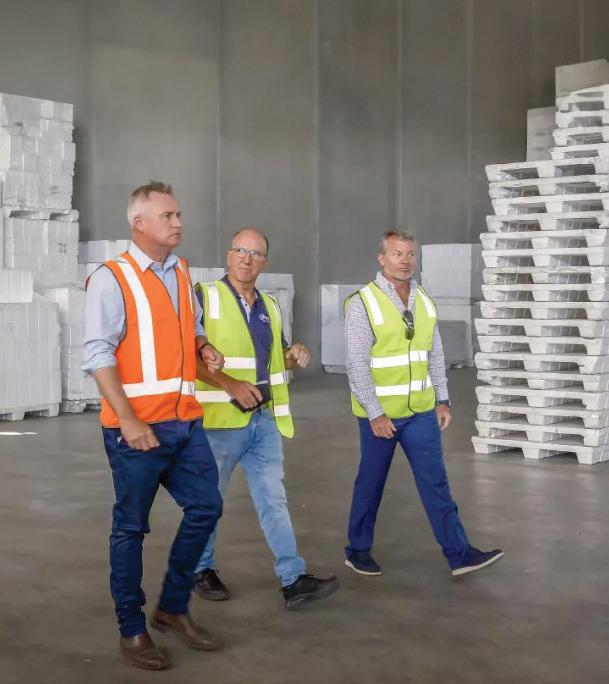
In the heart of Tasmania, a significant stride towards environmental sustainability and innovation in aquaculture packaging has been taken.
Polyfoam, a family-owned business renowned for
its contribution to the packaging industry, has officially opened its new Westbury production facility. This development is not just a testament to the company’s growth but a beacon of
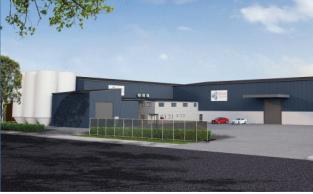
progress for the entire Expanded Polystyrene Australia (EPSA) community and the aquaculture sector at large.
The new facility, inaugurated by Premier Jeremy Rockliff, will see the capacity to double its production of salmon boxes. As a result, Polyfoam is set to bolster Tasmania’s salmon aquaculture sector significantly.
The highlight of Polyfoam’s new venture is its state-ofthe-art recycling service for polystyrene products. This initiative is a game-changer for the environment, offering a sustainable solution to the disposal of EPS waste. From white goods packaging to fish and produce boxes, Polyfoam’s facility will transform used polystyrene into valuable manufactured building products, thus reducing landfill and paving the way for a more sustainable future.
The opening of Polyfoam’s new facility coincides with a growing recognition of the vital role that EPS packaging plays in the aquaculture industry. The EPS Industry Alliance highlights the unique challenges of maintaining the cold chain for seafood, a task at which EPS excels due to its superior insulating properties.
Seafood, particularly products like salmon, are central to Tasmania’s economy and requires meticulous temperature control from catch to consumer to ensure safety, freshness, and quality. EPS packaging, with its unparalleled thermal performance, protects
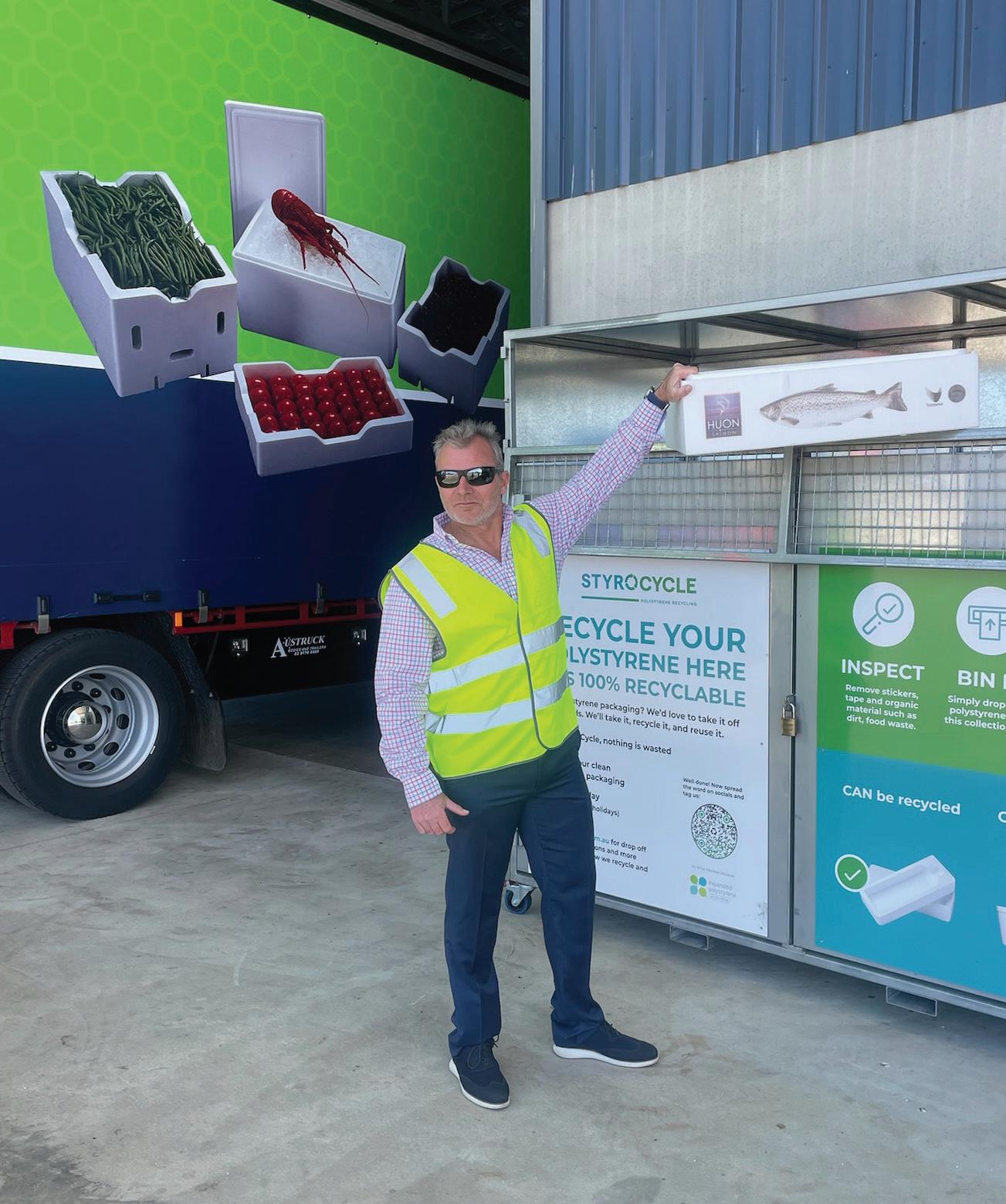
seafood against sudden temperature changes, ensuring that products maintain their core temperature throughout the distribution chain.
Moreover, the sustainability of EPS as a packaging material has been reaffirmed by life cycle analyses. Compared to alternatives like cardboard, EPS shows similar or better environmental performance, with low carbon impacts and minimal energy and water inputs during manufacturing. This makes EPS an ideal choice for the seafood industry, which strives for both quality and environmental responsibility.
Polyfoam’s investment in its new Westbury facility,
approximately $10 million over four years, is a bold step towards a more sustainable and prosperous future for Tasmania. By creating up to 15 new jobs in regional Tasmania, Polyfoam is not only contributing to the local economy but also demonstrating the potential for environmental sustainability to go hand in hand with economic growth.
The facility’s recycling service is particularly commendable, offering northern Tasmanians a tangible way to participate in reducing landfill and supporting sustainable manufacturing practices. This initiative is a reflection of Polyfoam’s commitment to environmental stewardship and an example for the industry.
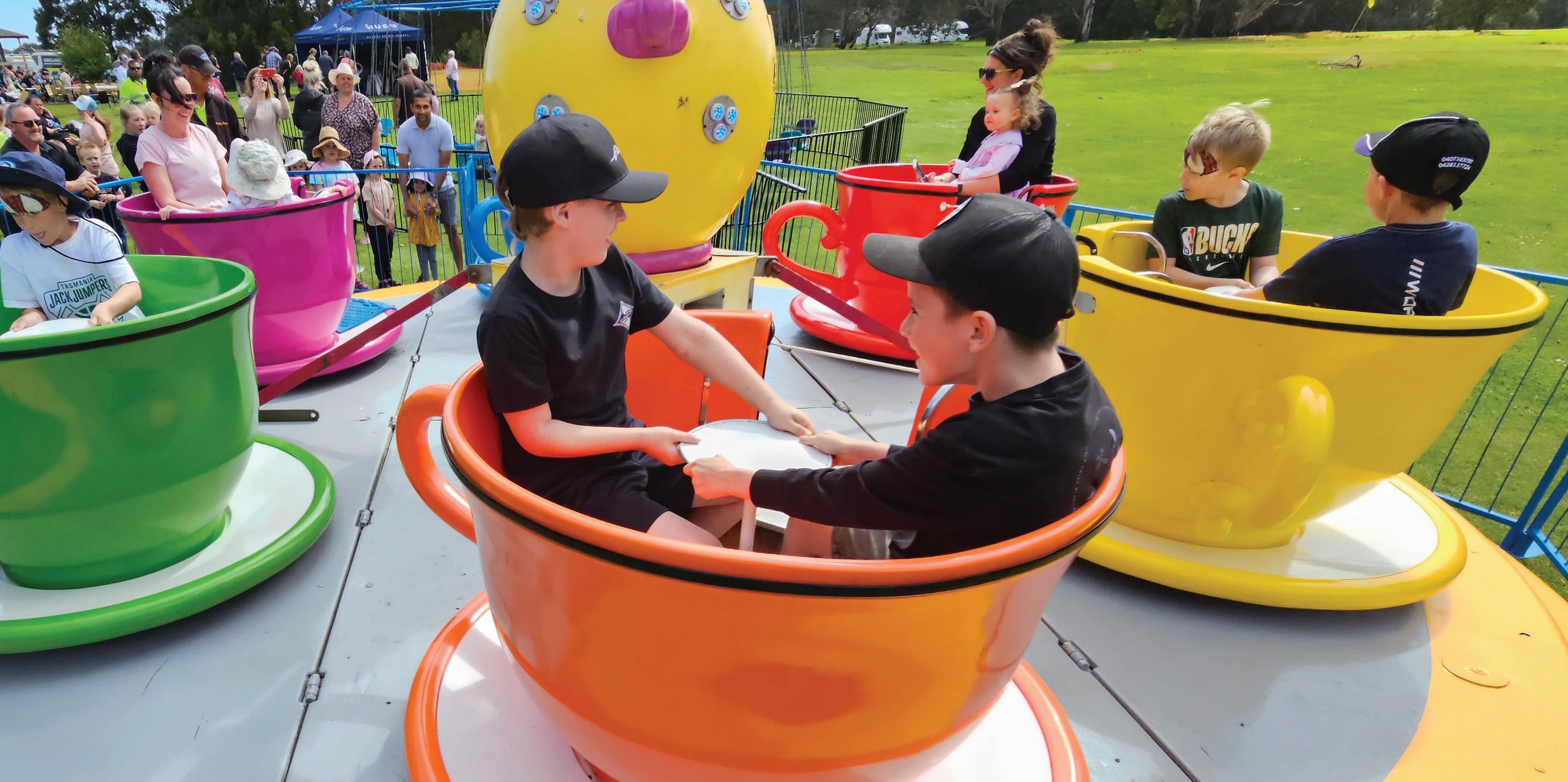
MORE than 300 people attended a free event at the Strahan Golf Club to celebrate the importance of Tasmania’s $1.3 billion salmon industry to regional communities.
Salmon Tasmania’s CEO Luke Martin welcomed salmon workers, suppliers and the community to the Strahan Golf Club on 14 November for our second industry community day.
Tasmania’s three salmon producers came together to thank the people who make the industry the success that it is.
“Tasmania’s salmon industry is responsible for 17 per cent of all employment the West Coast and we are proud of the contribution we make
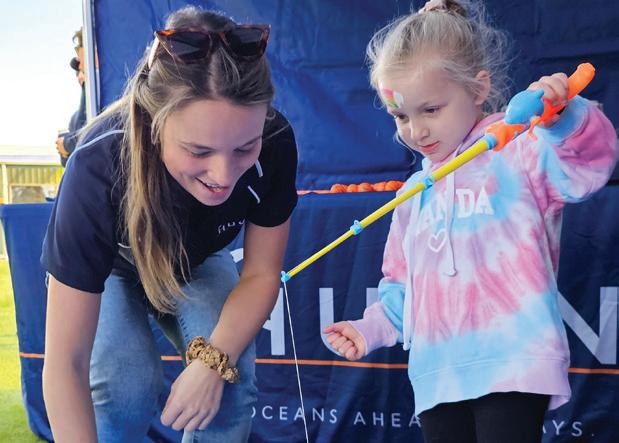
to regional communities and the important role we play as a major employer; generating jobs and economic activity across the state,” Mr Martin said.
“The salmon industry generated more than $770 million worth of economic activity for Tasmania in 2022 and supported more than 5,100 jobs statewide.
“You can’t go to the shops in Strahan without seeing salmon workers in their uniforms and the
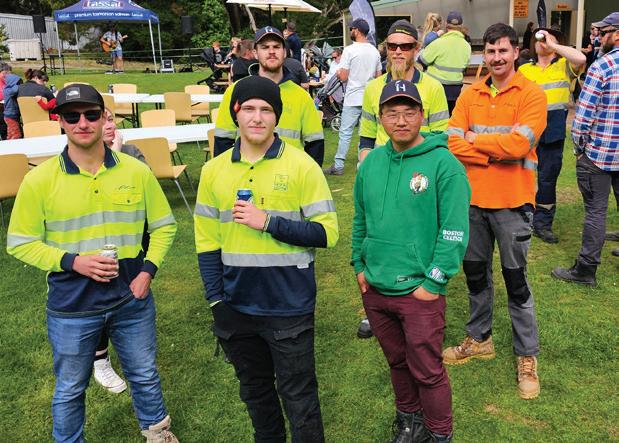
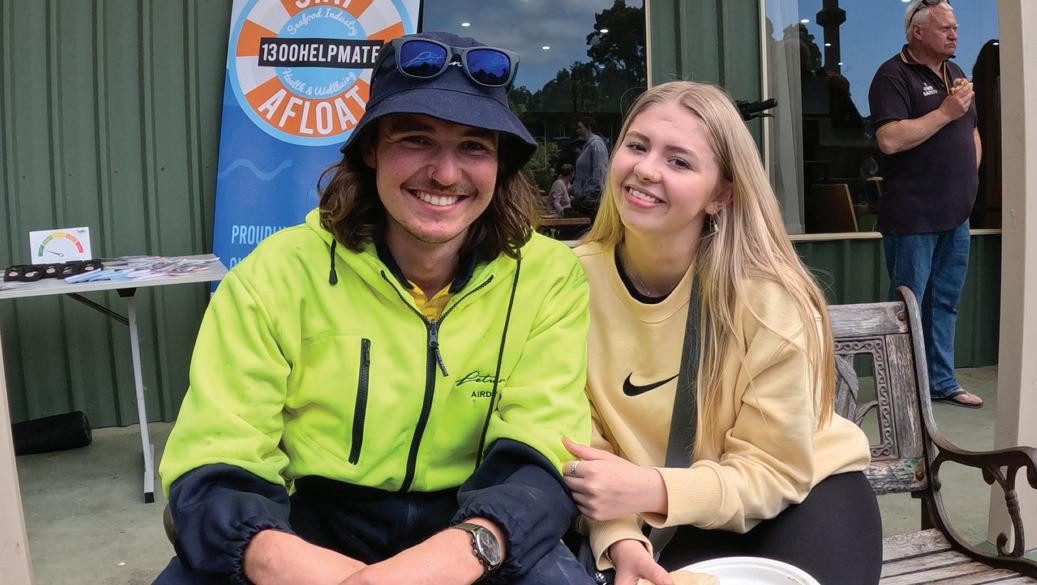
local school is full of kids whose parents work in the industry.”
“It’s not just the direct economic activity and jobs created by the salmon industry, it’s the flow-on benefits as well, like the local shops and takeaway stores that wouldn’t survive without the business they get from salmon workers every day. It was fantastic to bring everyone together to thank them and to celebrate our industry.”
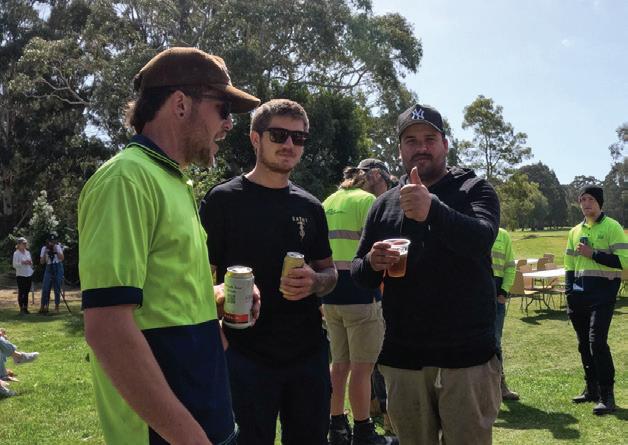
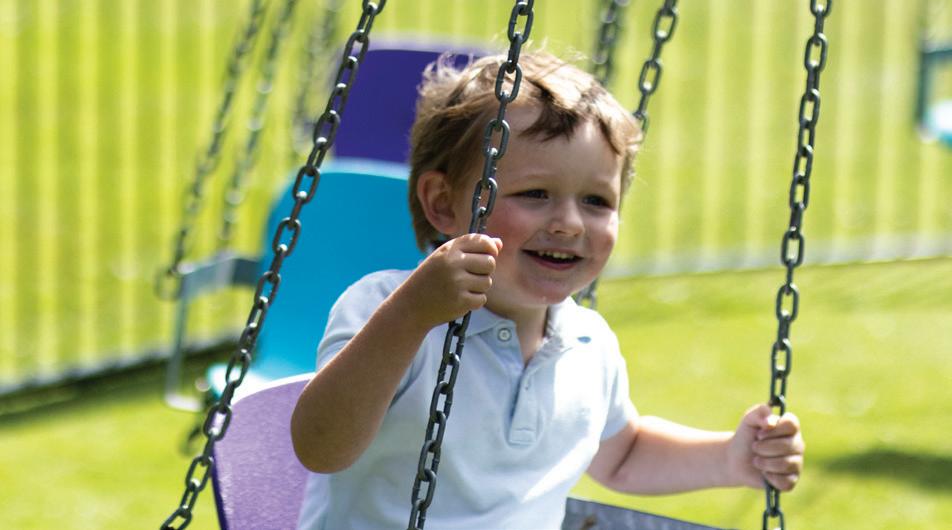
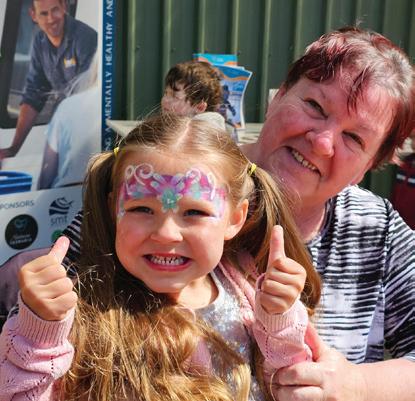
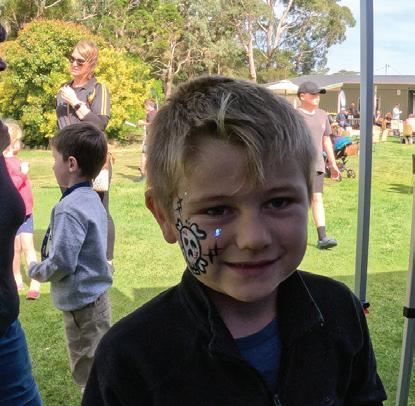
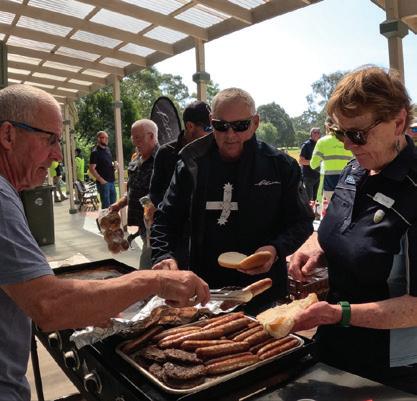

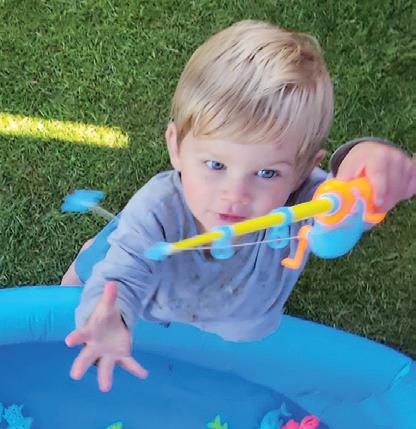

The team at Tassal was delighted to have the Accelerate Program chosen as an award finalist by the Australian HR Institute (AHRI) for Best Attraction, Recruitment and Retention Strategy before being recognised as winners at the official event in December 2023. The Accelerate Program is a Tassal recruitment and training initiative that supports people interested in joining marine operations.
The brainchild of two Tassal employees, Accelerate was developed and launched in early 2022 to meet a critical need within the business and has since surpassed all expectations.
Tassal Senior Manager Organisational Capability Liz Luck said the depth and breadth of the program enabled it to be readily adapted to other parts of the business.
“We are proudly Australia’s largest employer in the aquaculture sector, and we
believe in fostering a unique workplace where employees feel engaged and empowered throughout all areas of the business. Accelerate is the perfect fast-moving way to dive into the industry,” she said.
“For anyone wanting to work on the water, or the seafood industry as part of a business that can support ongoing learning and development, this is perfect. We are lucky to have some of the best locations in the world here in Tassie with really motivated people and teams. It provides a safe space for people to learn, enabling them to go out to site with the basic, practical skills of salmon farming.”
Tassal employee Tara Reid joined the Accelerate Program and has since stayed on building a career with Tassal at Margate. Prior to starting the program Tara was a full-time stay-at-home parent, but when this opportunity popped up she knew it was perfect for her.
Tara said she found the program first-class, with loads of training on the job and group learning to achieve elements of the certification.
“As a Mum of a big family this has been the perfect balance for me. I love being outdoors on the water and learning about our marine environment. Tassal provides great opportunities in the industry. I would really encourage anyone interested to give it a go.”
For more information and a fantastic insight click or scan the code below:
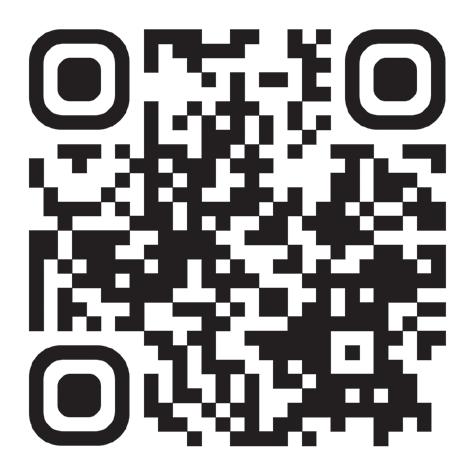
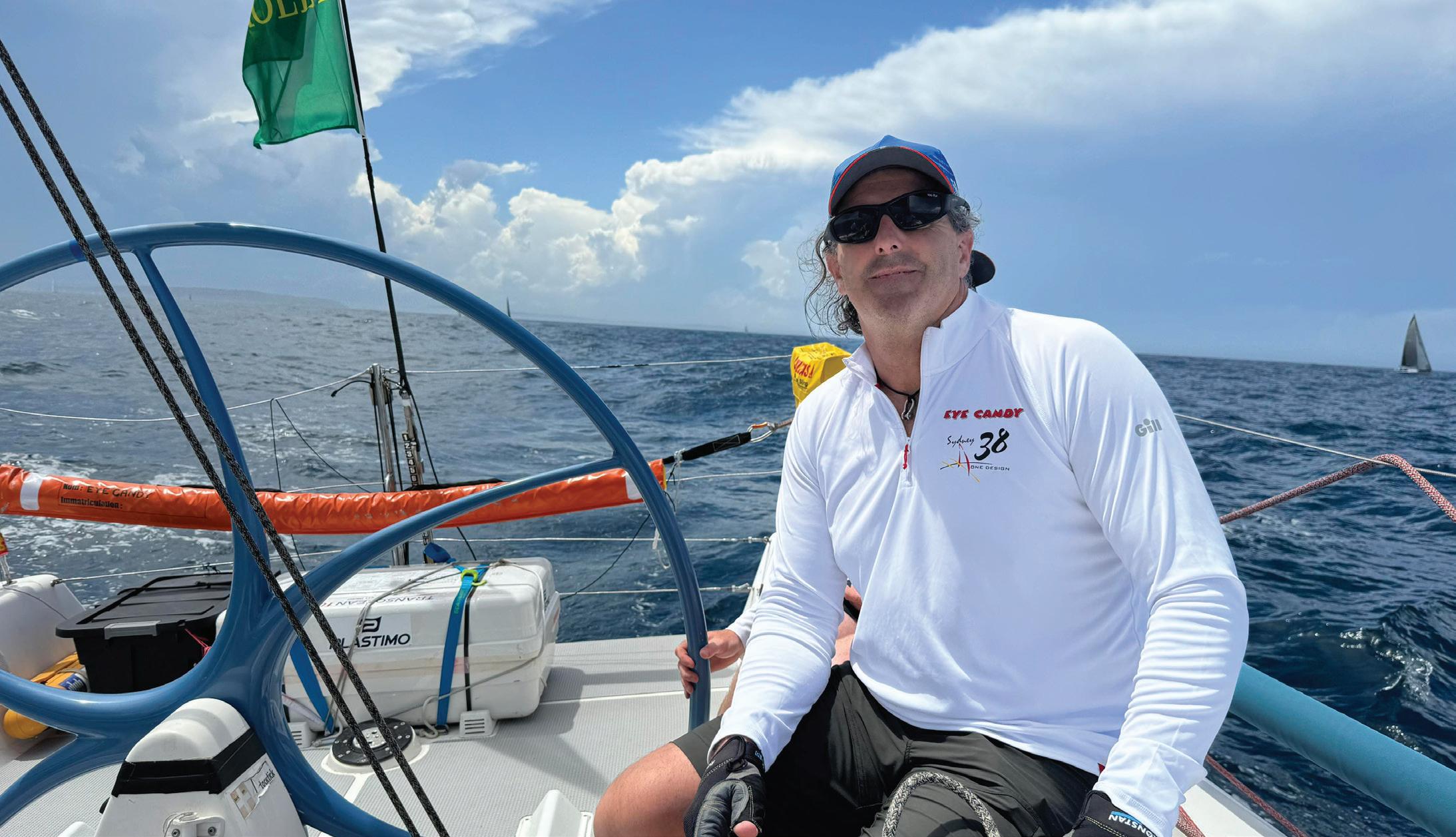
If you watched the Sydney to Hobart Yacht Race closely you might have spotted Huon’s own General Manager of Information Technology Angus Sprott!
He competed on Eye Candy, a Sydney 38, and said it was one of the toughest offshore races he has ever done, partly because it was the smallest boat that he’s ever raced it on or, as he might claim, old age!
His crew was hit with three different weather systems in the four days they spent at sea: a 35knot southerly on the southern NSW coast, a 38knot westerly in Bass Strait and a 50knot south westerly around Tasman Island.
Angus said the worst part of the race was living in a sardine can for four days and constantly being thrown around downstairs,
and more often than not being unable to get any sleep in your off watch. But on the flip side his favourite part was steering through the night in Bass Strait with dolphins lighting up the sea with phosphorescence.
And a special mention to coming round Tasman Island in 50 knots. Well done Angus on an amazing effort!
Huon was proud to offer students and teachers at Strahan Primary school a nutritious start to their day by hosting a school breakfast club during our recent trip to the West Coast.
A special thanks to Western Marines manager Benny for lending a hand on the morning – his scrambled eggs were a hit, with some kids even coming back for seconds and thirds!
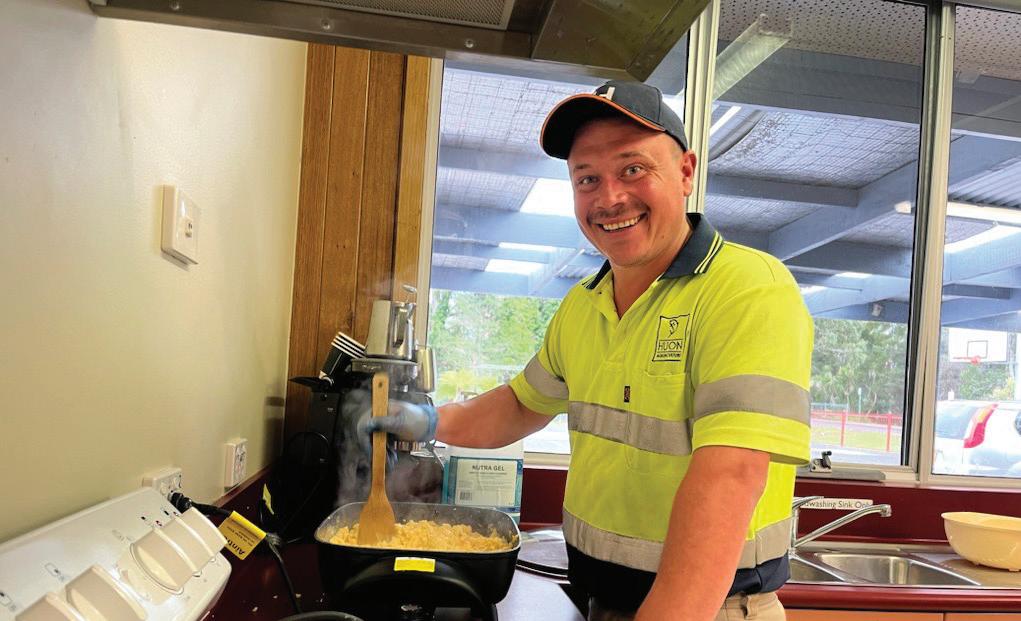
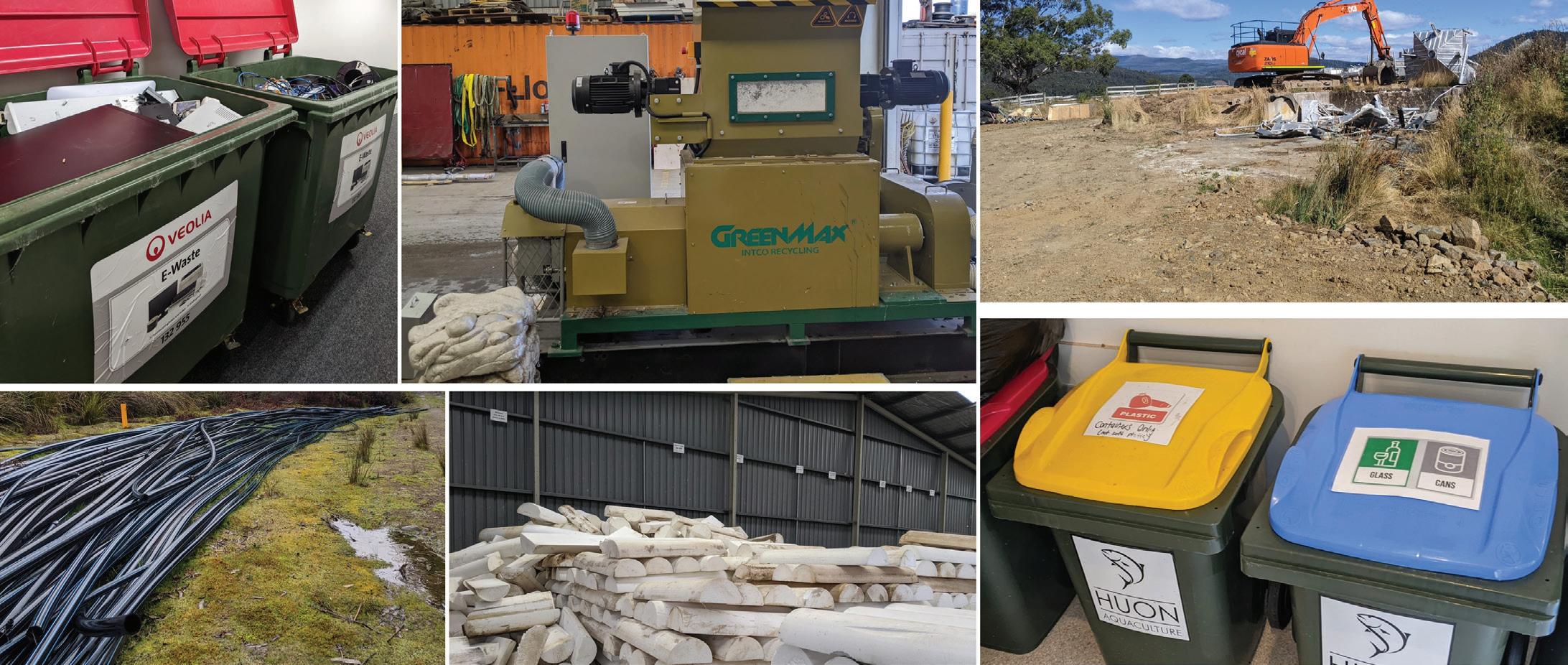
In celebration of National Recycling week (13–18 Nov), Huon acknowledged the amazing work and care being undertaken across the business.
Reducing the company’s waste not only keeps valuable materials out of landfill, but ensures these materials have another life and form part of a circular economy.
This year, Huon has collectively recycled hundreds of tonnes of material:
• 100T of HDPE plastic recycling from marine operations
•
• 7km of plastic pipe reuse for agricultural irrigation
• 135T of scrap metal recycled across the business
• 38,000L of paint recycling
• 1.3T of e-waste recycling from Hobart office
• PMC and Ingleburn have recycled over 70T of Cardboard.
There are many other recycling efforts taking place around the business:
• Cardboard recycling at Forest Home, Lonnavale, Hideaway Bay and Margate
• Battery recycling at
Hideaway Bay, Hobart, Margate and Strahan
• Waste oil recovery and reuse across most marine shore base
• Retired equipment resales across the business
• Hideaway Bay’s office recycling efforts
• Hobart Office’s paper recycling
• Polyfoam Recycling at Strahan and Port Huon.
This has been a busy year for Huon in recycling, but there is also always room for improvement and the company continues to work towards a cleaner and greener future for Tasmania.
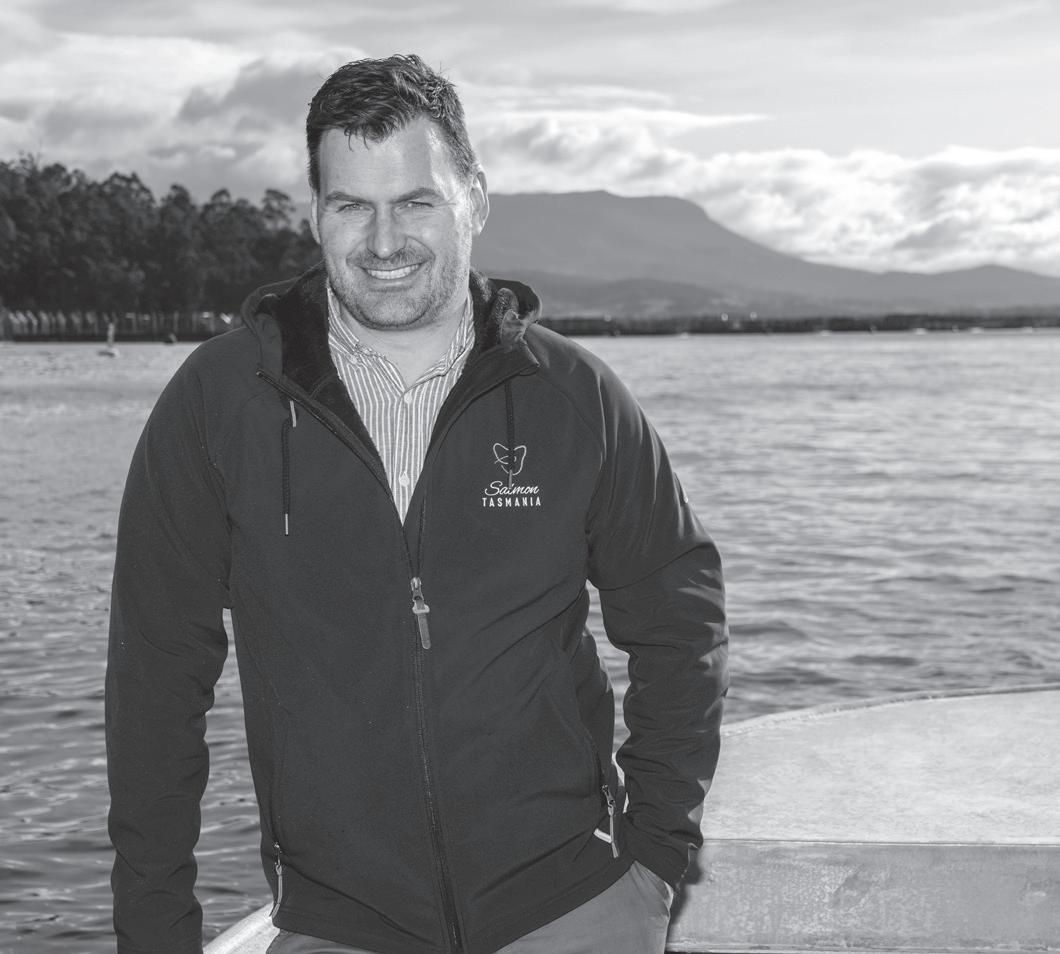

our people
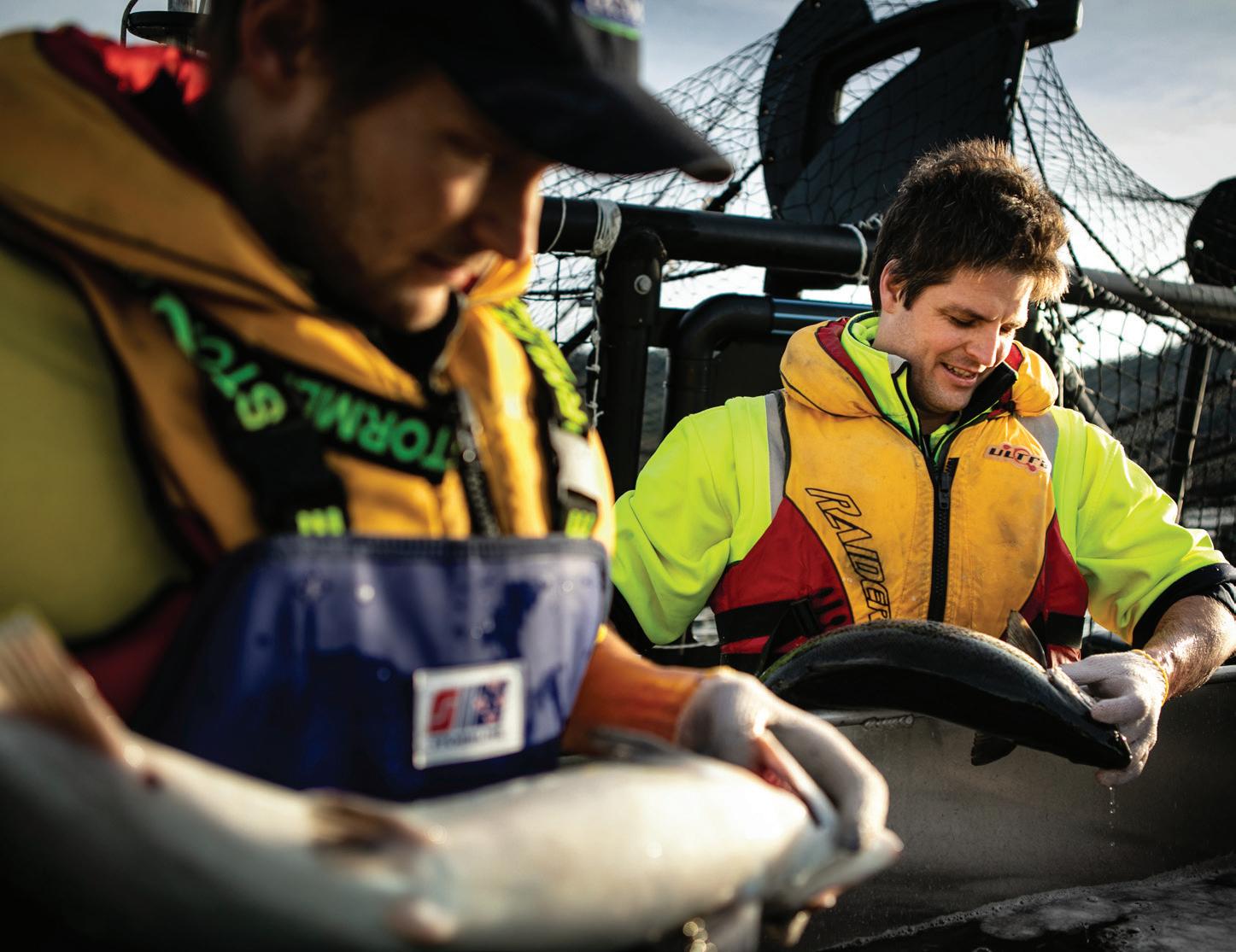
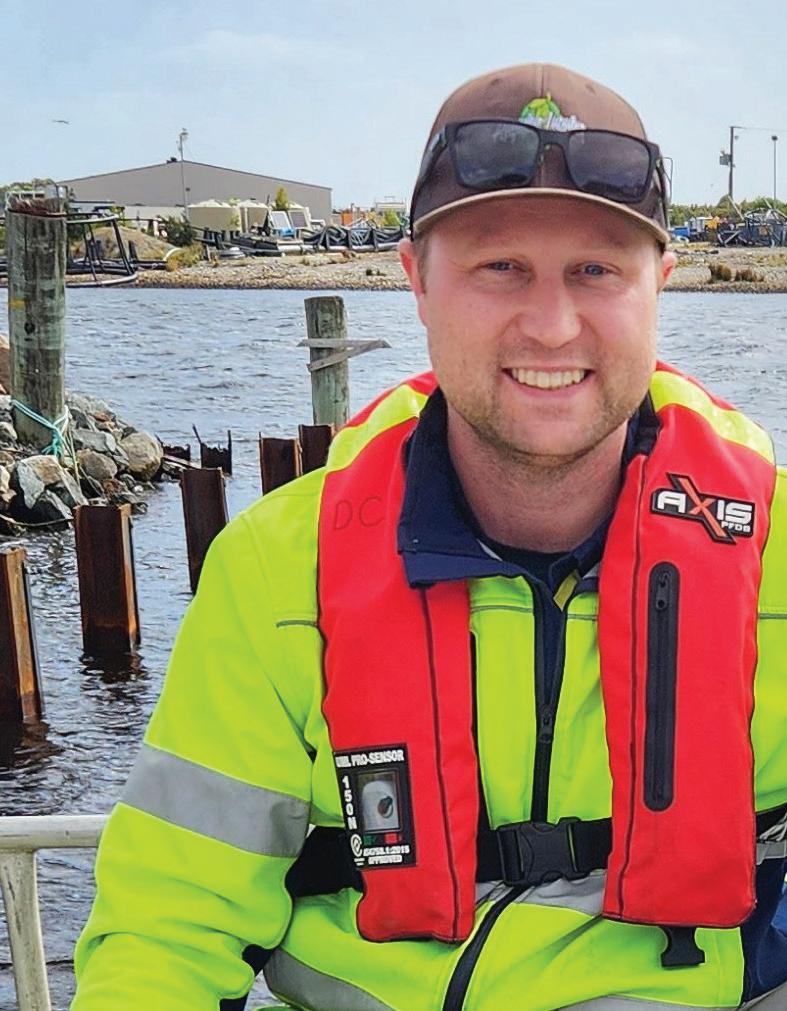
years
Role and what I like most about it:
As a Field Veterinarian I care for the fish on a daily basis.
One of the highlights of my time here has been around innovation in technology.
Our industry is world-leading in many areas of technology when it comes to fish and prawn farming. Making sure we integrate those advances while still maintaining focus on the basics of farming and keeping our fish happy is always a balance.
Career history:
I graduated from Vet school in 2005 in Queensland and have 13 years’ experience as a Vet GP. I have always had a keen interest in farming and production, so fish seemed like the next frontier.
I was recognised as part of the Tassal Employee Awards at the end of 2023, taking out the award for “passion” after I was described by my work colleagues as energetic, driven and open-minded, constantly seeking better alternatives and improvements coupled with a very strong work ethic.
Hobbies:
Ocean swimming, hanging out with family and anything technology related.
Favourite band:
Queen.
Favourite movie:
Serenity. Science Fiction.
Role and what I like most about it:
My passion for working in the marine environment has always been apparent.
My role at Petuna is great as it always presents new challenges week to week. I really enjoy working in the field with new technology such as ROVs and completing critical compliance work for the company.
Another great aspect is working alongside the various teams in the business from the Hatchery to the Processing site.
I also enjoy the diversity of office and field work which keeps me on my toes.
Career history:
I worked various jobs leading up to my current role from things like a mining trades
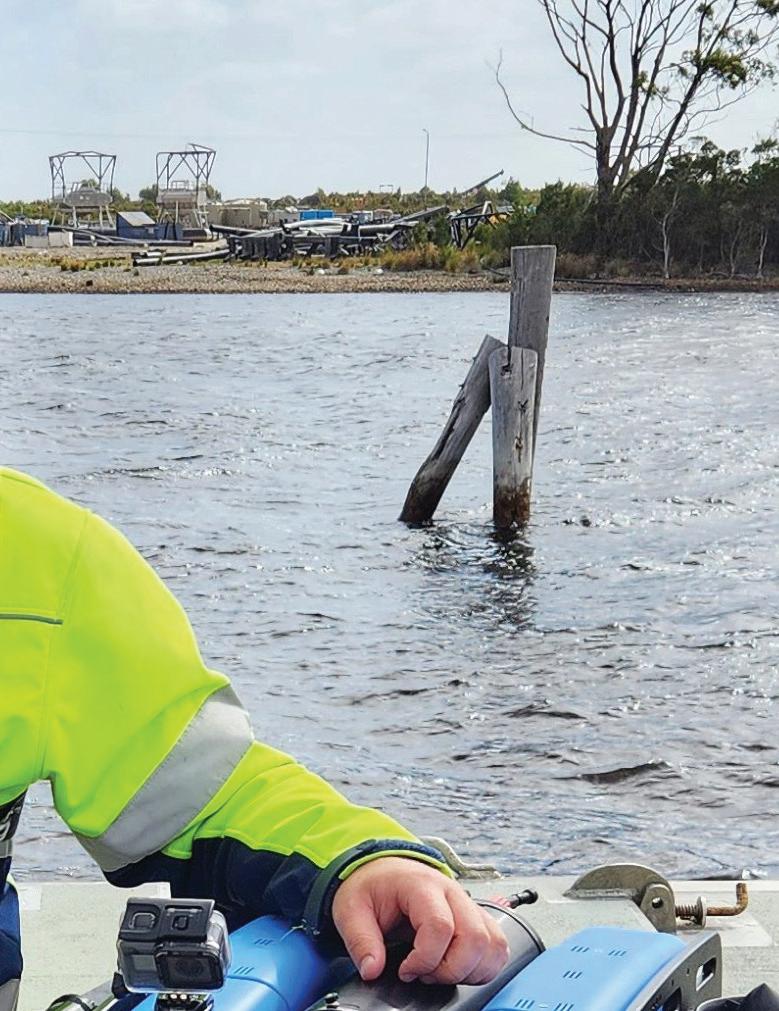
Sustainability Manager
9 years assistant, a retail salesman and even a full time musician.
I graduated from AMC (UTAS) in my mid-20s with a Fisheries Management and Honours degree and began my career in aquaculture at the Cressy Hatchery almost nine years ago.
Since then I have had a few different roles, but my true passion fell into place with the environmental compliance and sustainability aspects of farming salmon in Tasmania.
Hobbies:
Probably the thing I talk about most is fishing – I love it! My wife says I am obsessed and that’s probably true. I also still enjoy playing guitar and spending time with my family.
Favourite band: Pearl Jam.
Favourite movie: Top Gun II.
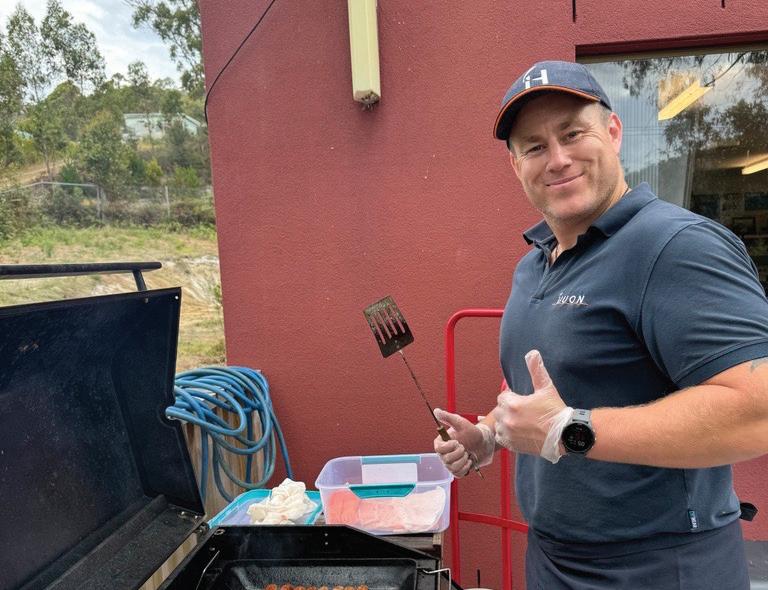
Community Engagement Advisor Huon Aquaculture/JBS - 4 months
Role and what I like most about it:
What I like most about this role is that it is the perfect combination of what I enjoy most of the time and what I am good at the other.
I love being out in the community meeting new people and getting a glimpse into their lives, hearing stories of the highs and lows of society.
With my previous role I have a strong foundation of skills in complaint management, objection handling and dispute resolution which will help me succeed in my role.
Career history:
The last decade I have spent in the energy industry, I spent the last few years as a Team Leader at Momentum Energy and more recently I was seconded for the last 12 months to the
Renewables, Climate and Future Industries Tasmania branch of State Government, working on major renewable projects as a Community Engagement Lead - think renewable energy zones, wind farms, Marinus and Battery of the Nation.
Hobbies:
Outside of work I am a dedicated father of three, love spending time with my kids (when they aren’t driving me up the wall) and I have played Rugby Union for the last 23 years!
Favourite band:
Queen.
Favourite movie:
Gladiator or any other underdog to hero type of movie!
STEP 1
Preheat the oven to 180°C. Spread the potatoes out evenly, drizzle with olive oil and bake for 30 minutes.
STEP 2
Meanwhile, make the herb salsa in a small bowl and set aside. Remove the tray with potatoes, spread out the salmon fillets, green beans, cherry tomatoes and olives and bake for 15-20 minutes.
STEP 3
Remove the tray from the oven, drizzle the salmon with herb salsa and serve with fresh lemon.
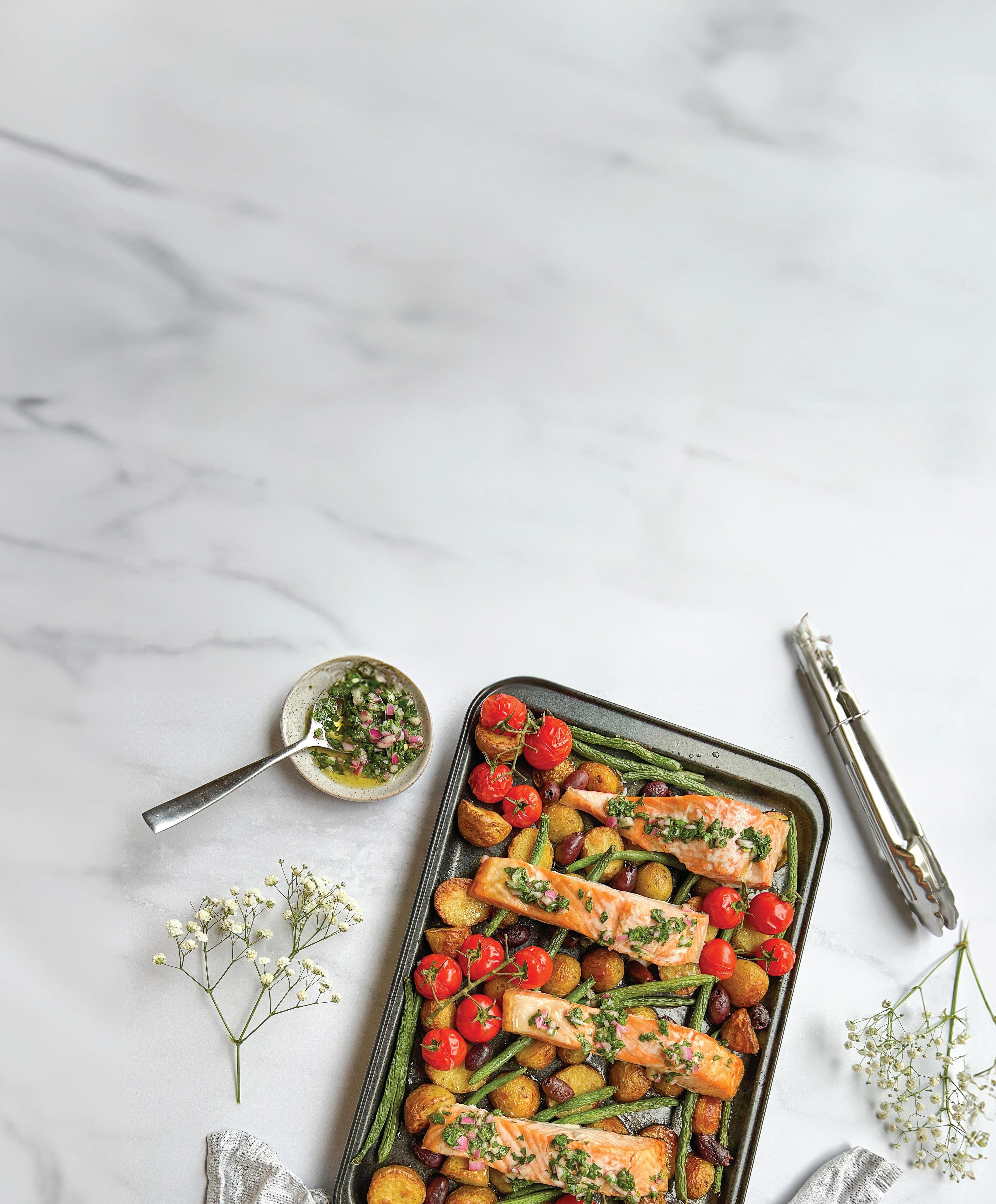
Cooks in 30 mins
Easy
Serves 4
2 x 300g Tassie Fresh Salmon, skin on 500g baby potatoes, halved
2 bunches vine tomatoes
1 cup green beans, trimmed
1/4 cup Kalamata olives
2 tablespoons extra virgin olive oil
Sprinkle salt and pepper
Fresh lemon to serve (optional)
Herb Salsa:
1/4 cup parsley, finely chopped
1/4 cup basil, finely chopped
1/2 red onion, finely diced
4 tablespoons extra virgin olive oil
2 tablespoon white wine vinegar
Sprinkle salt and pepper

STEP 1
Place the quinoa and water in a small saucepan and bring to the boil. Reduce heat to low, cover and cook for 10 - 12 minutes or until the liquid is absorbed. Use a fork to fluff quinoa. Allow to cool. Combine lemon juice and oil to create a dressing. Toss quinoa, herbs, pistachios and dressing.
STEP 2
Meanwhile, combine harissa, lemon rind, olive oil, salt and pepper to form a paste. Spread over salmon to coat.
STEP 3
Preheat frying pan or bbq to a medium heat. Cook salmon skin side down for 5 minutes or until skin is golden and crisp. Turn salmon and cook for a further 5 - 6 minutes on all sides or until cooked through.
STEP 4
Serve salmon on a bed of quinoa salad, with yoghurt and harissa and lemon wedges.
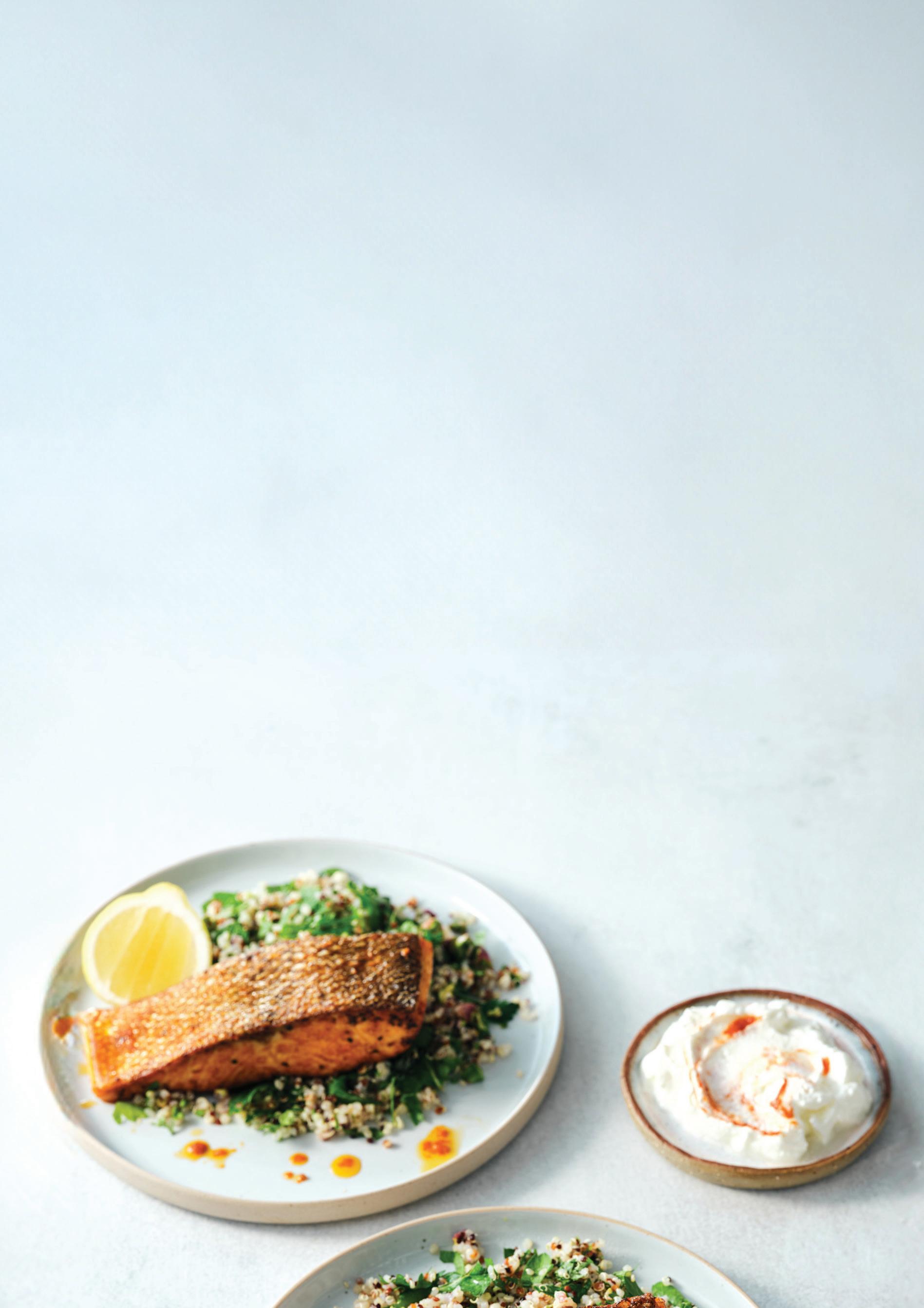
Cooks in 25 mins
Easy Serves 2
300g ( 2 portions ) Tassie Salmon, skin on 1/2 cup quinoa, rinsed
1 cup water
juice of 1/2 lemon
2 tablespoons olive oil
1/2 cup parsley leaves
1/2 cup mint leaves
1/4 cup diced pistachios
1 teaspoon harissa paste*
1 teaspoon lemon rind
1 tablespoon olive oil
salt and pepper
Yoghurt and extra harissa, to serve Lemon wedges , to serve
* Harissa paste is a Middle Eastern paste made from chilis, garlic and vinegar, available in a tube in the spice section of the supermarket. An easy and fabulous flavour boost for salmon
83 Salamanca Place, Battery Point, Tas. 7005
admin@salmontas.au
salmontasmania.au